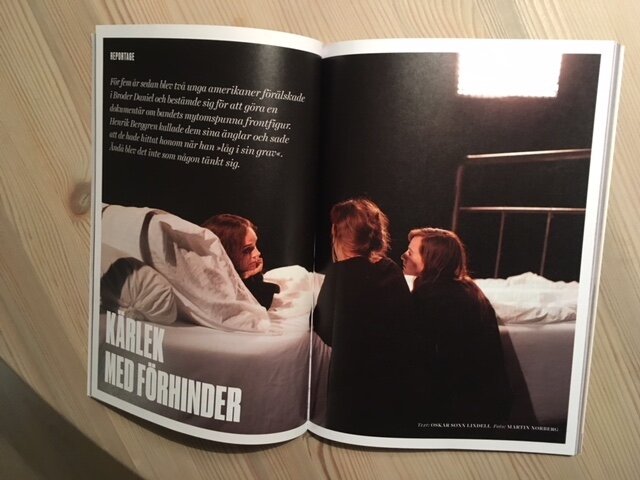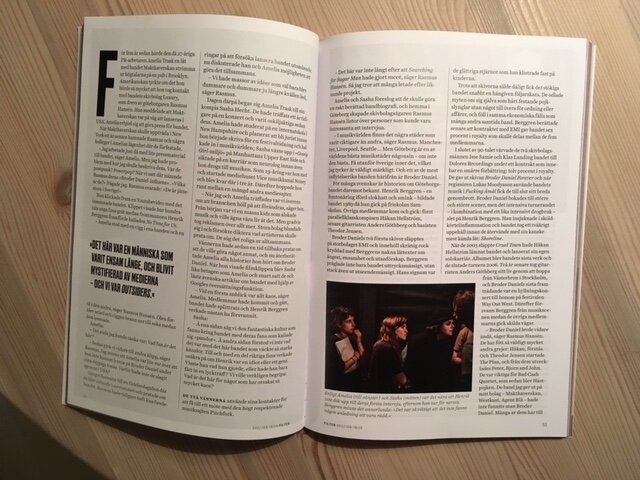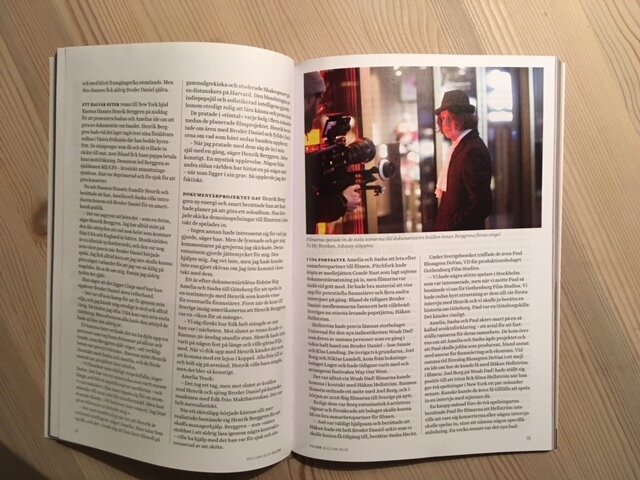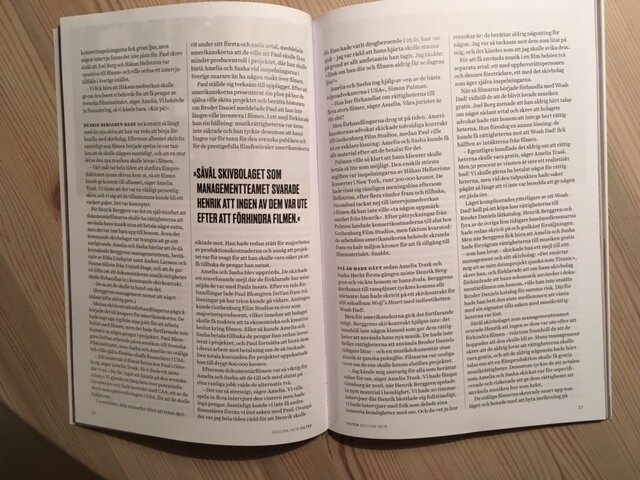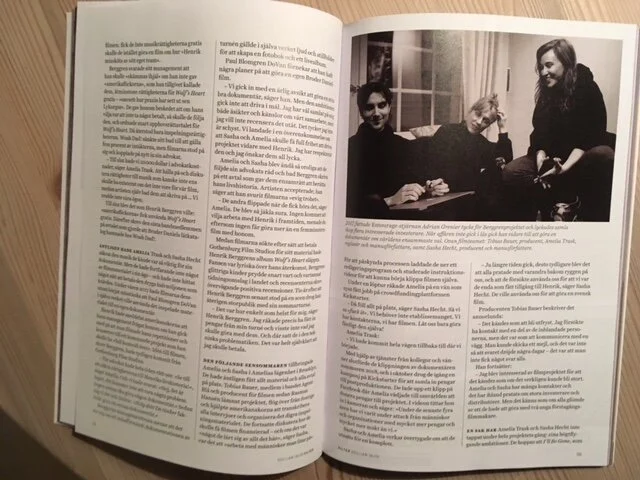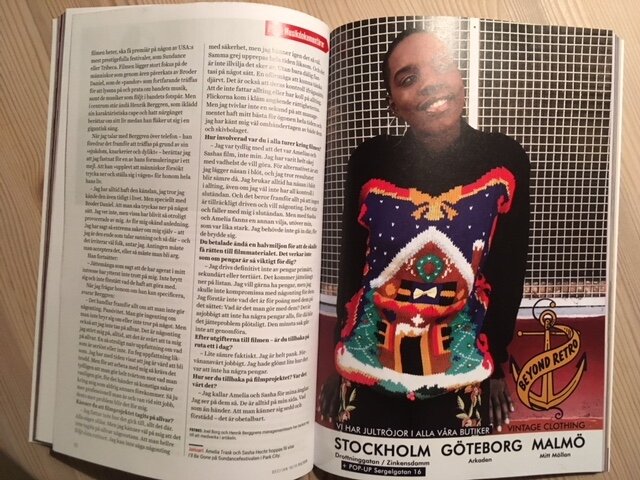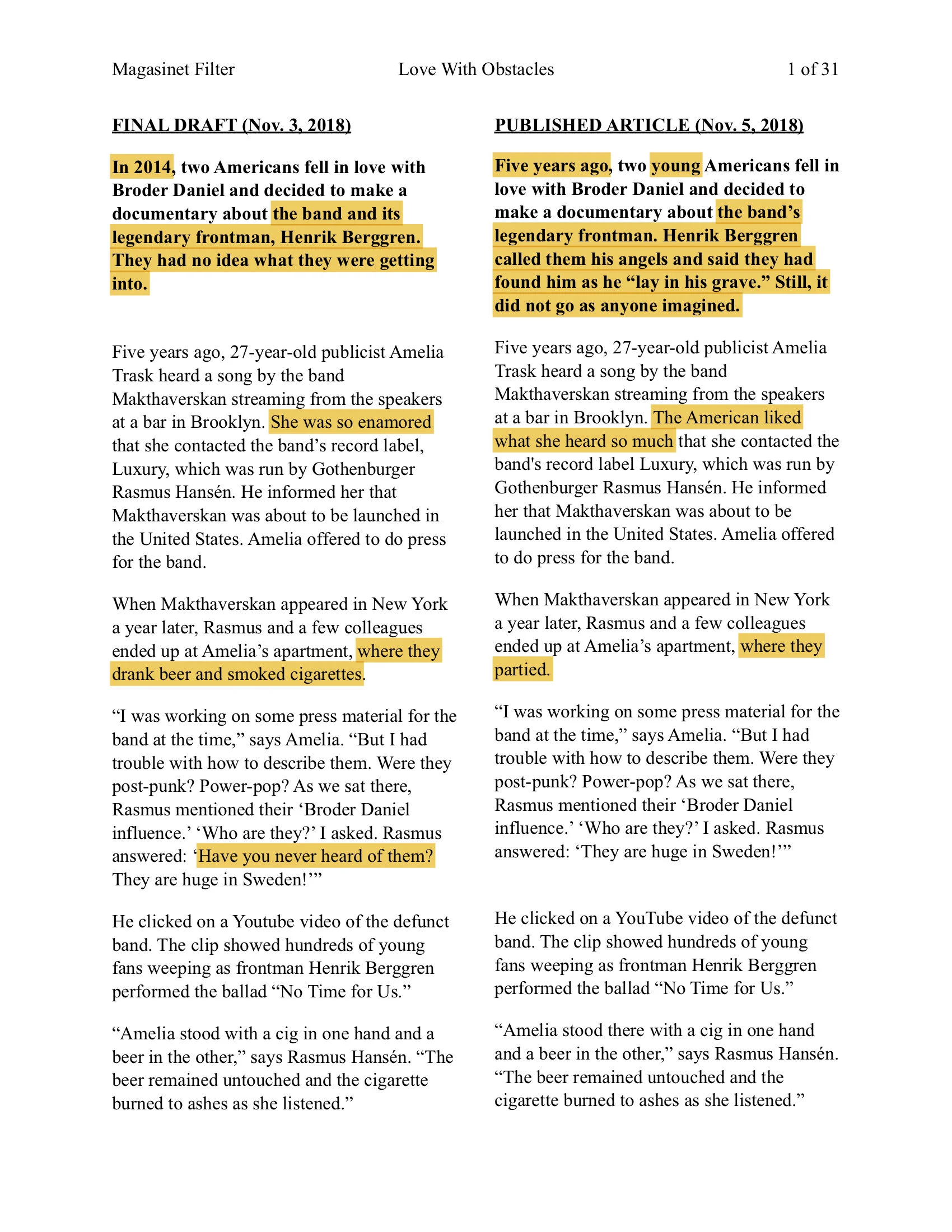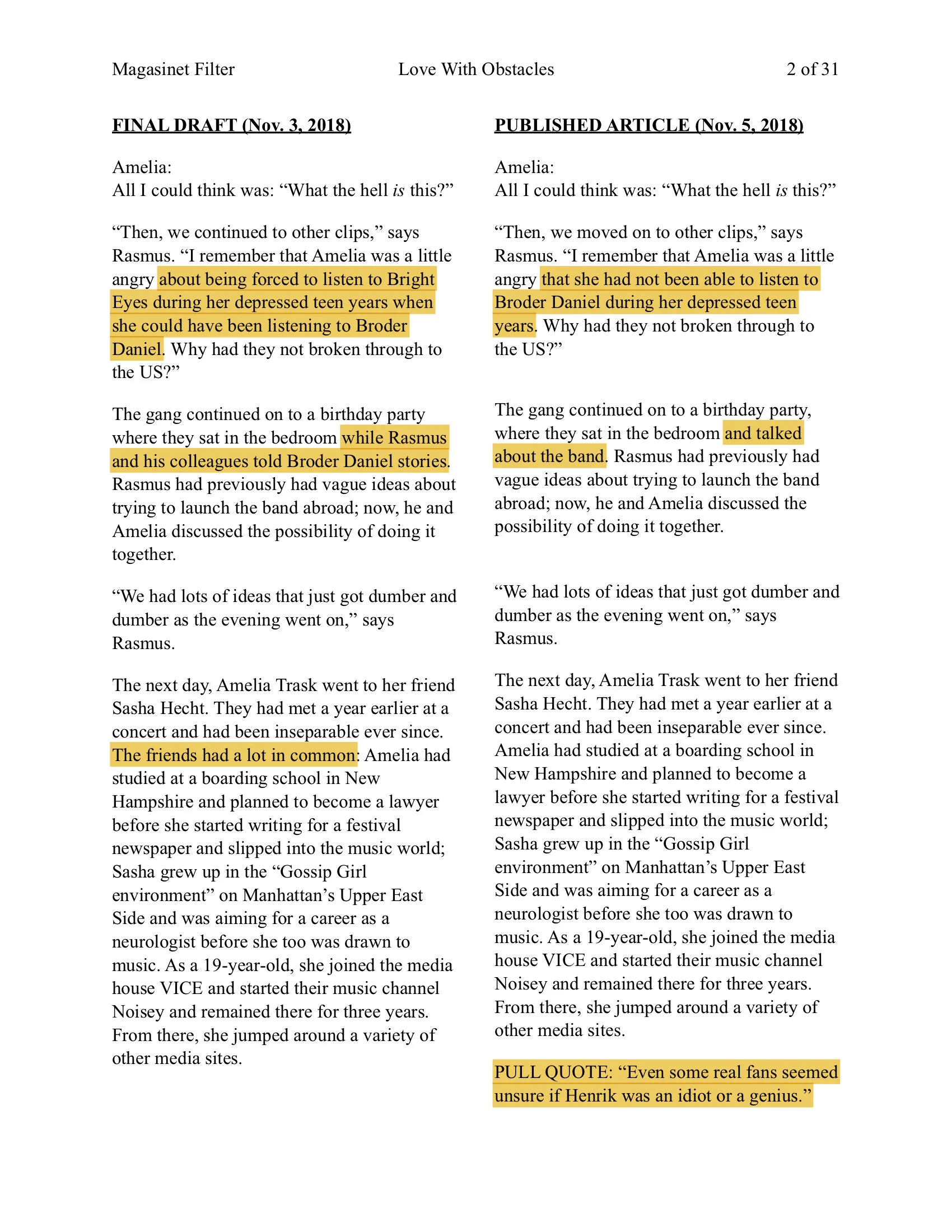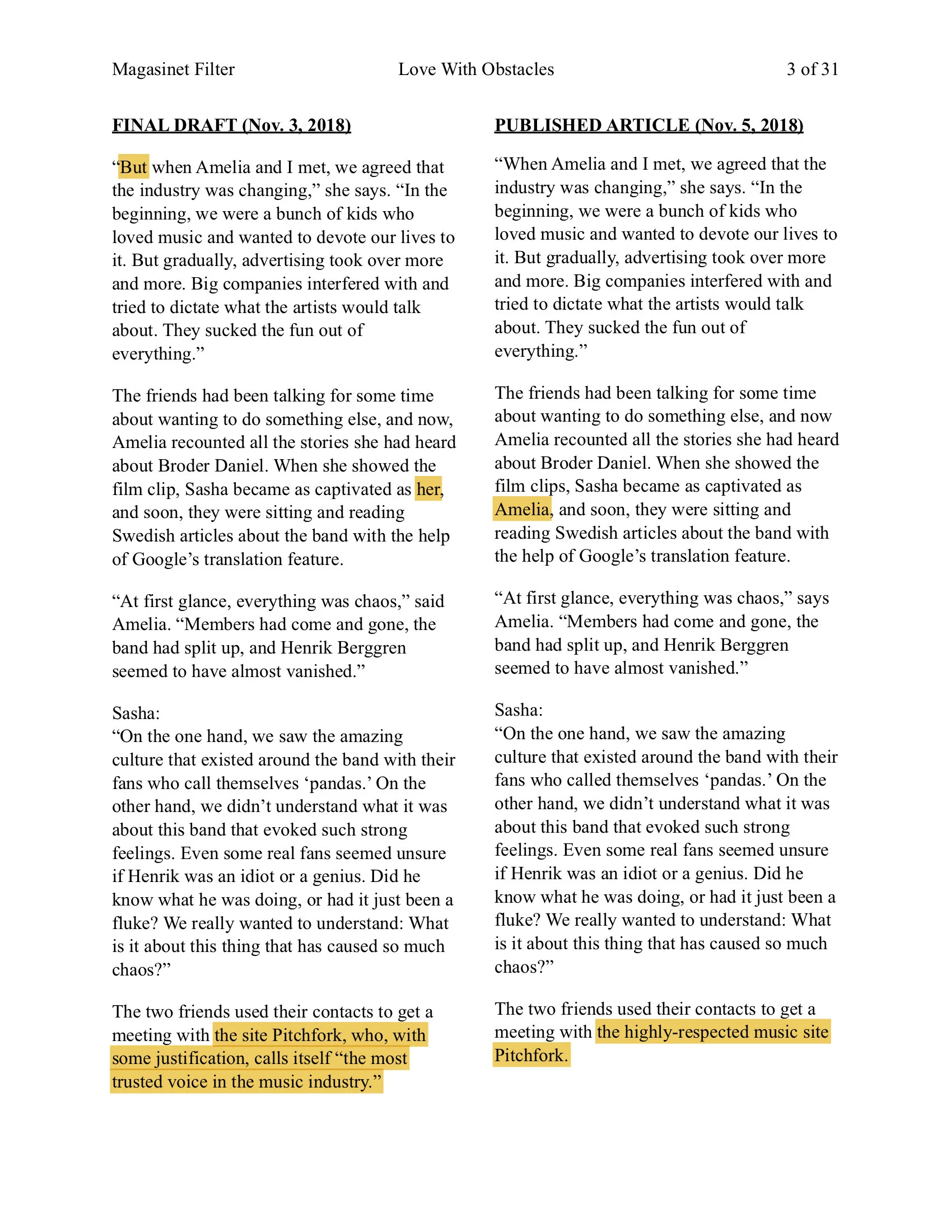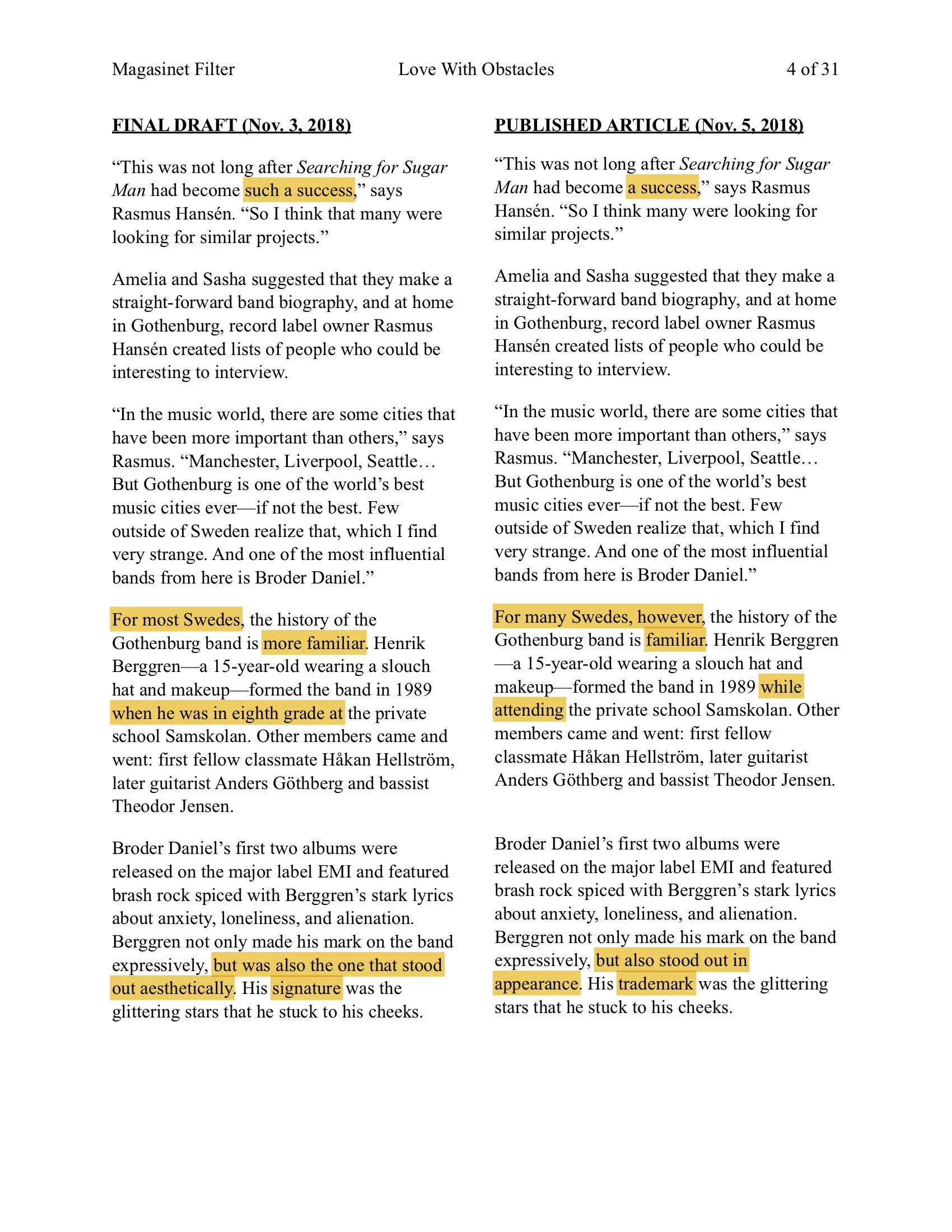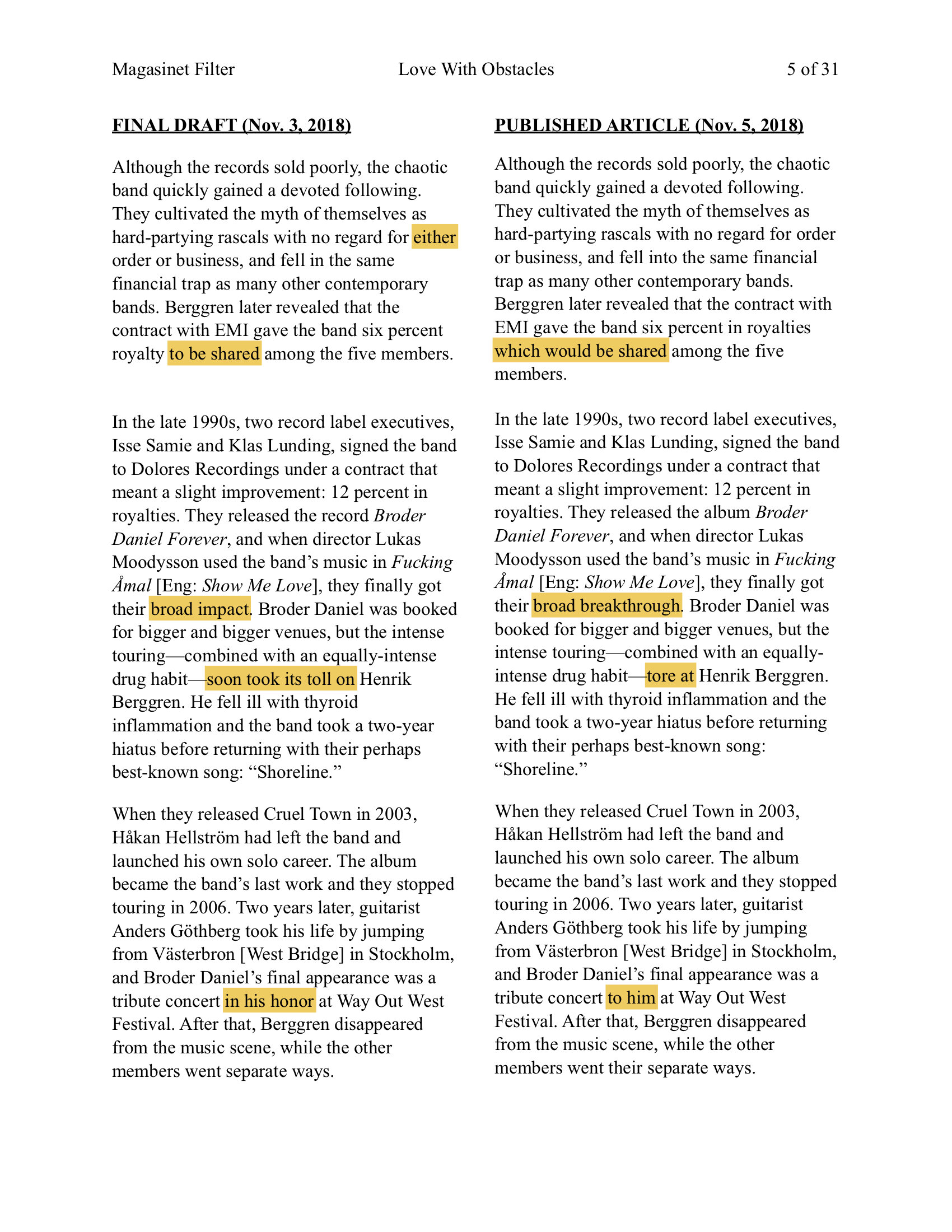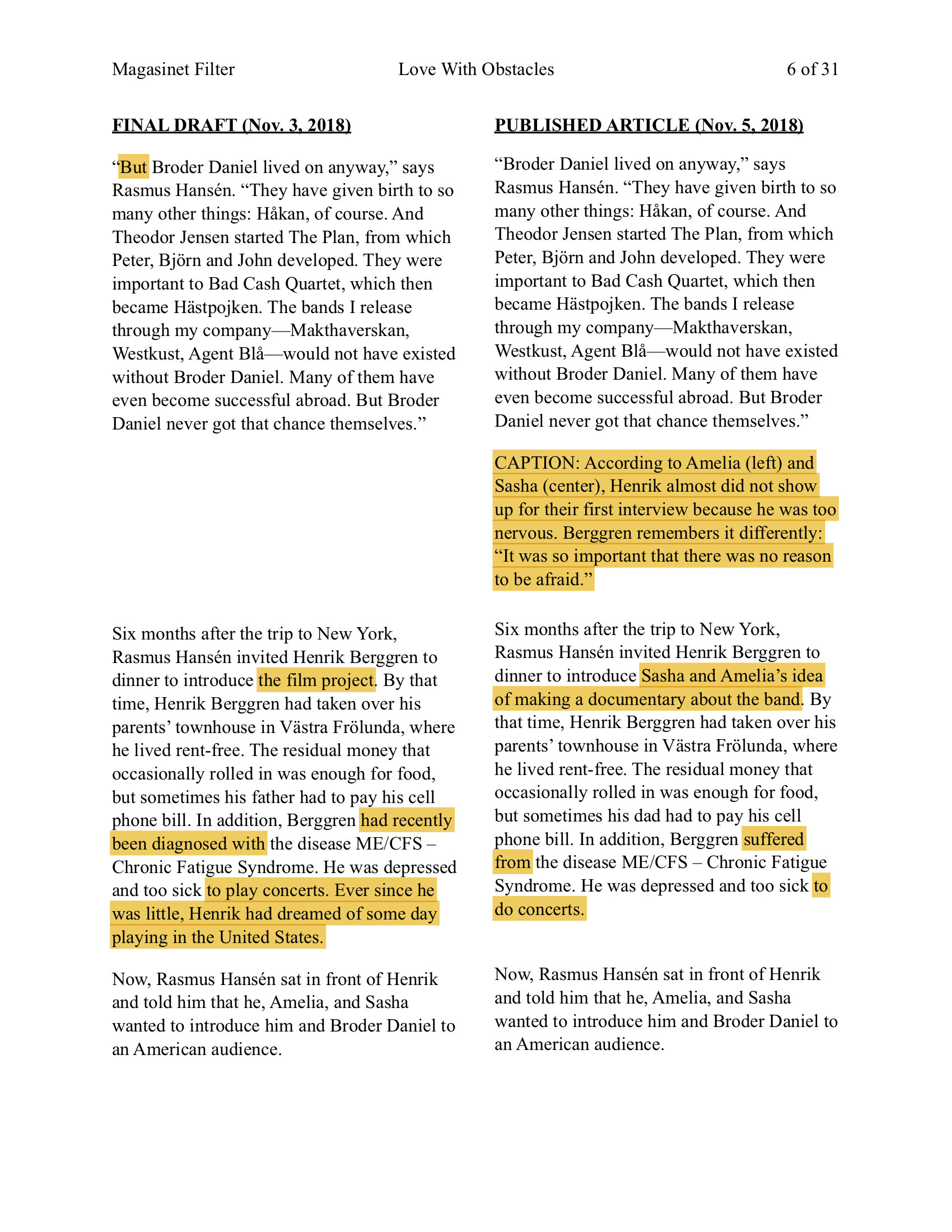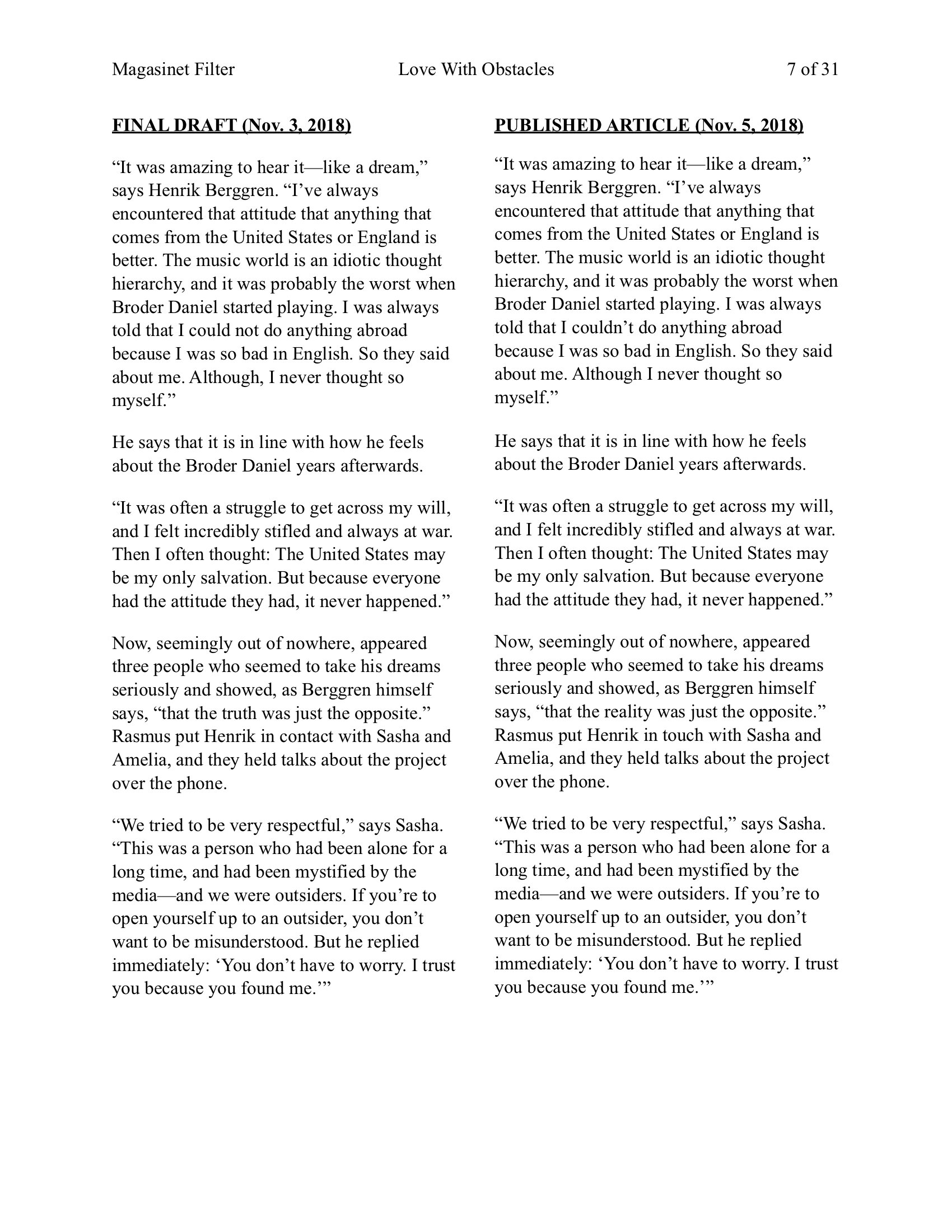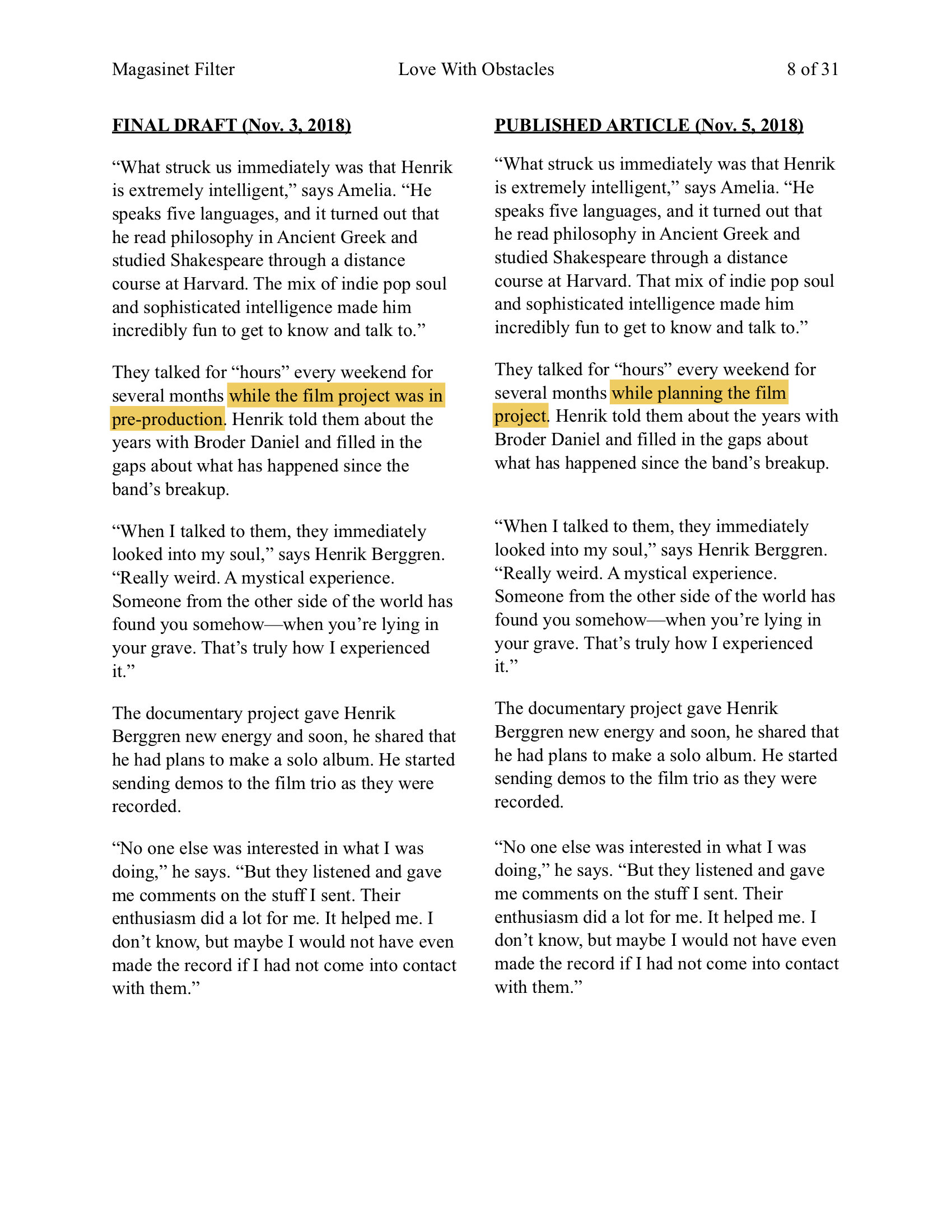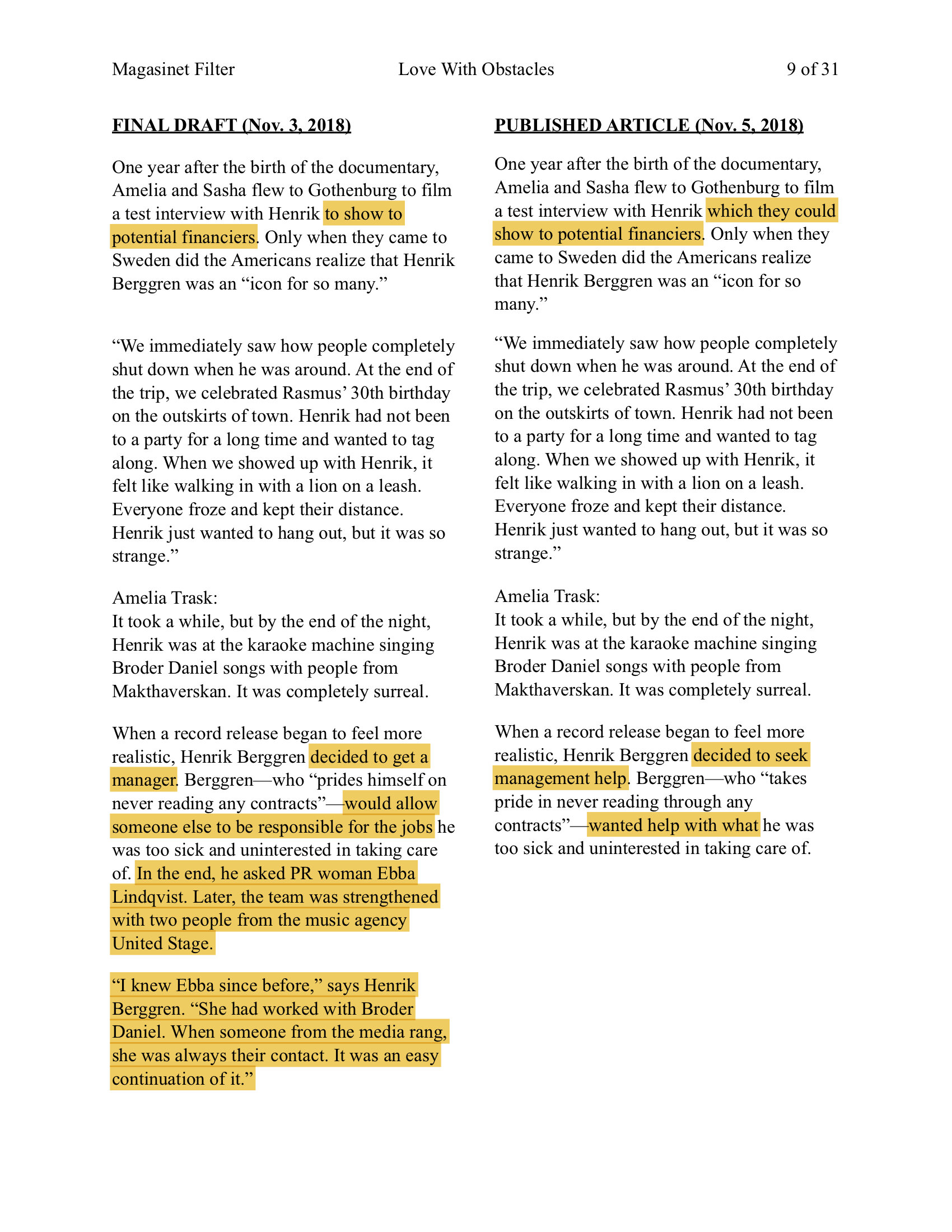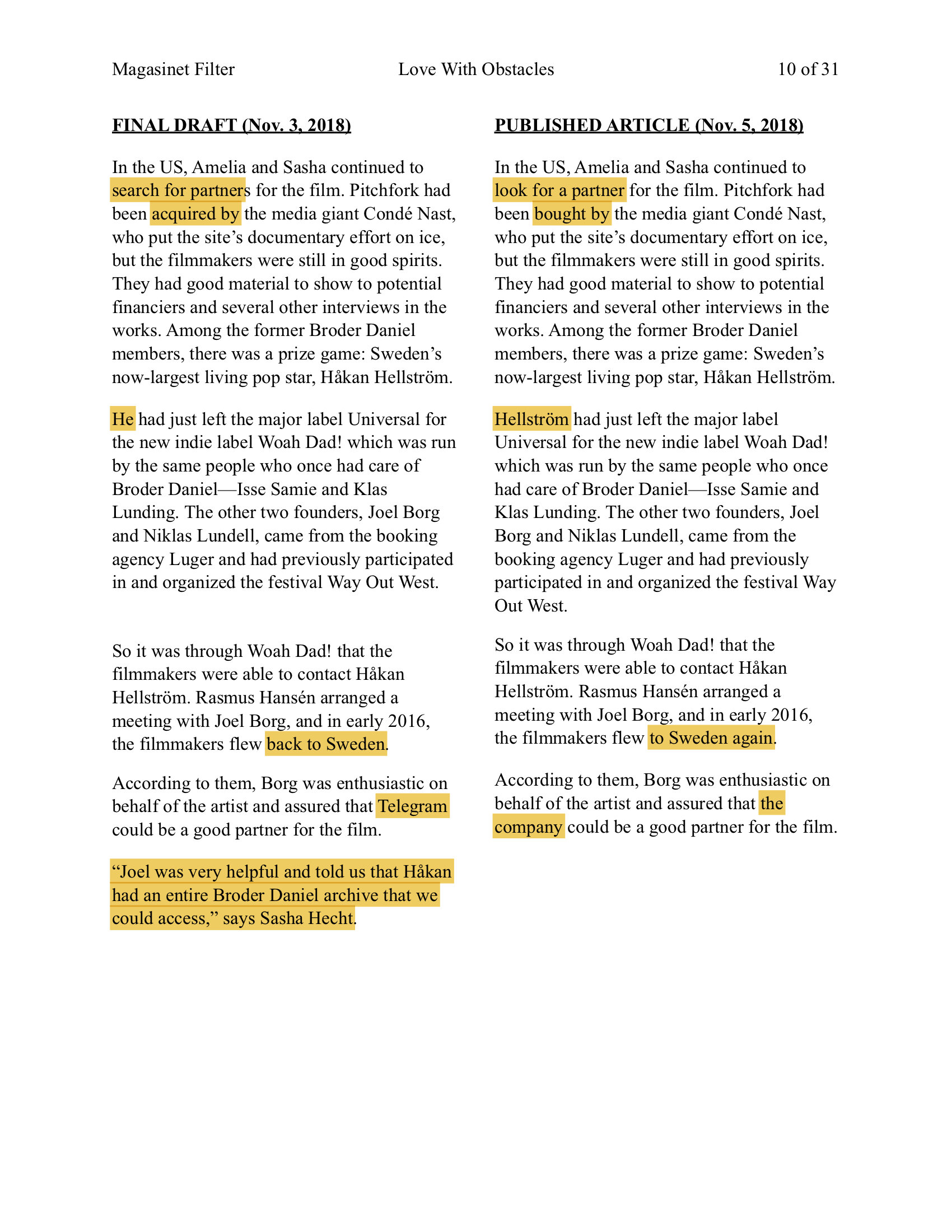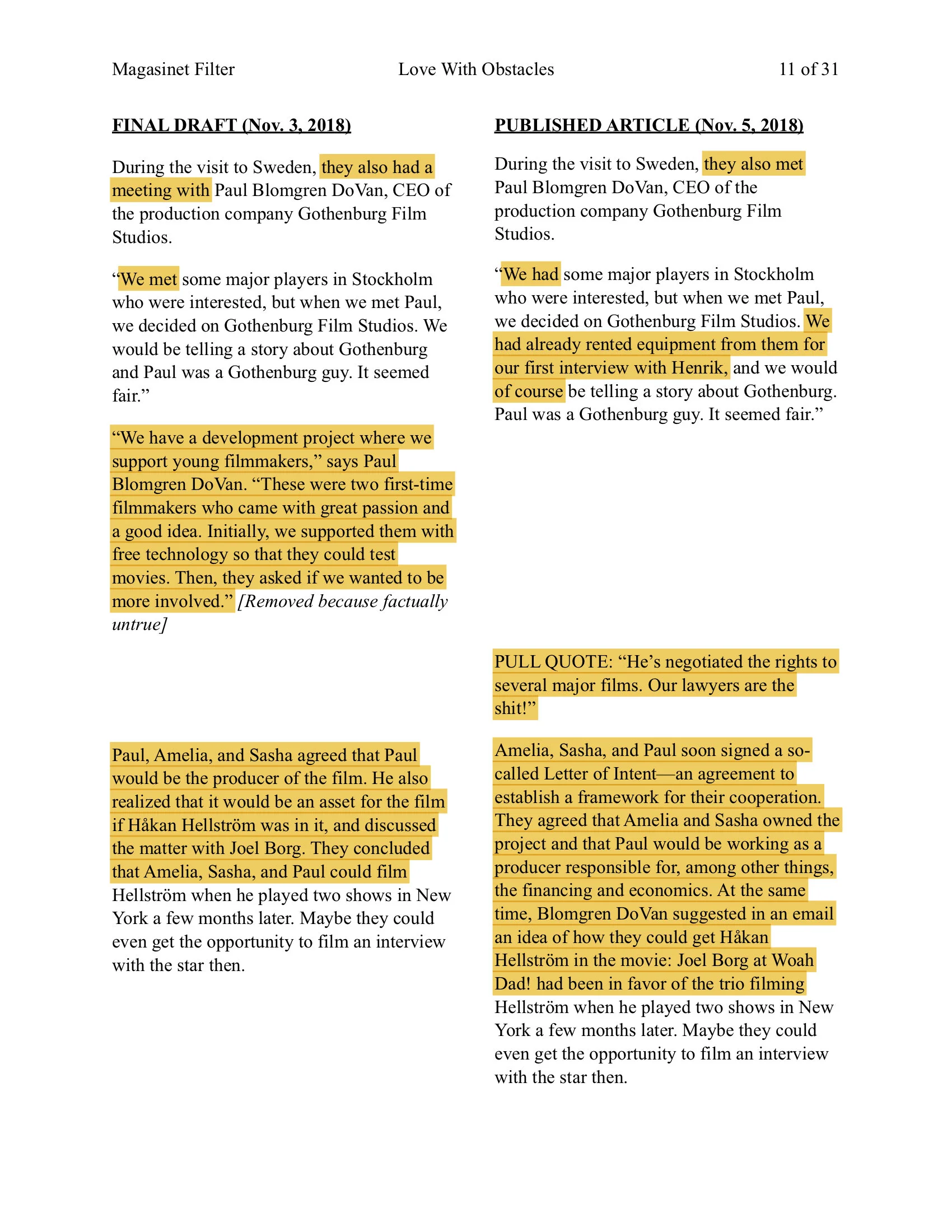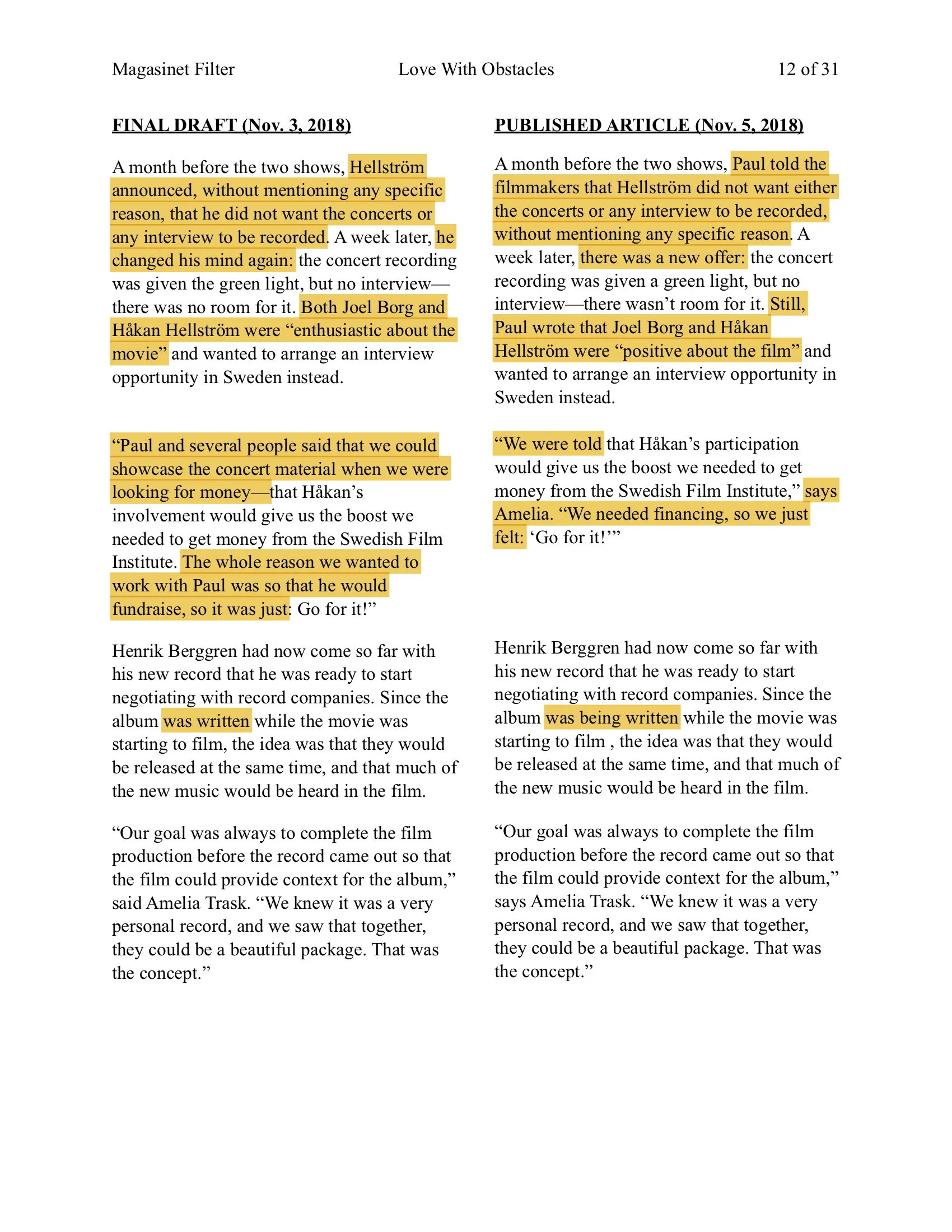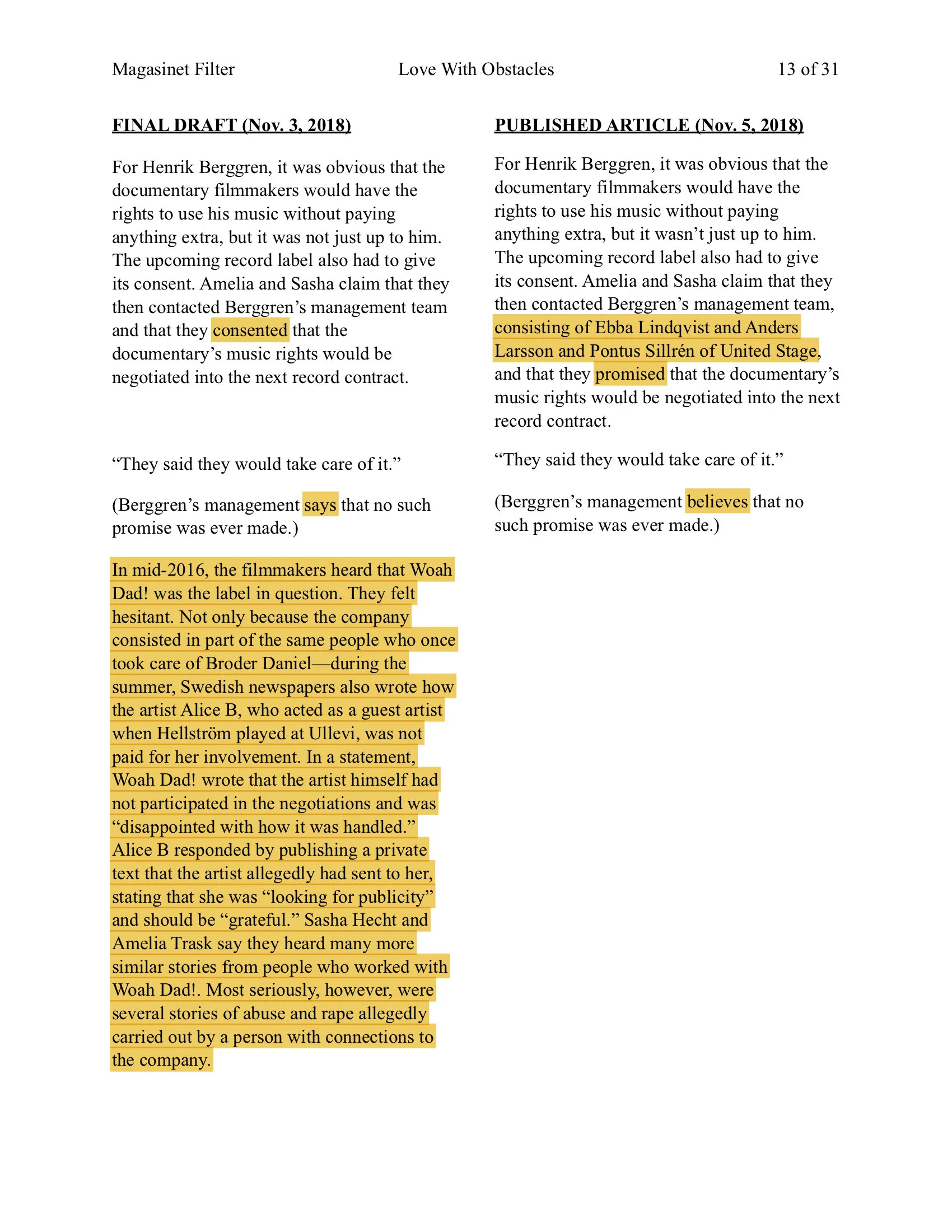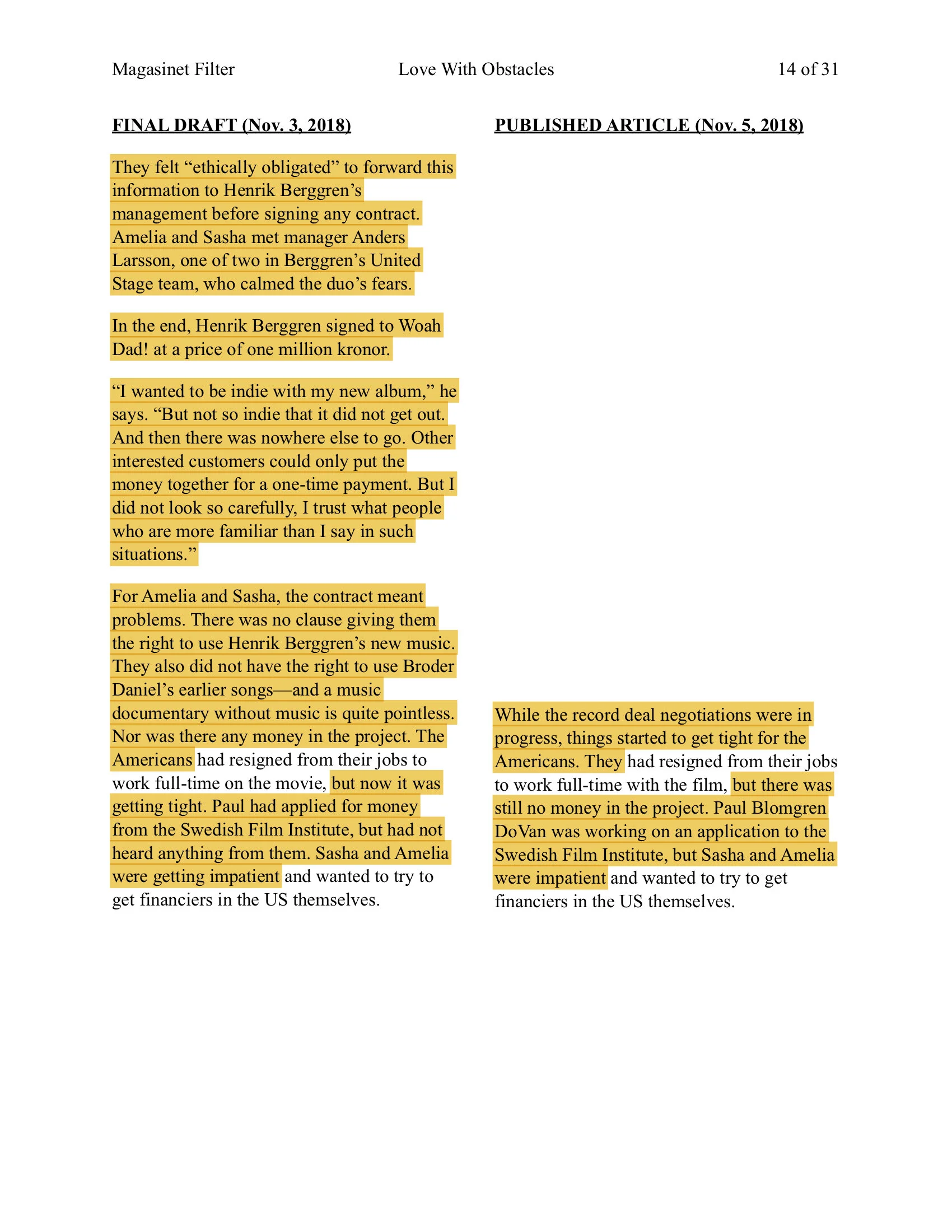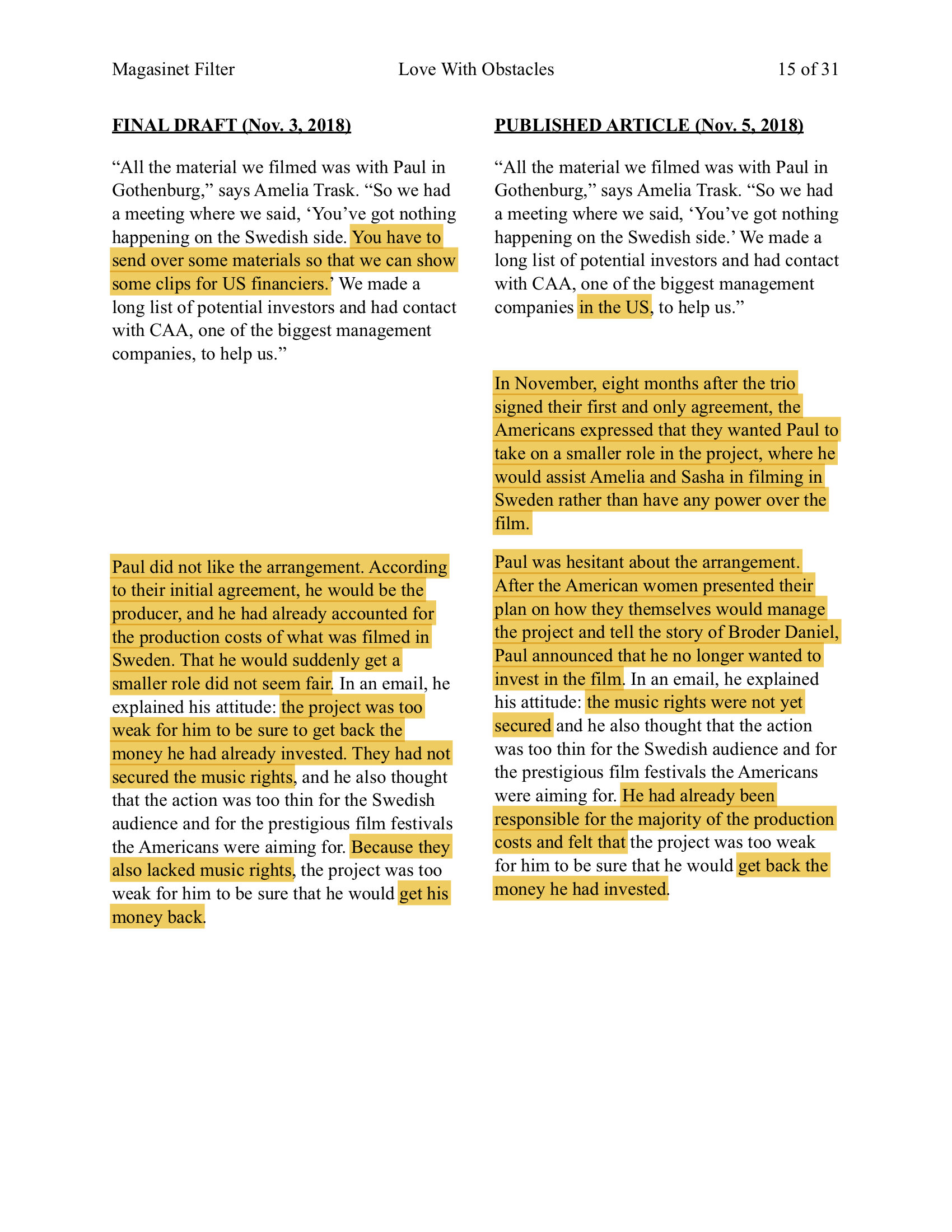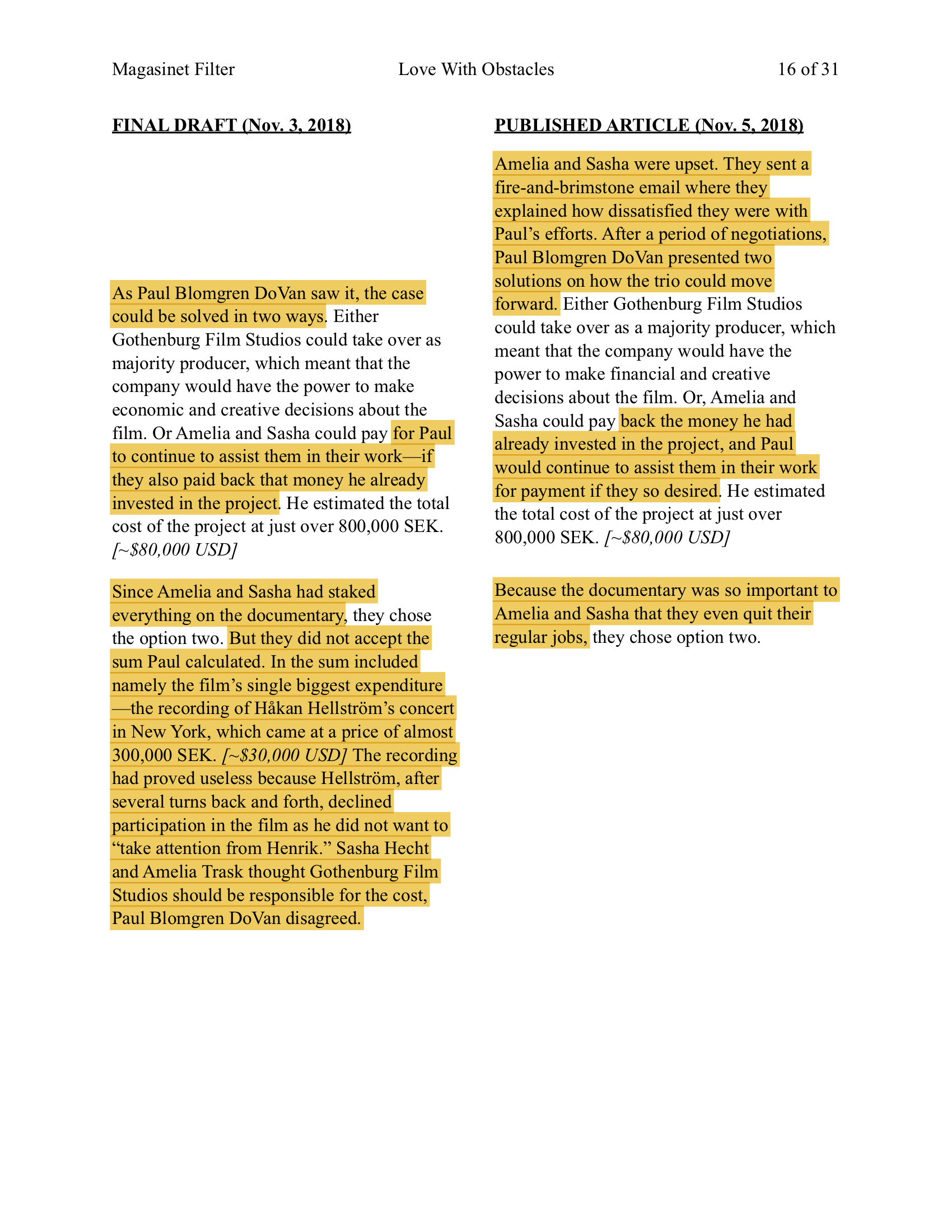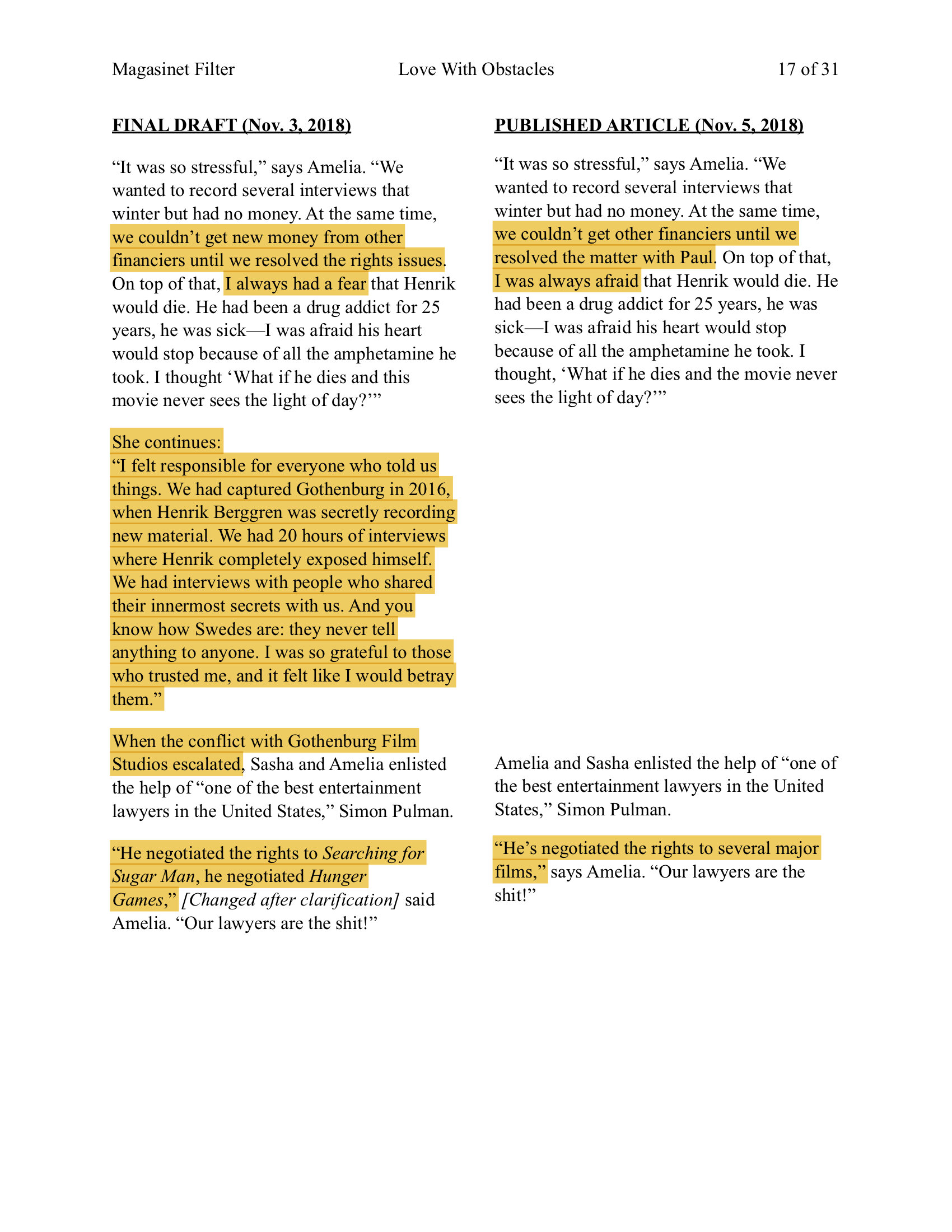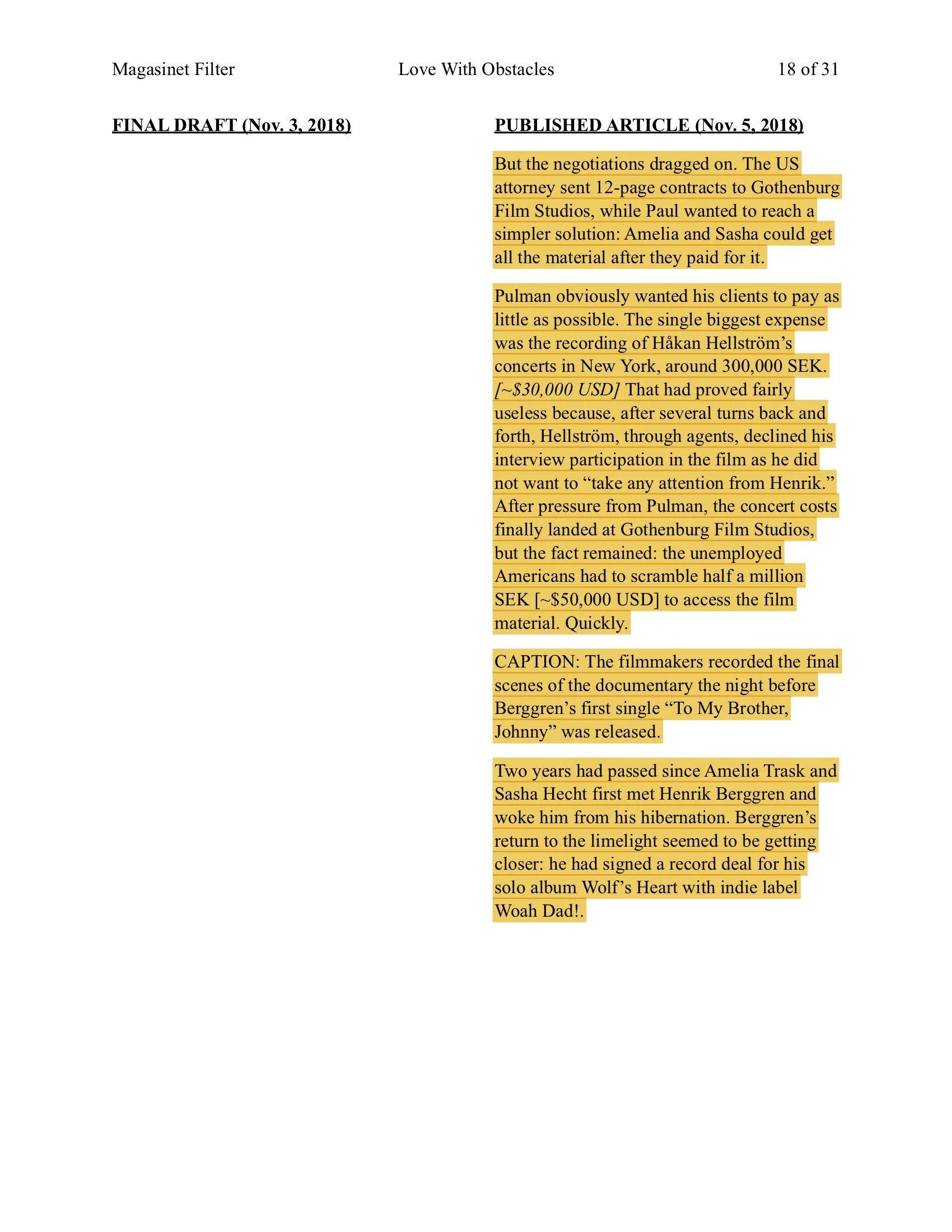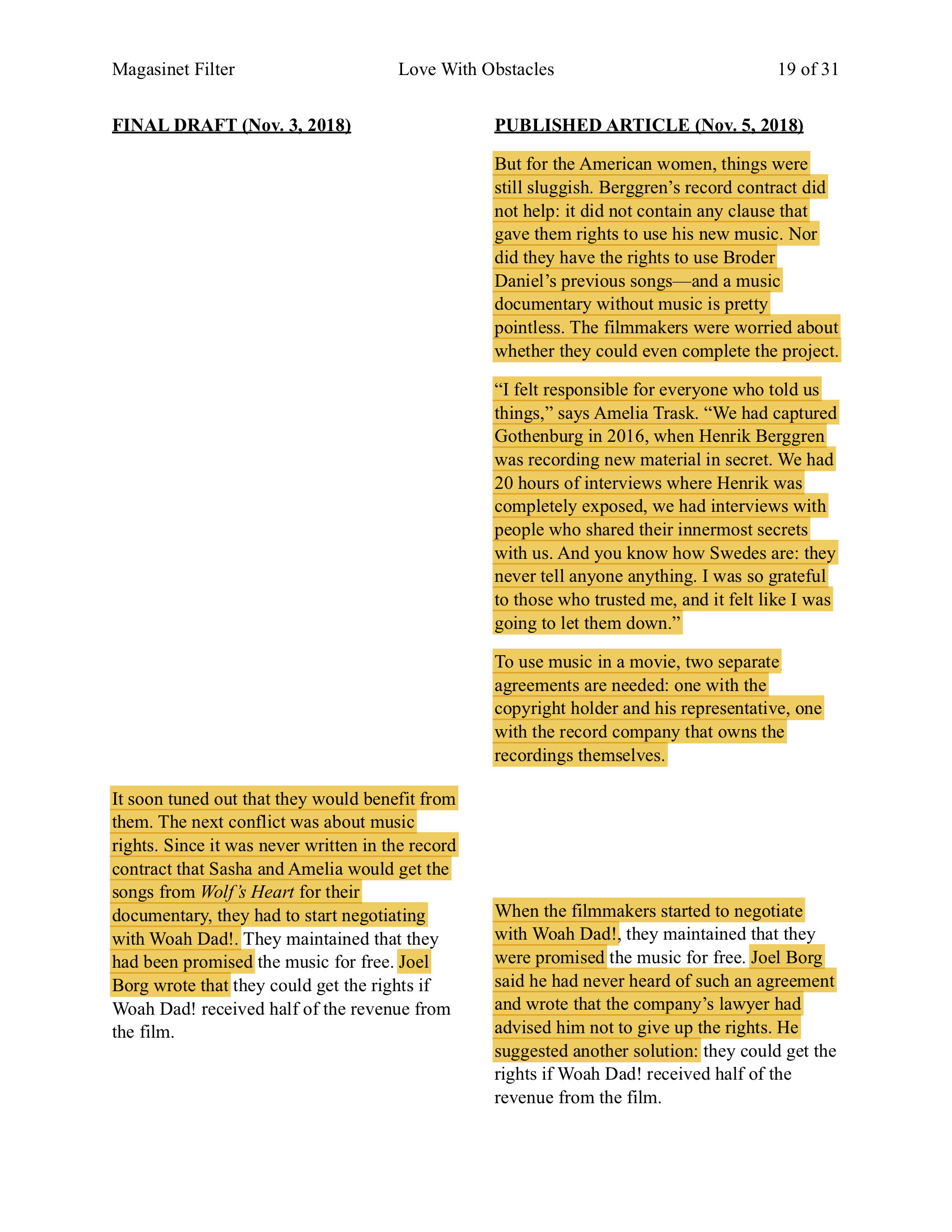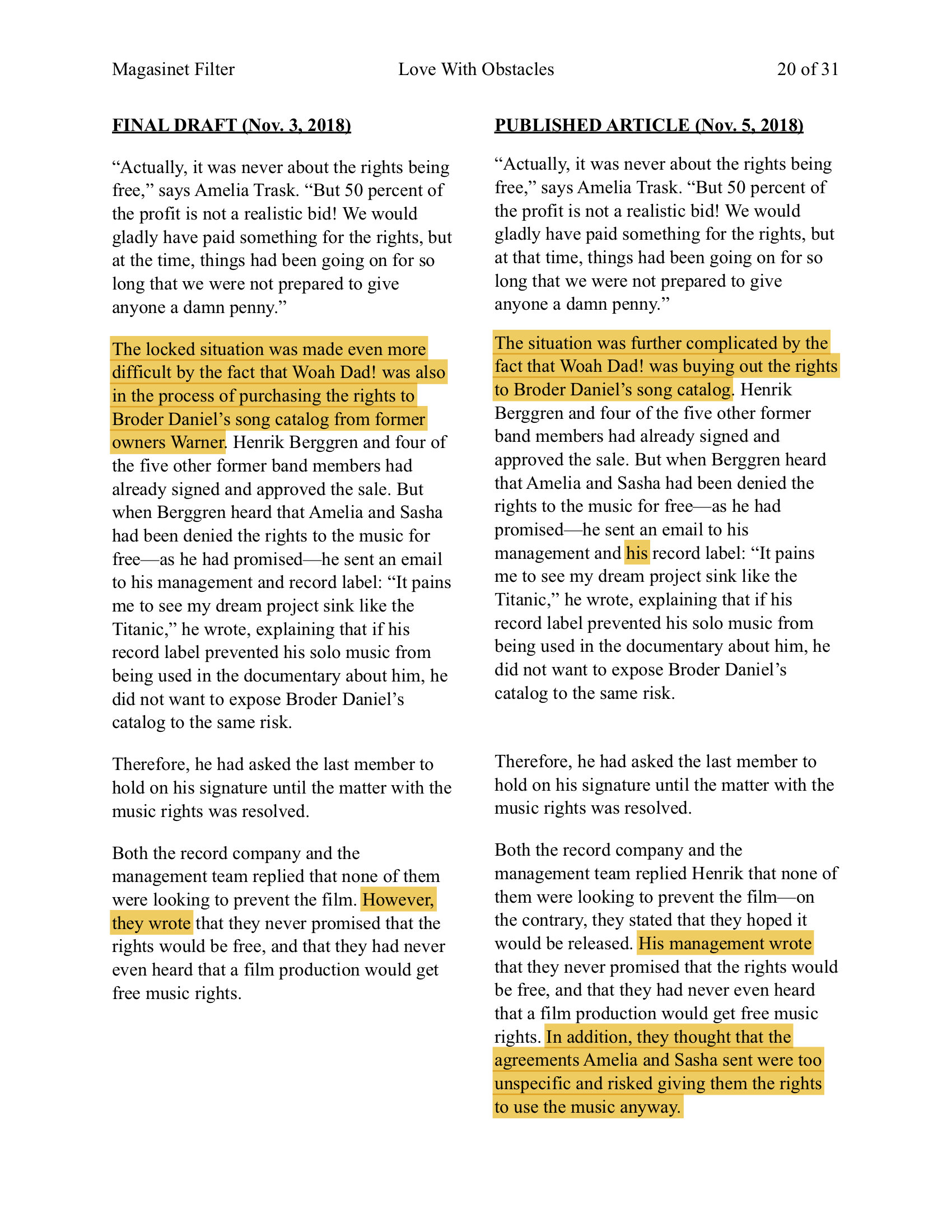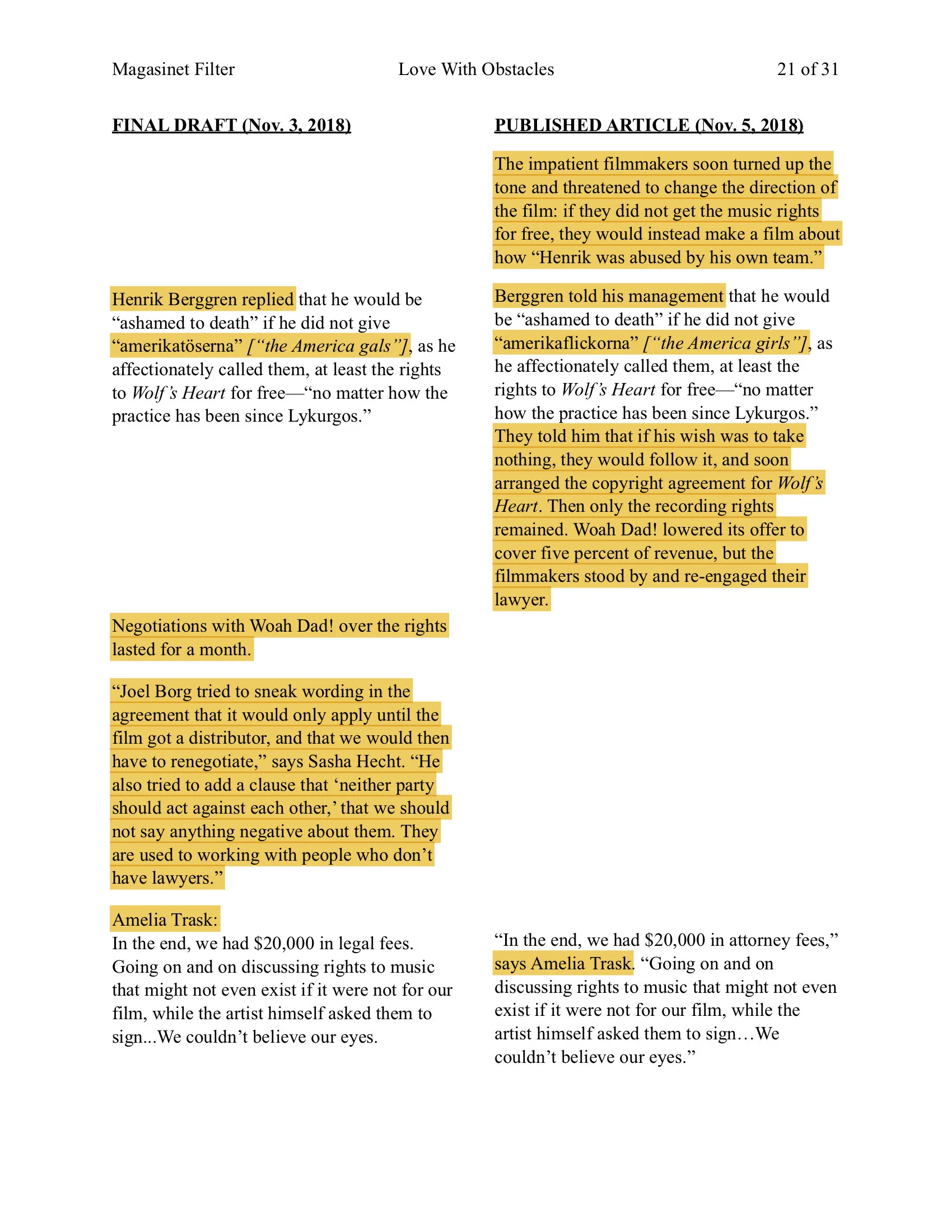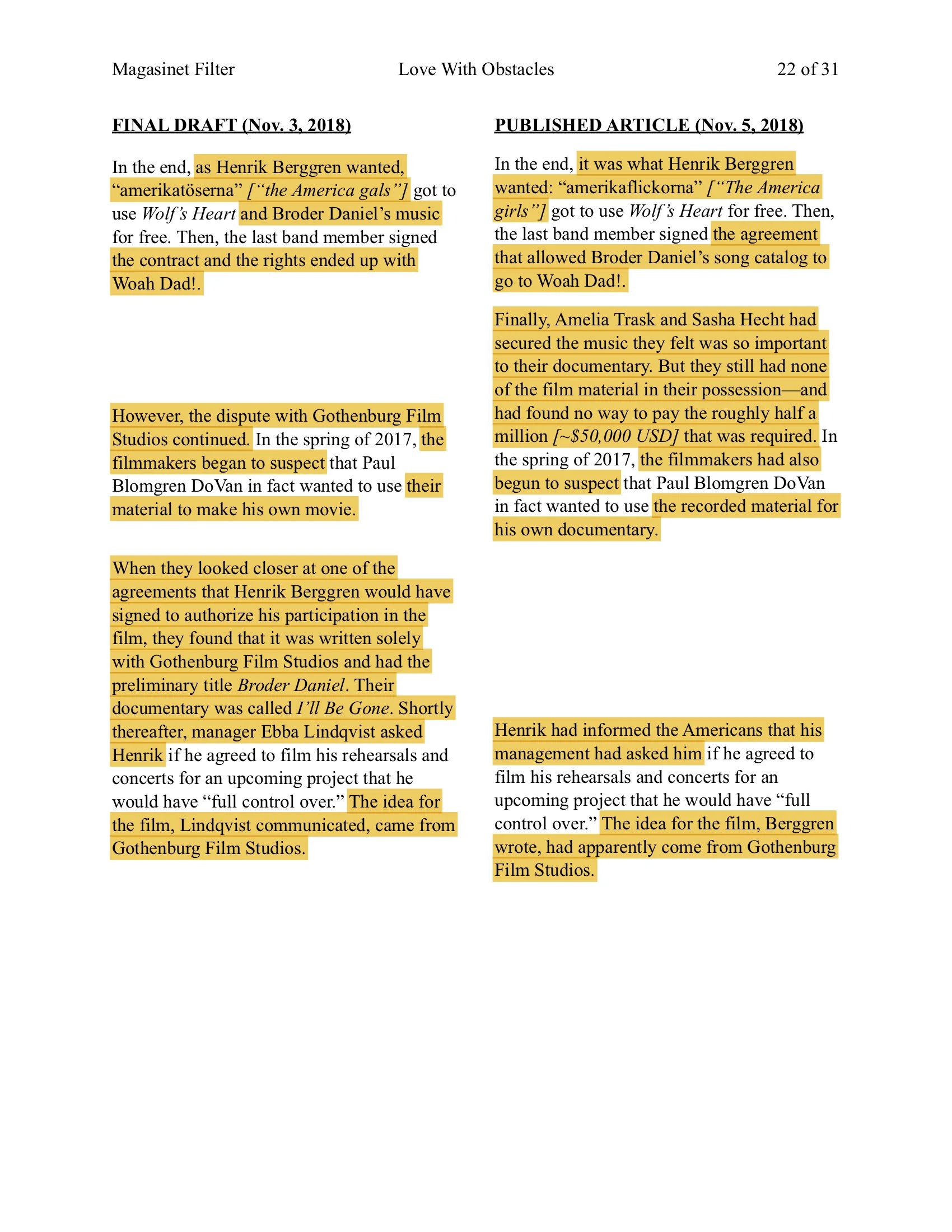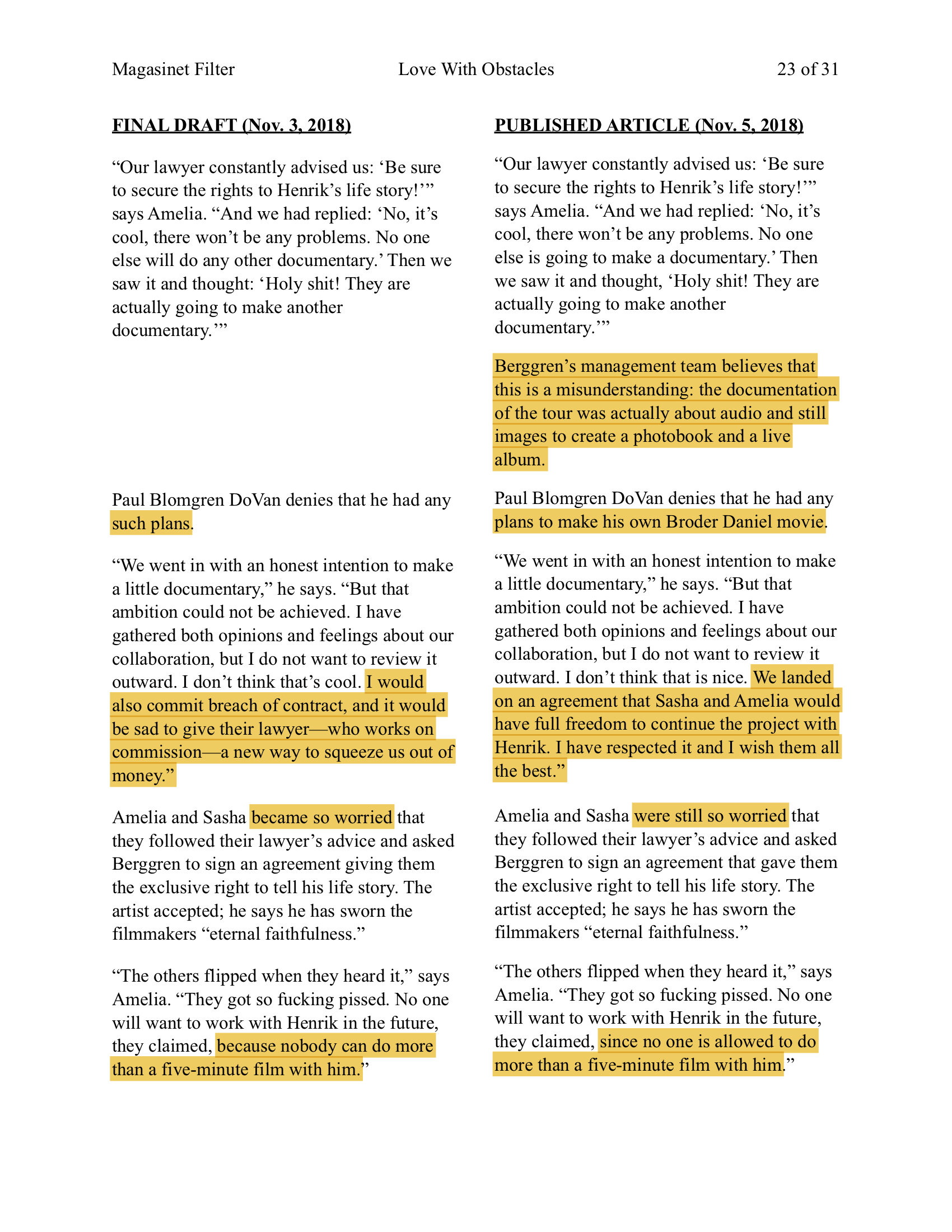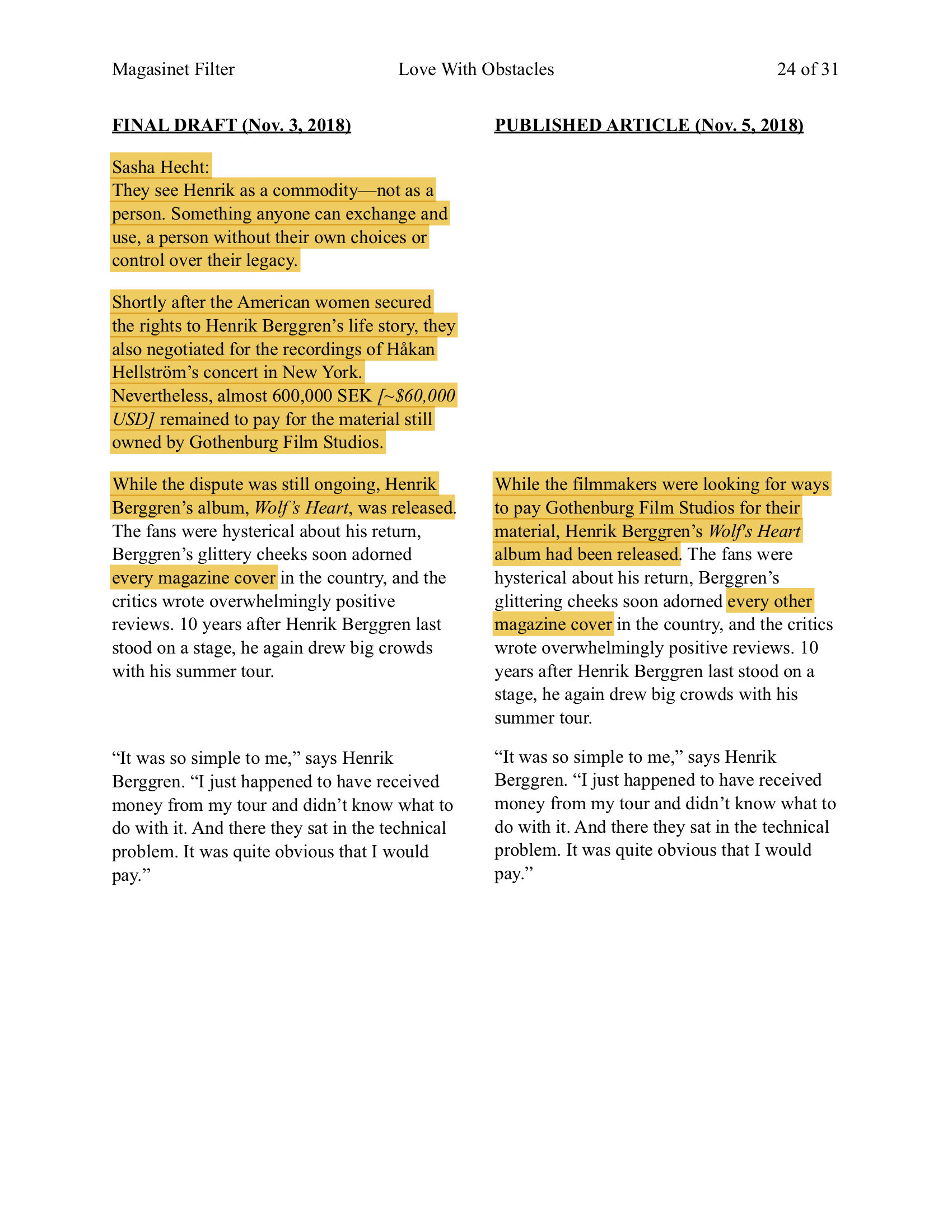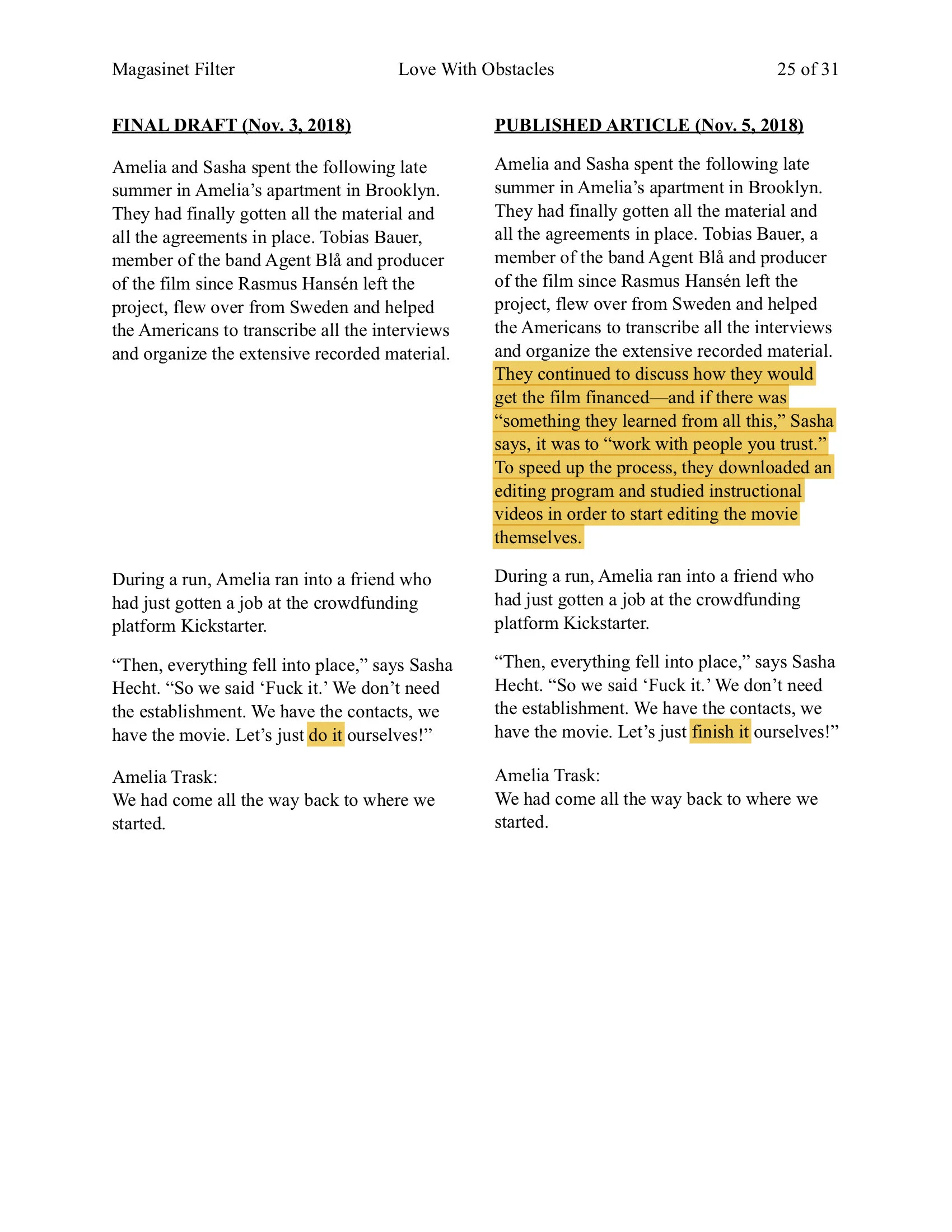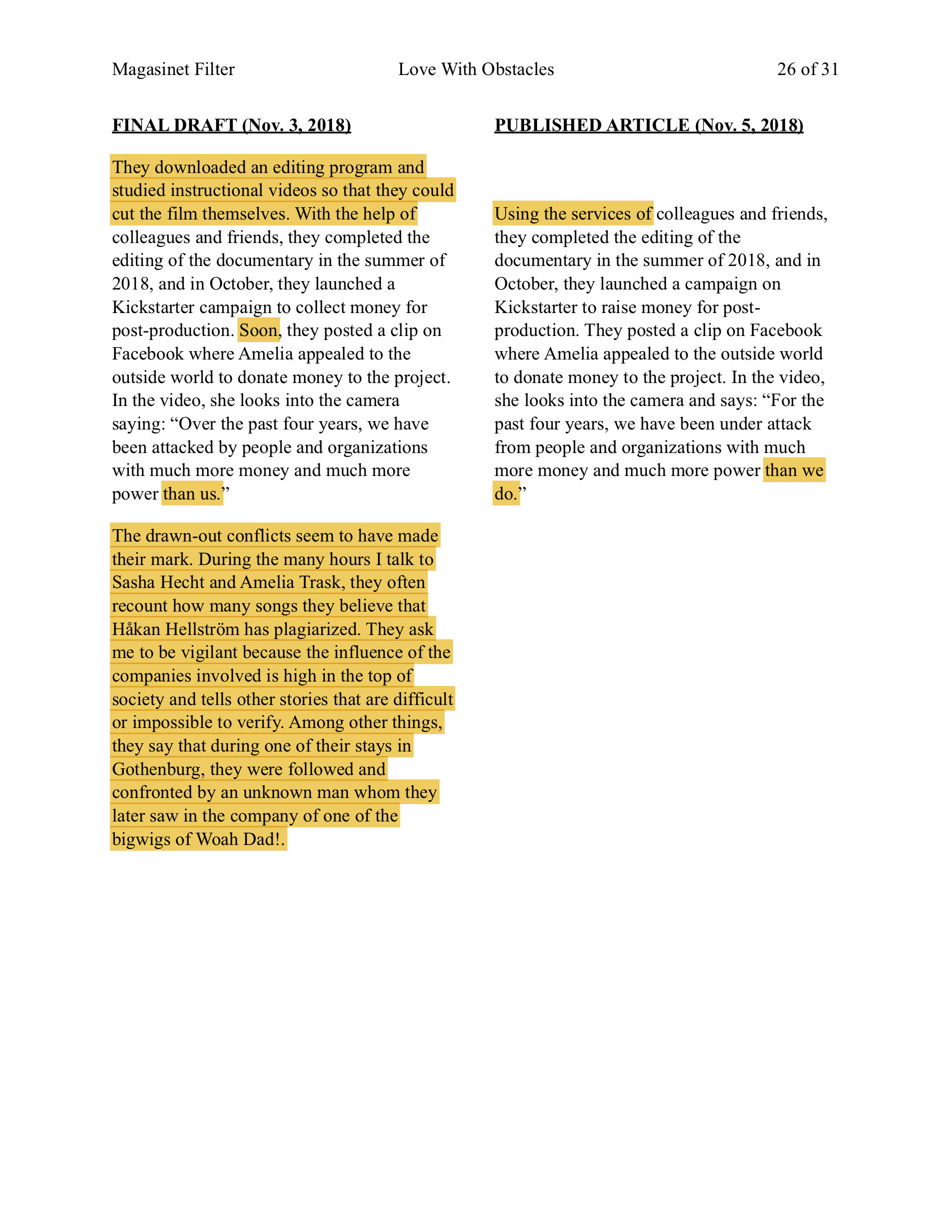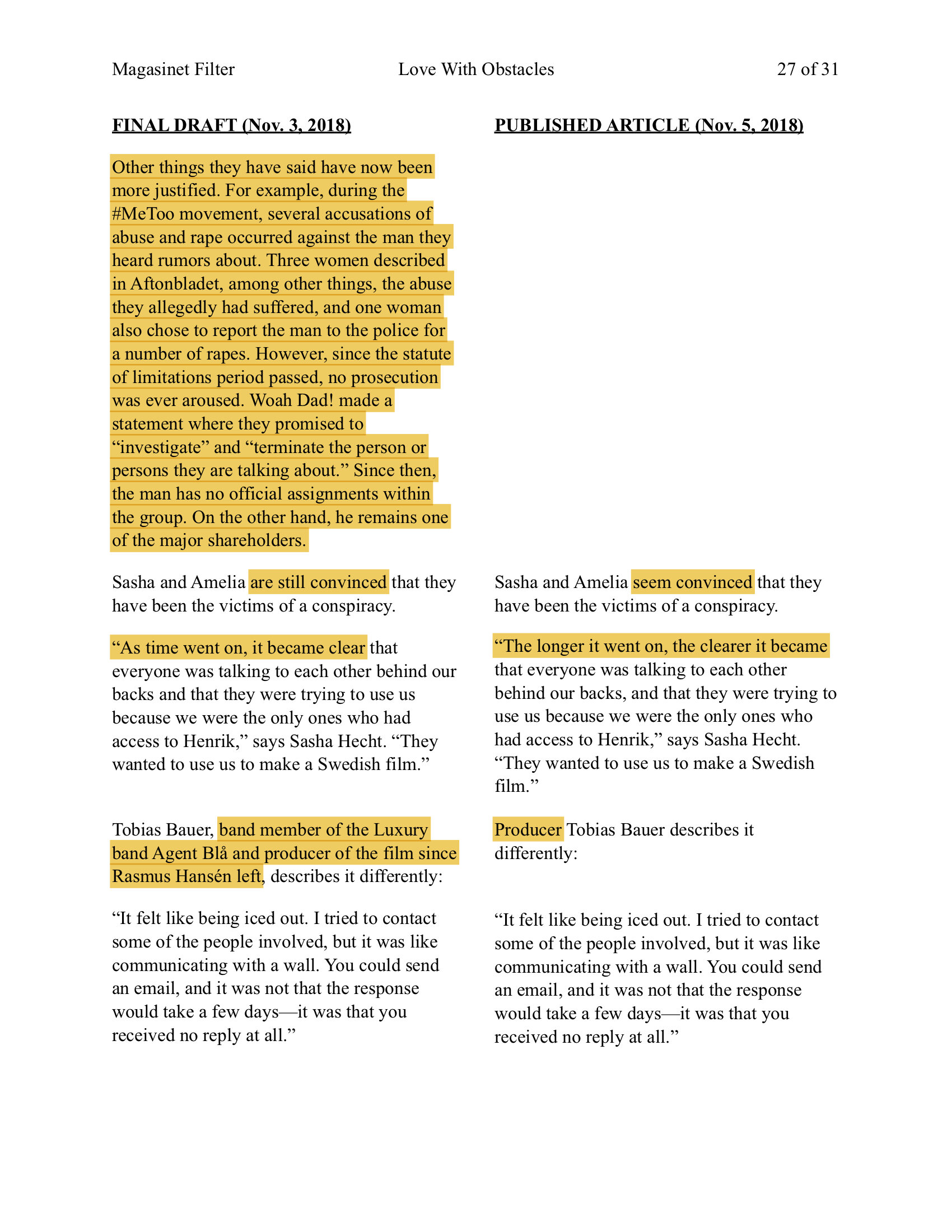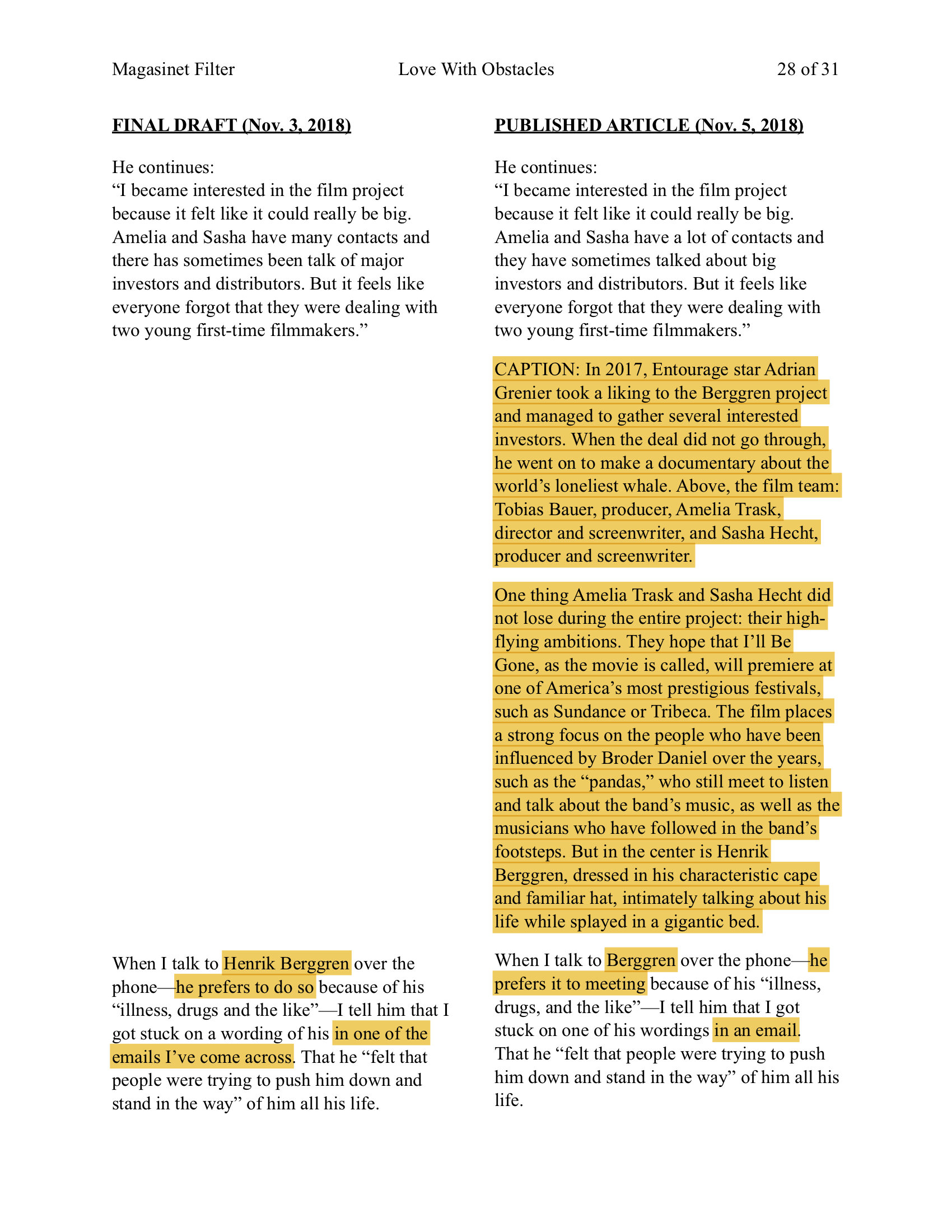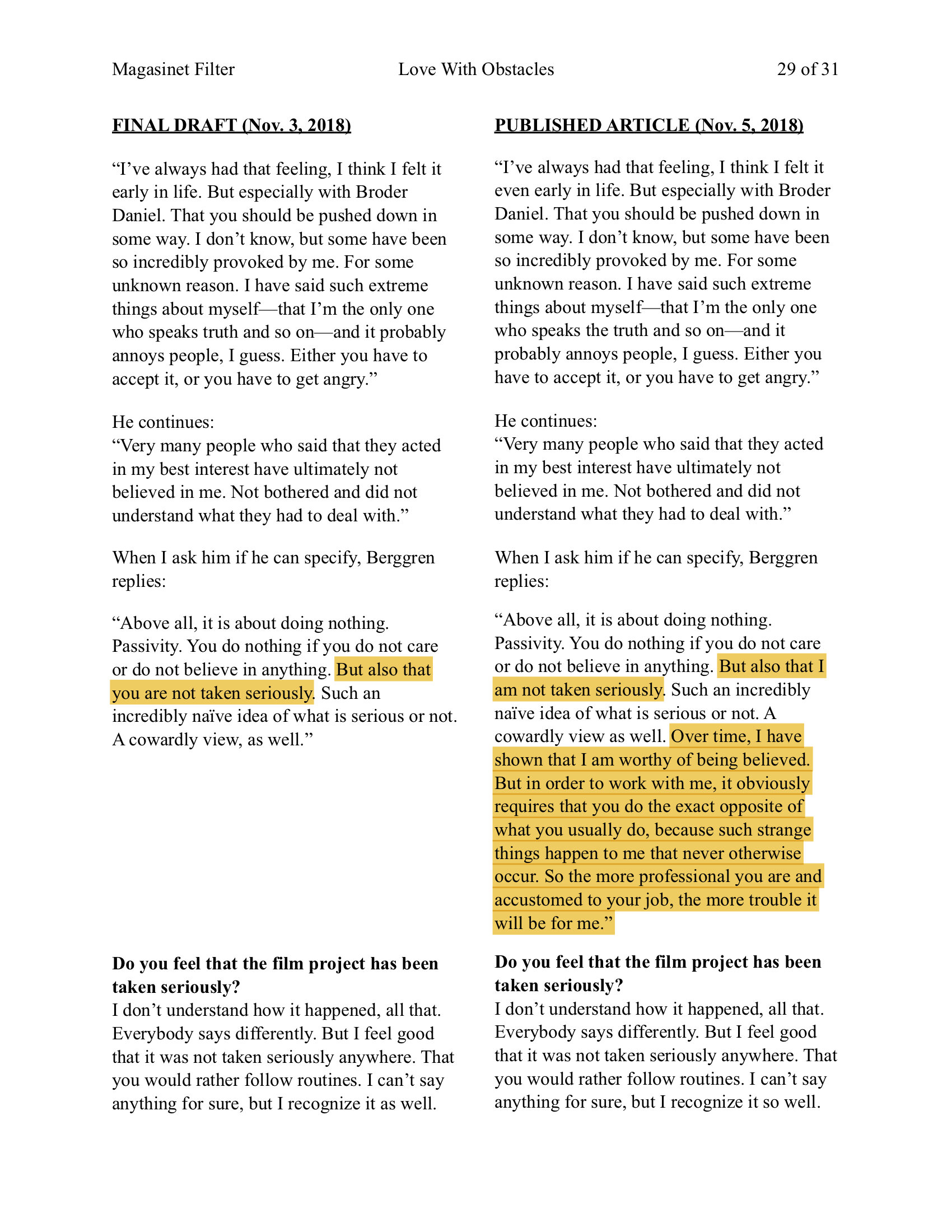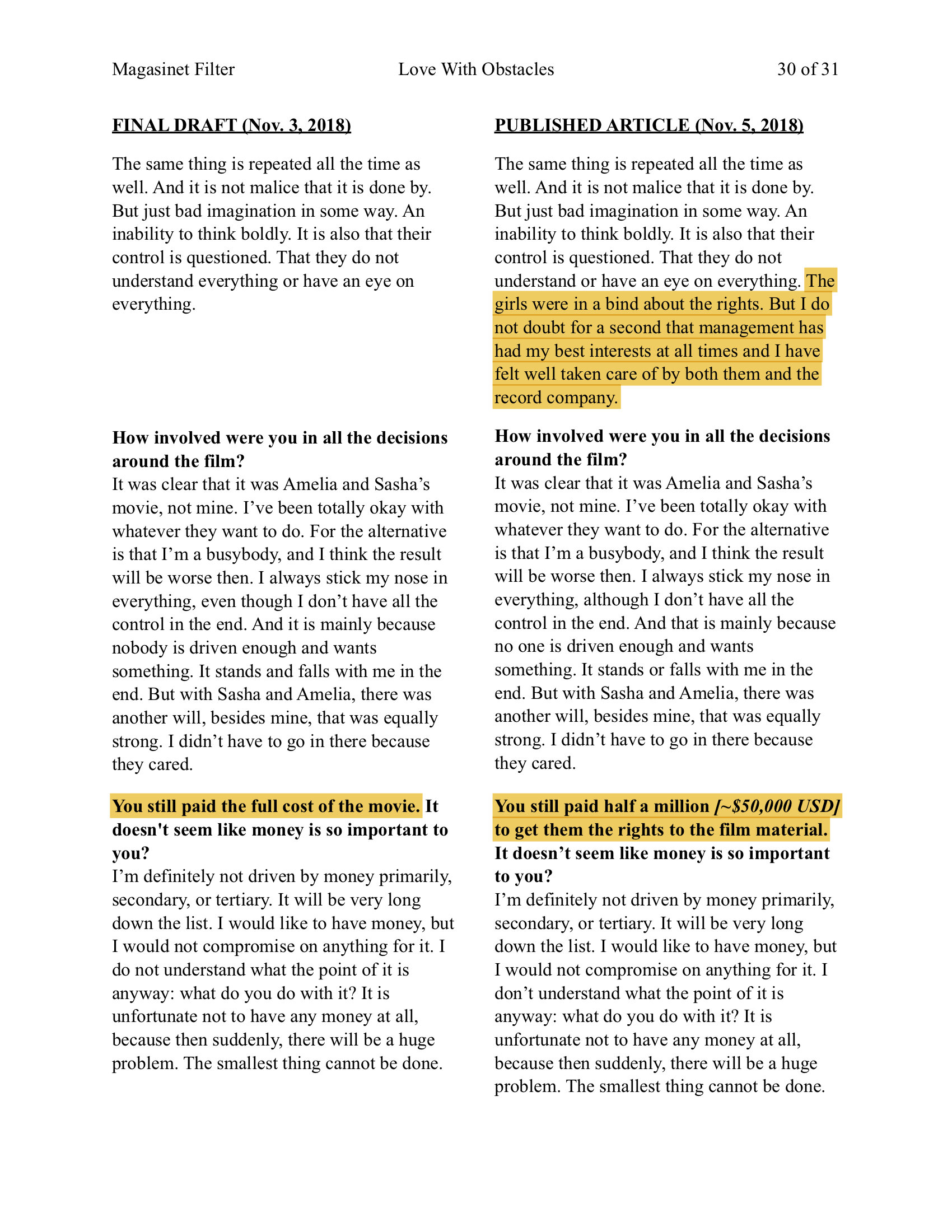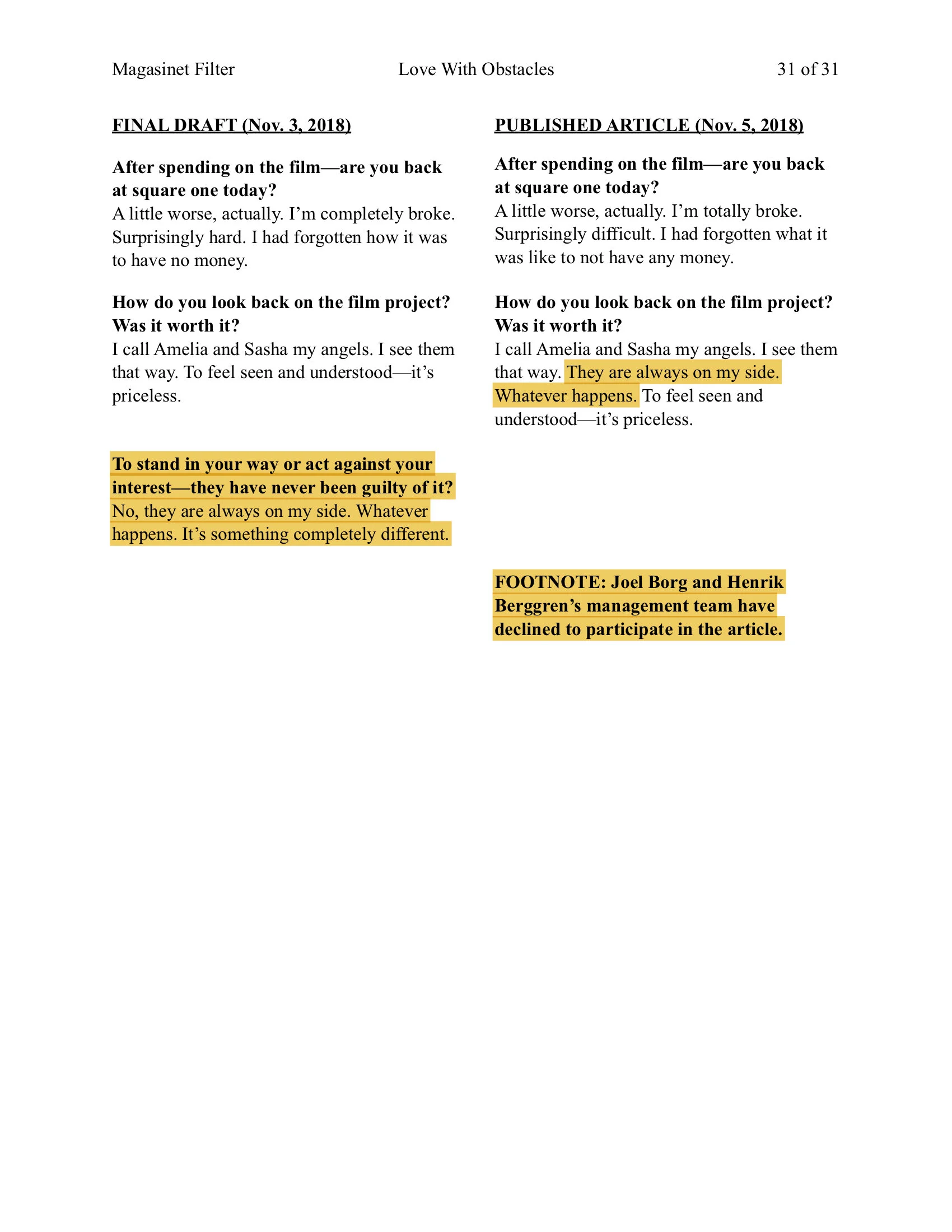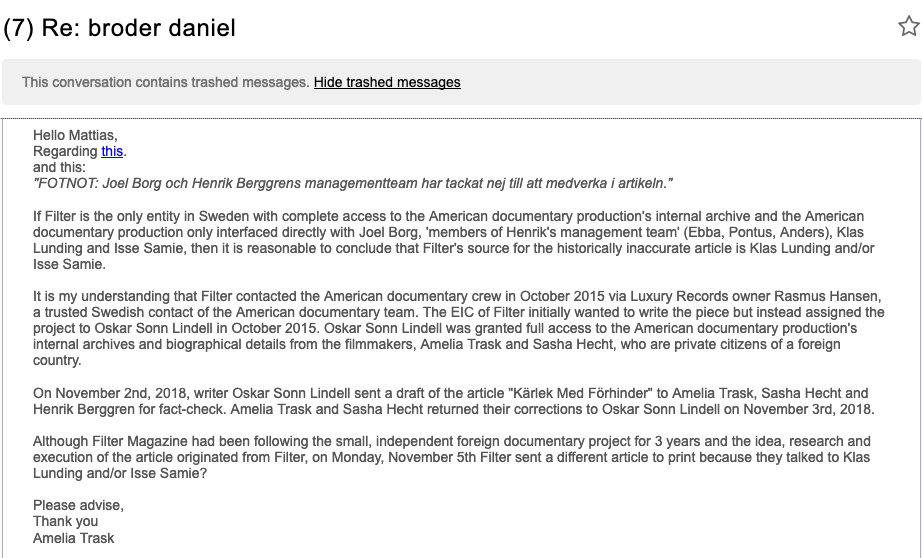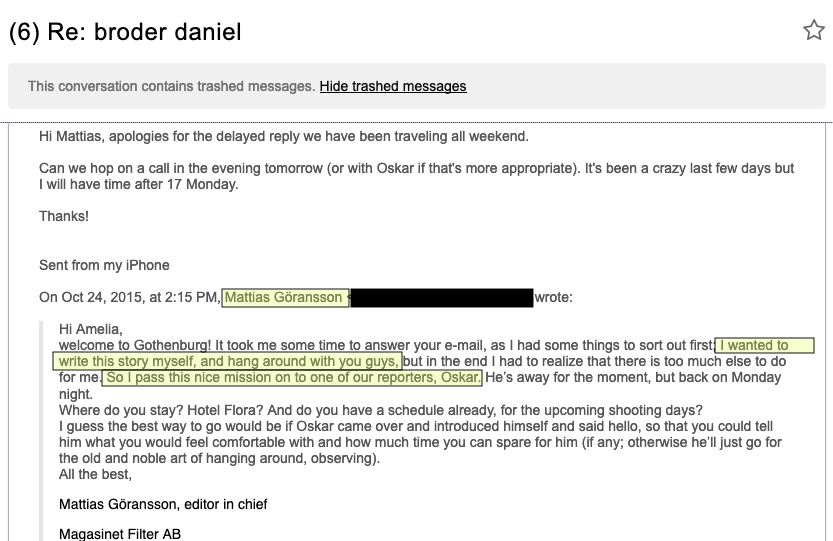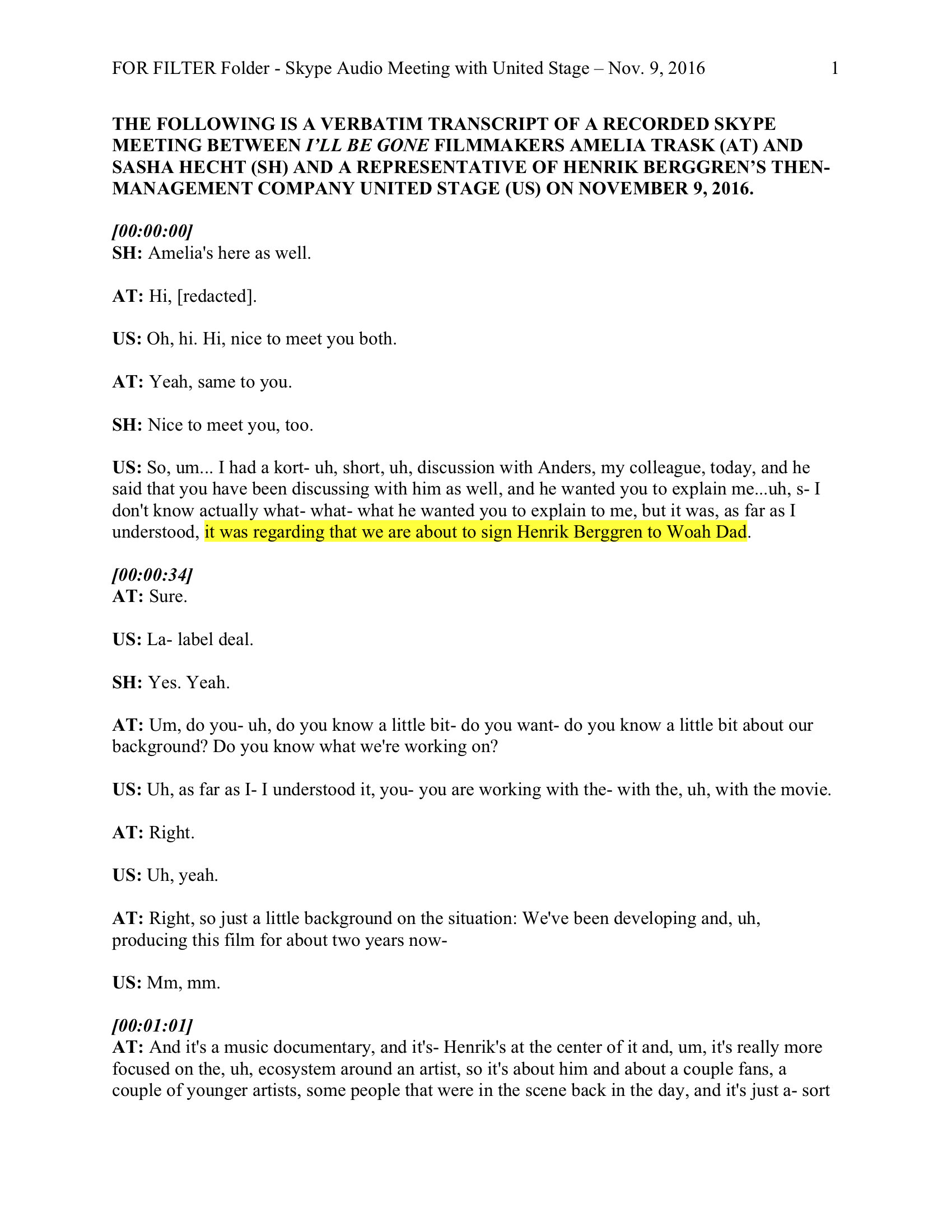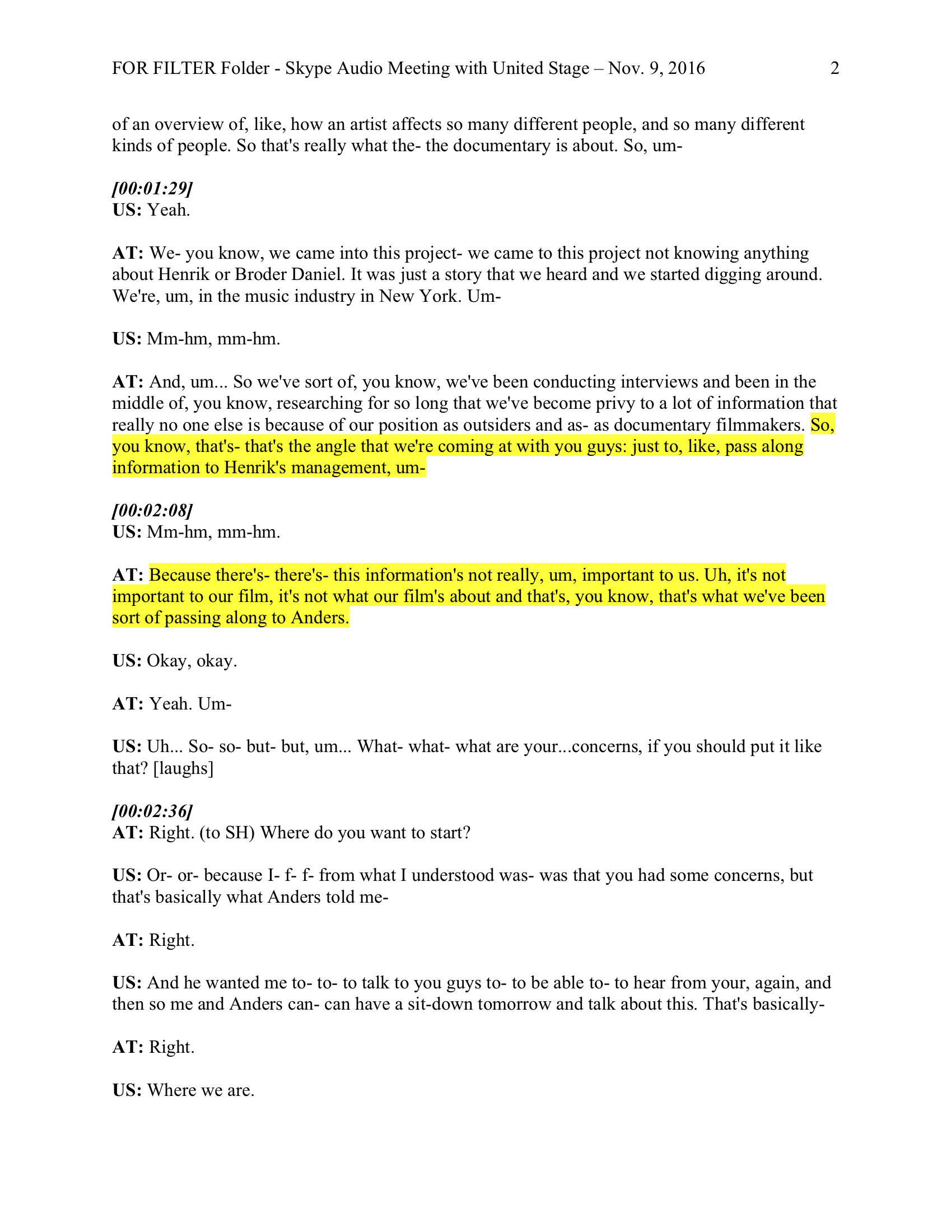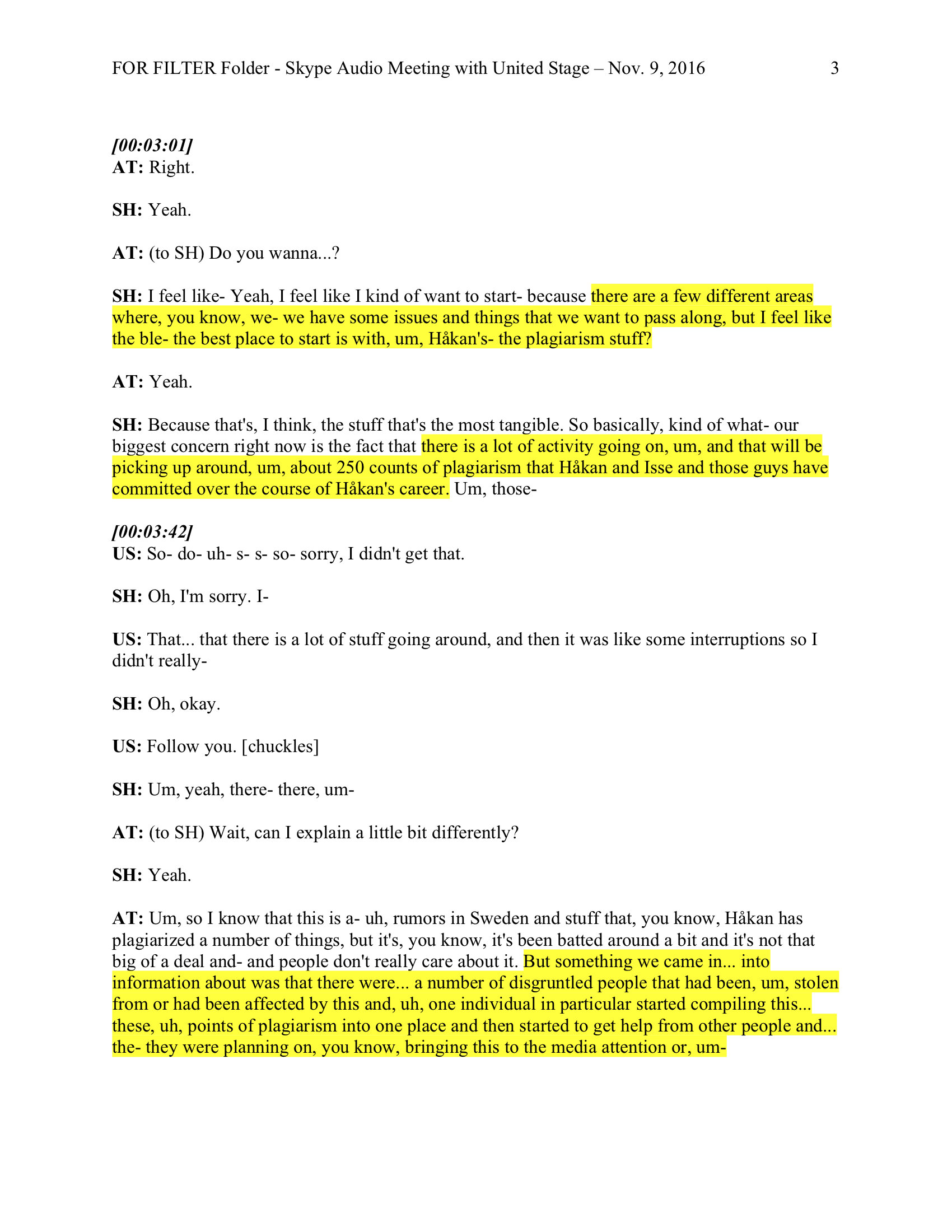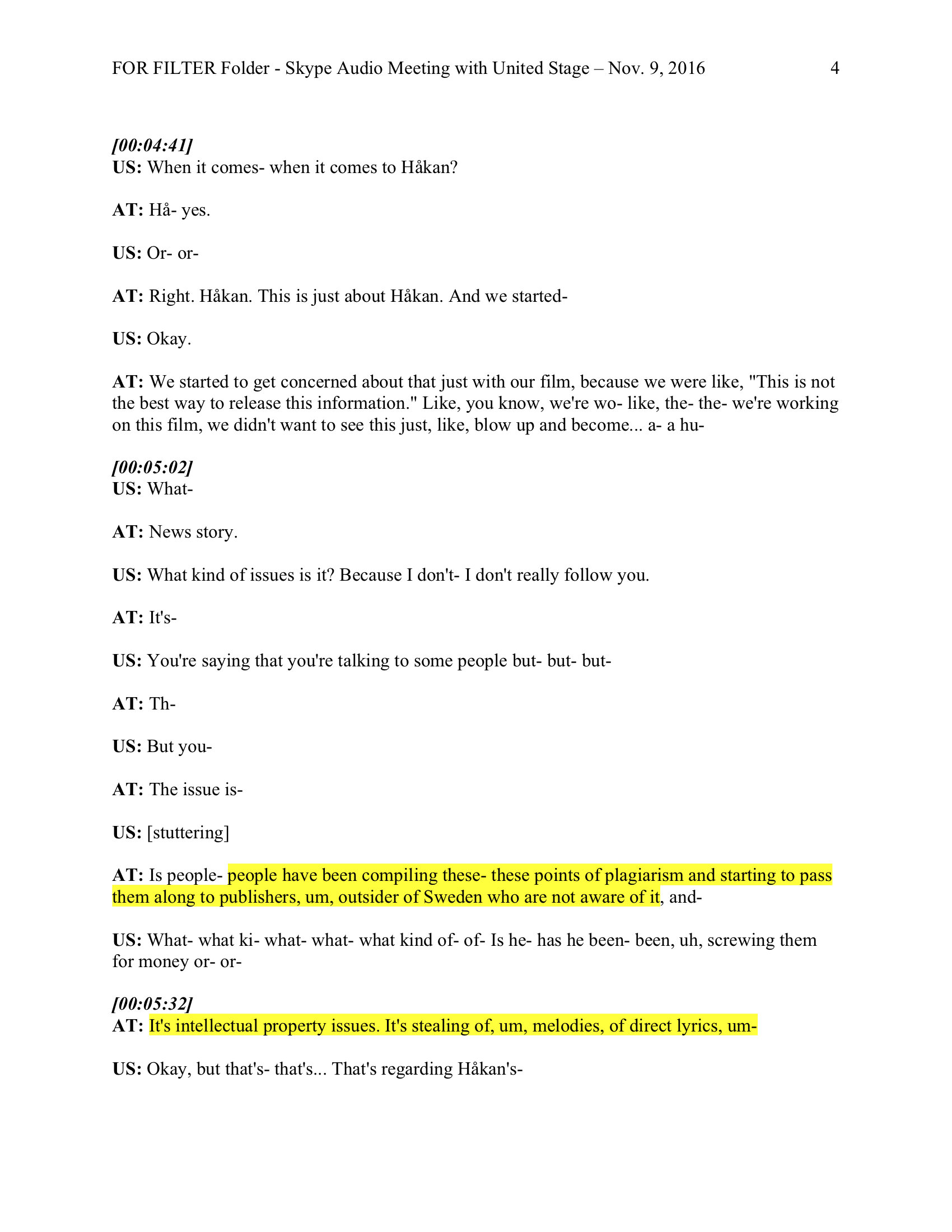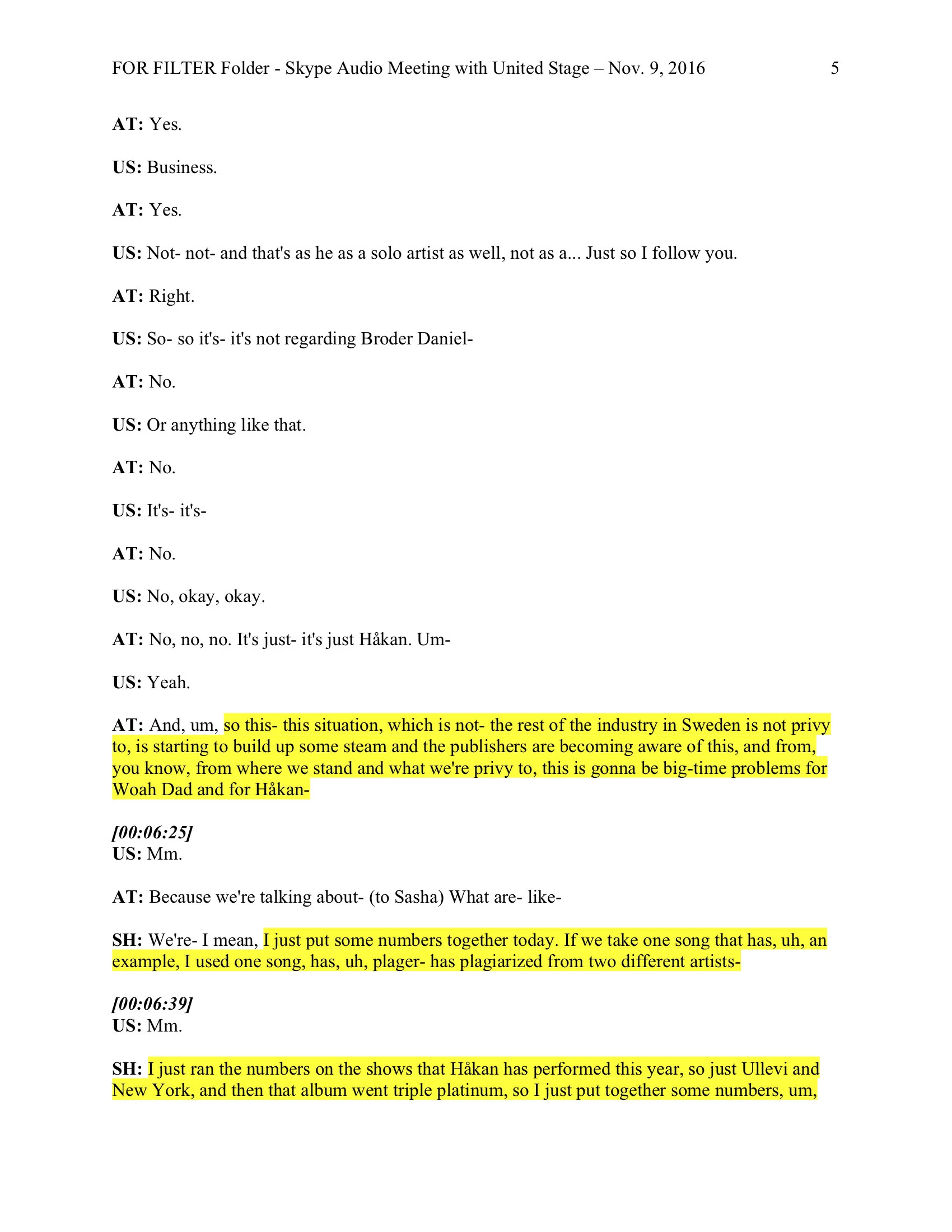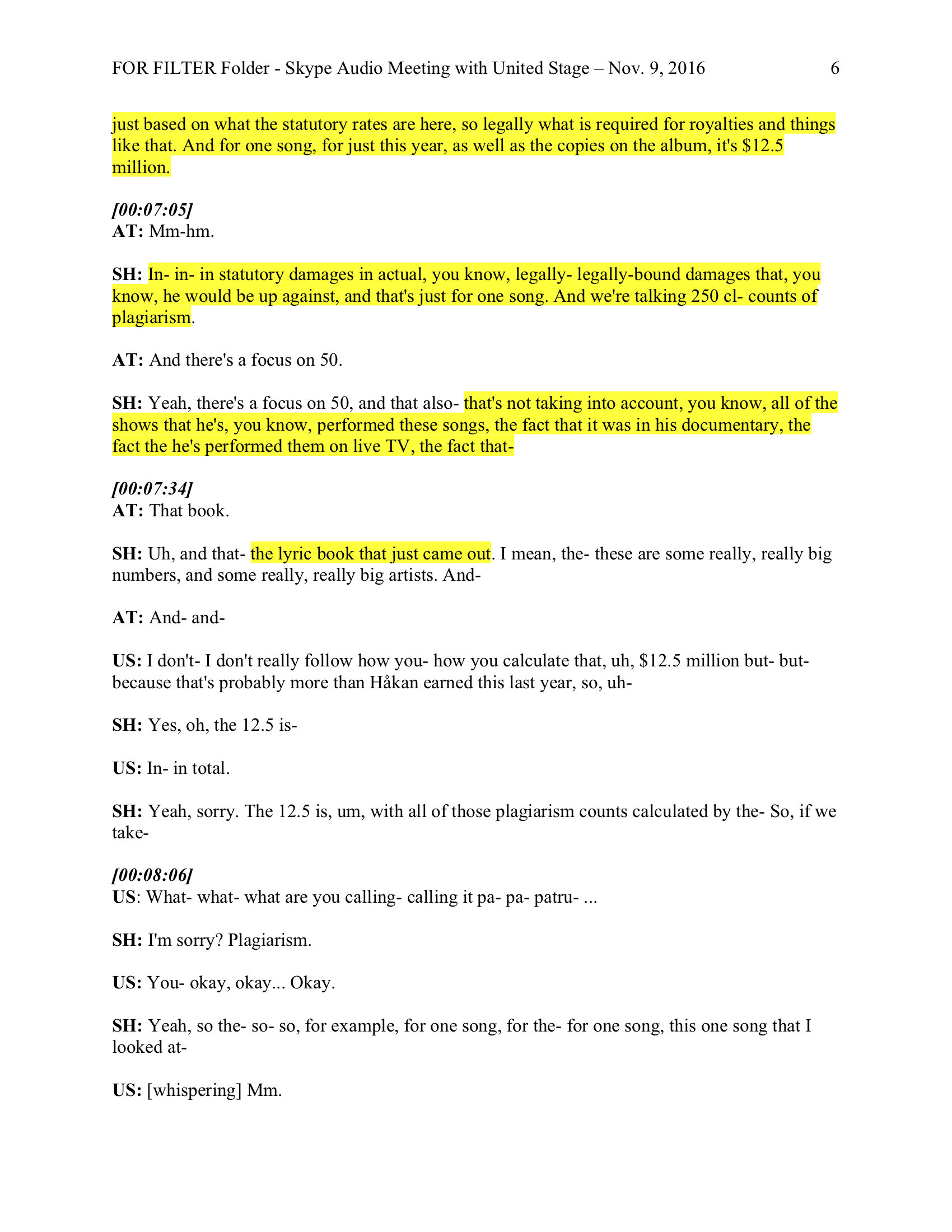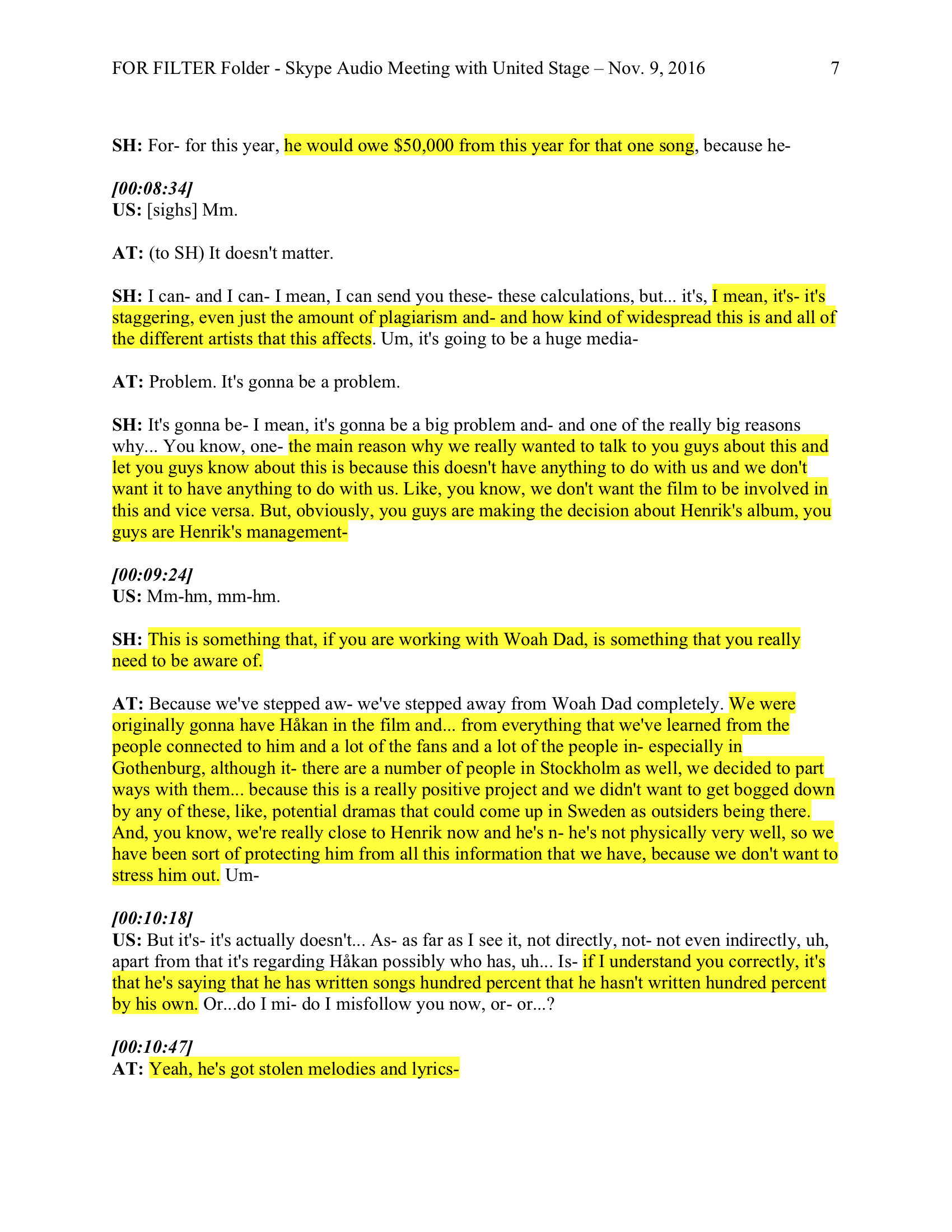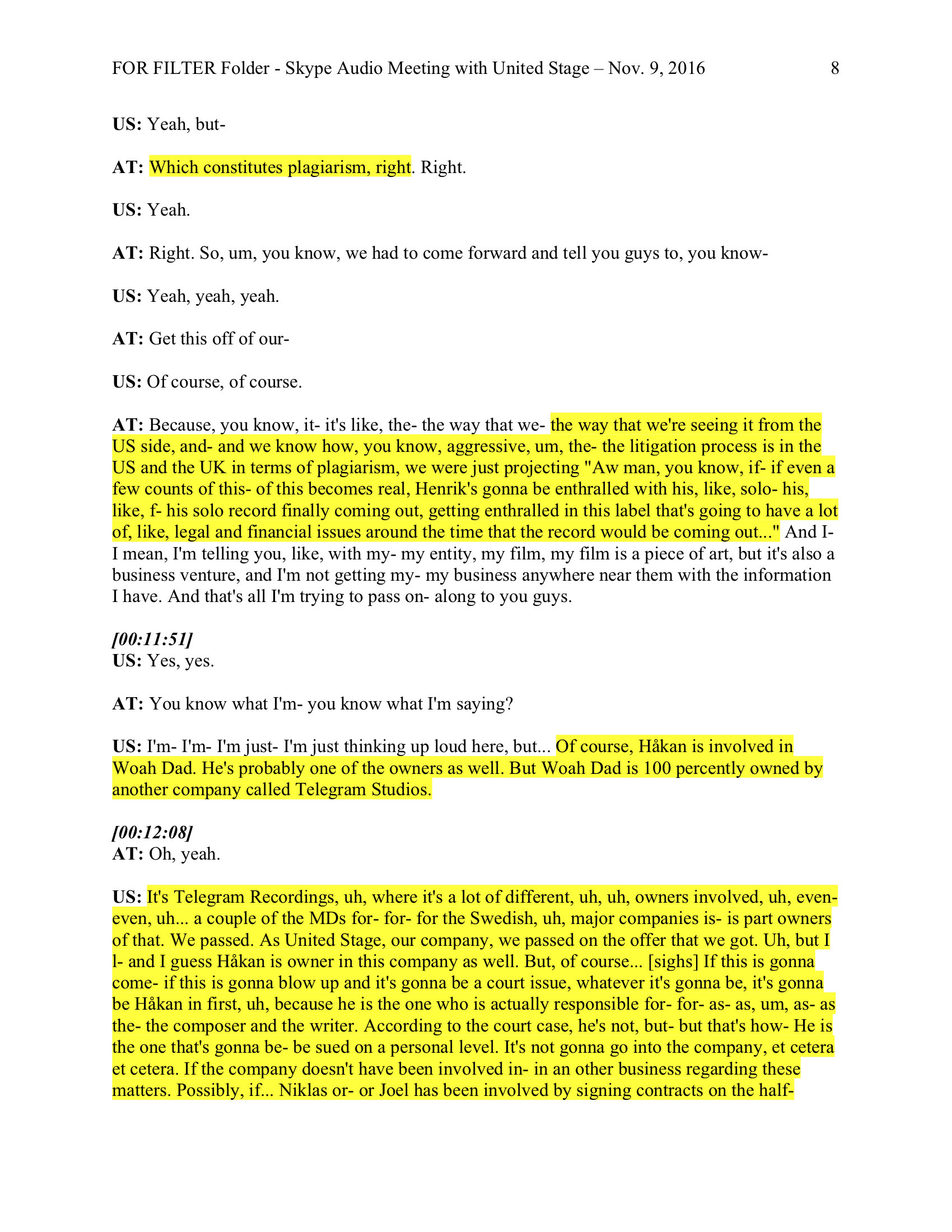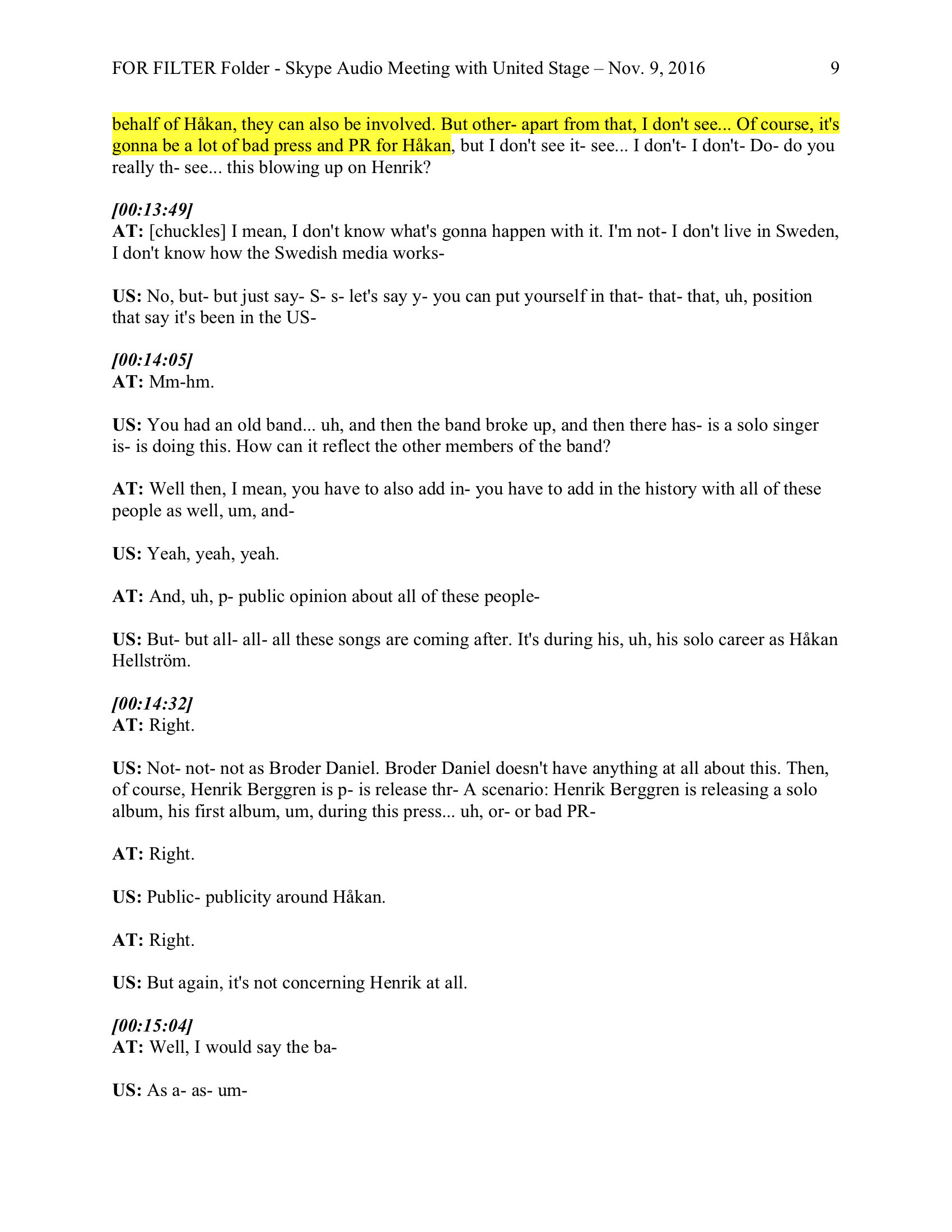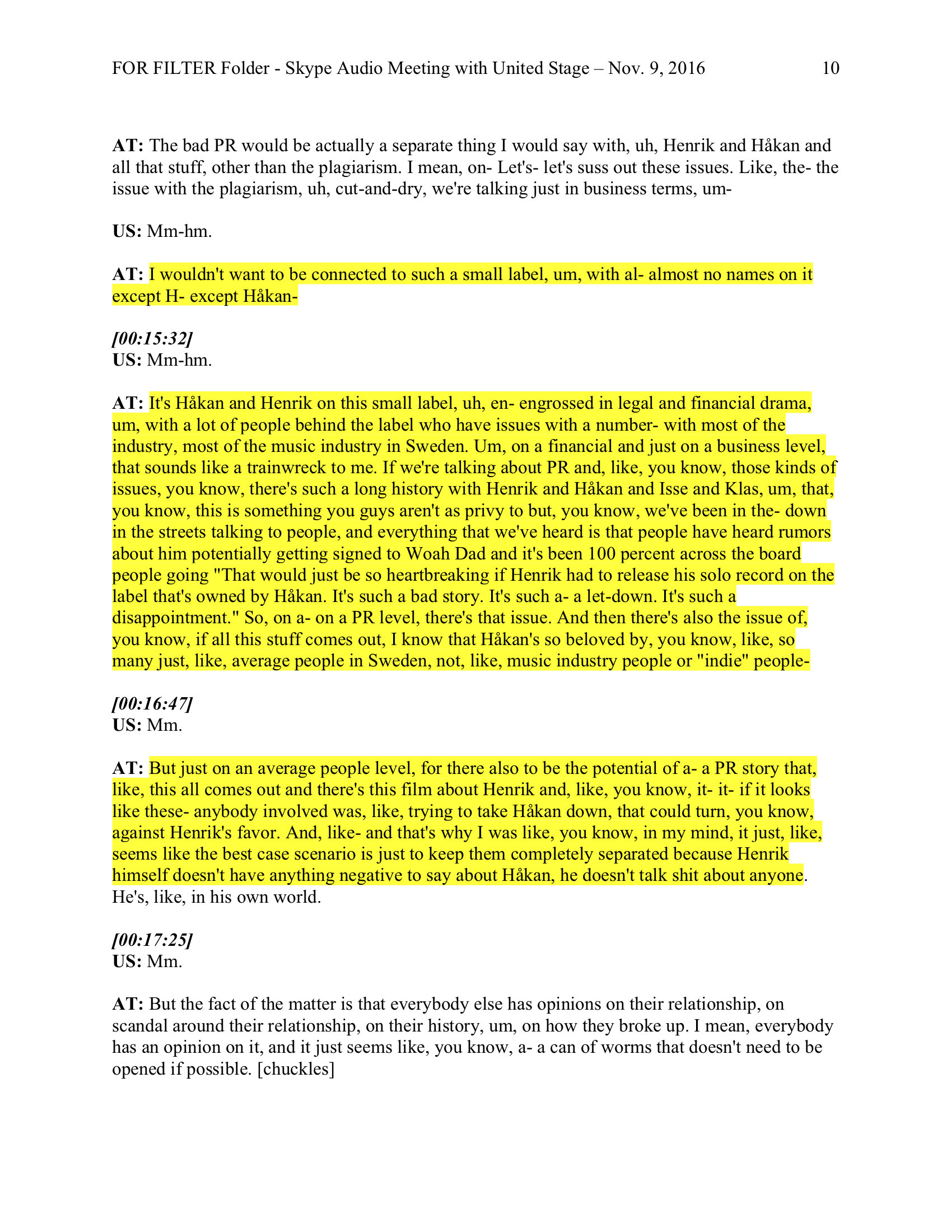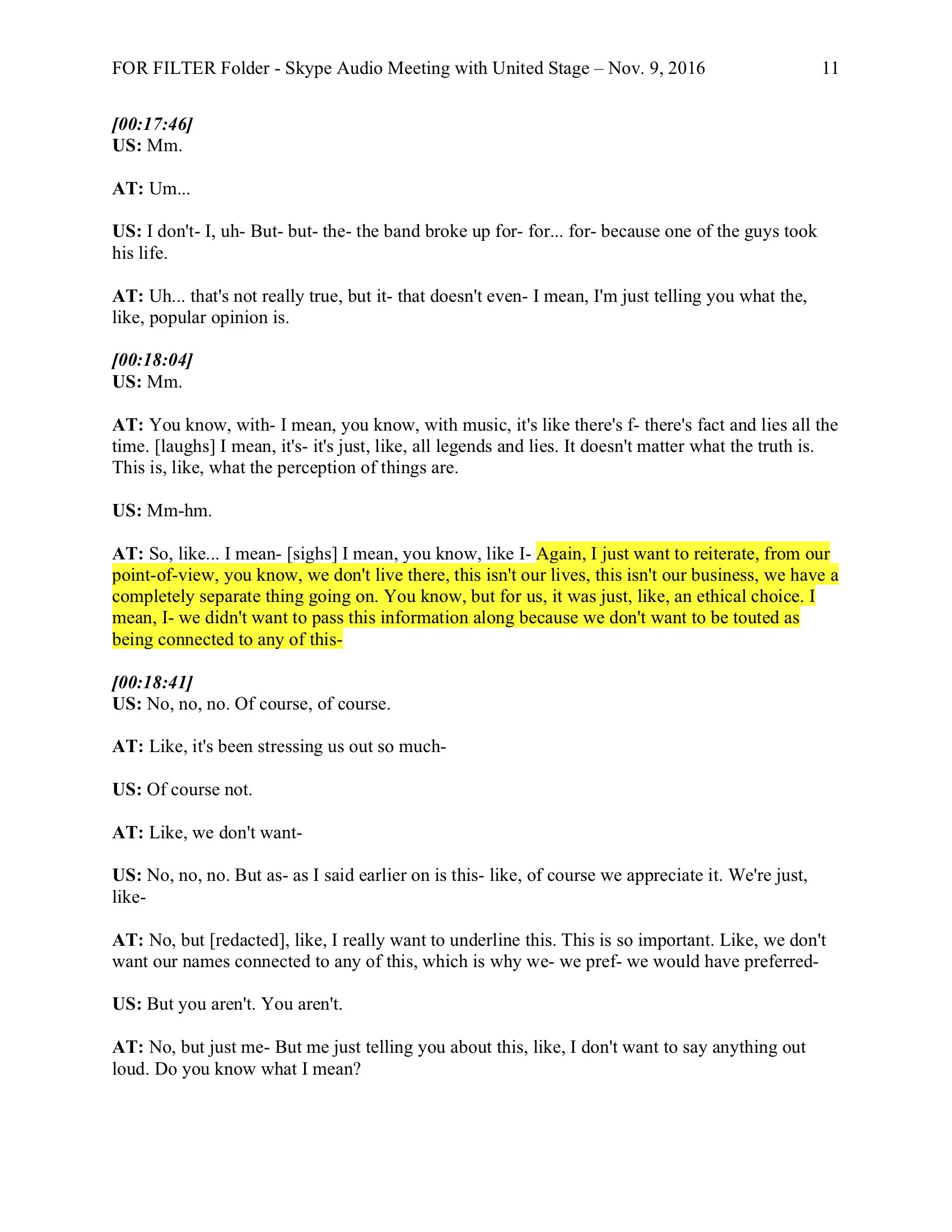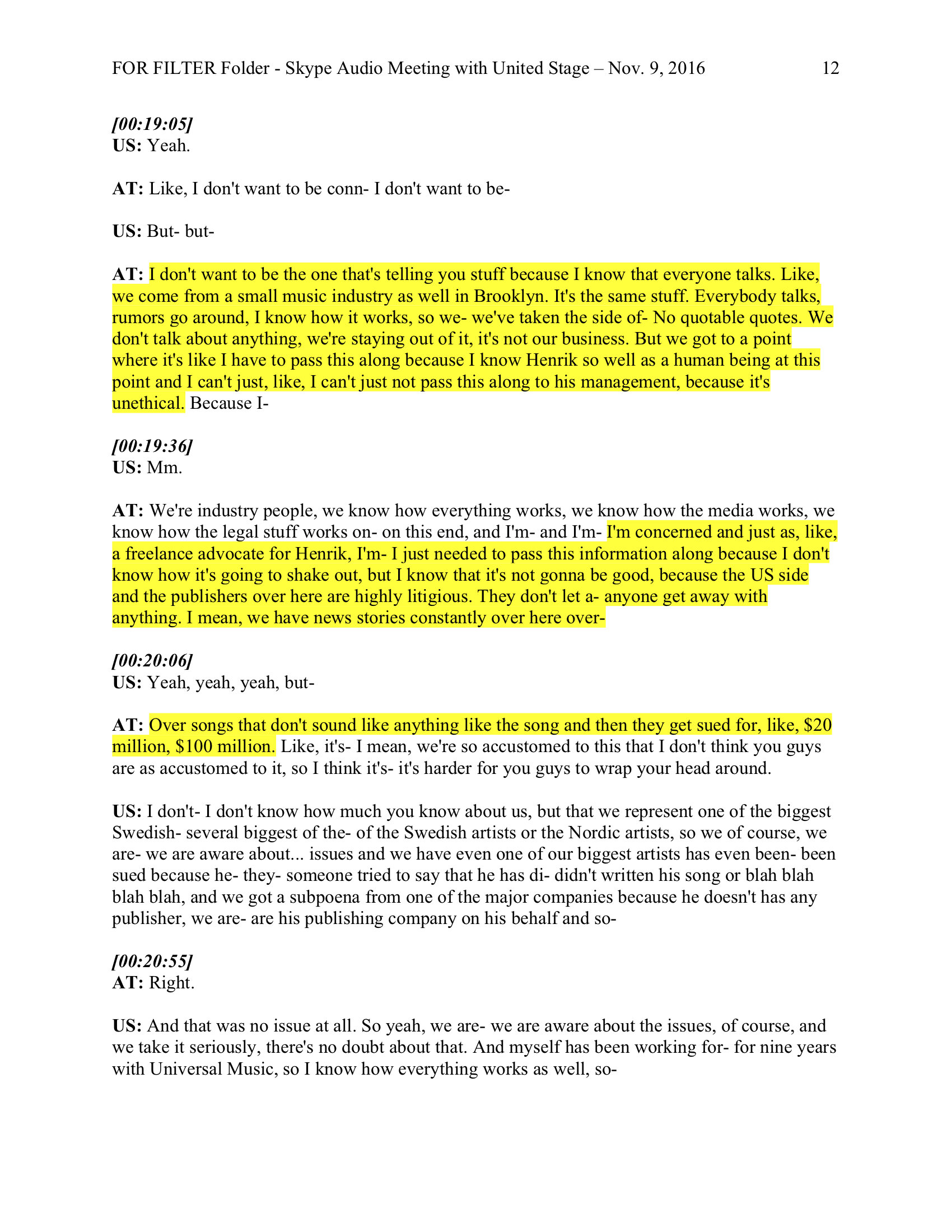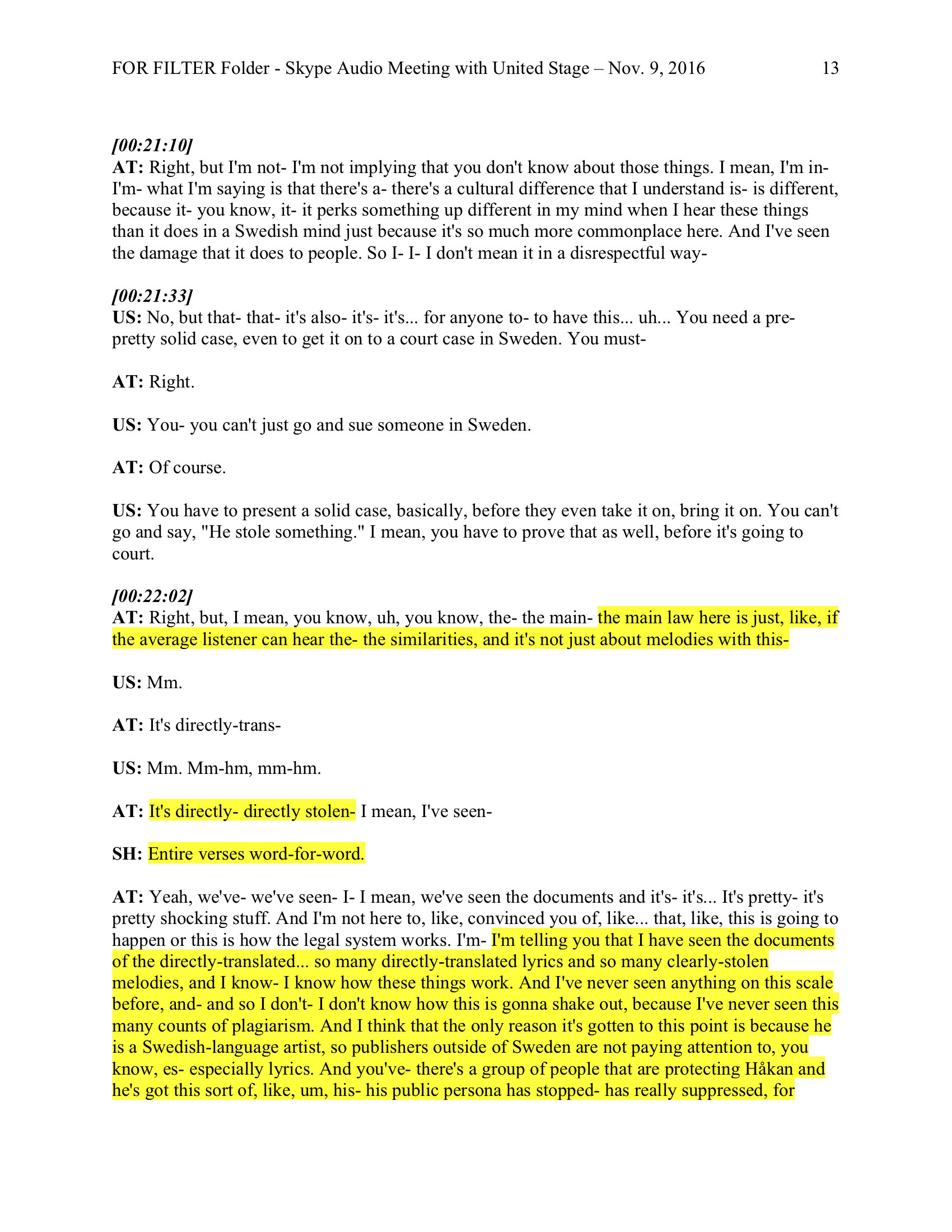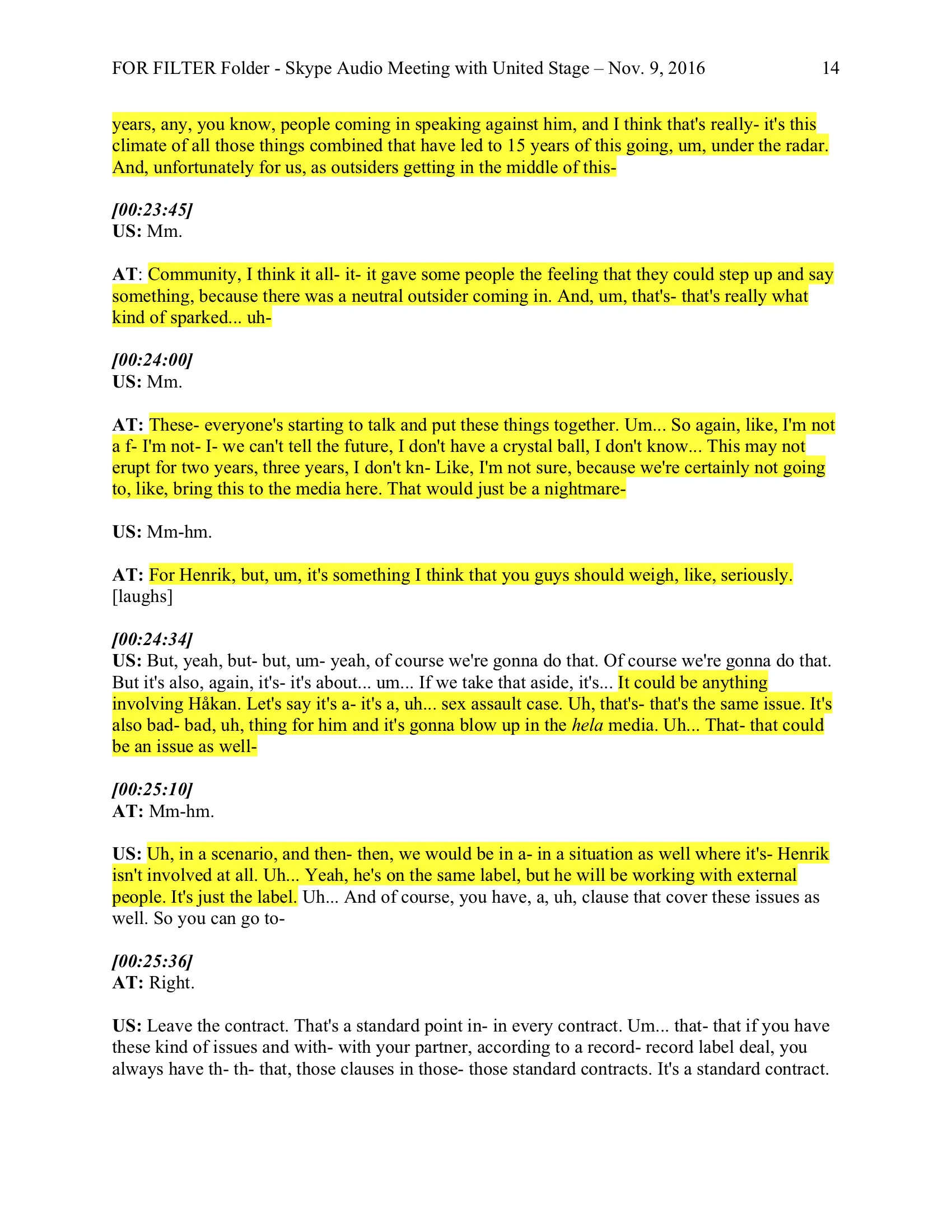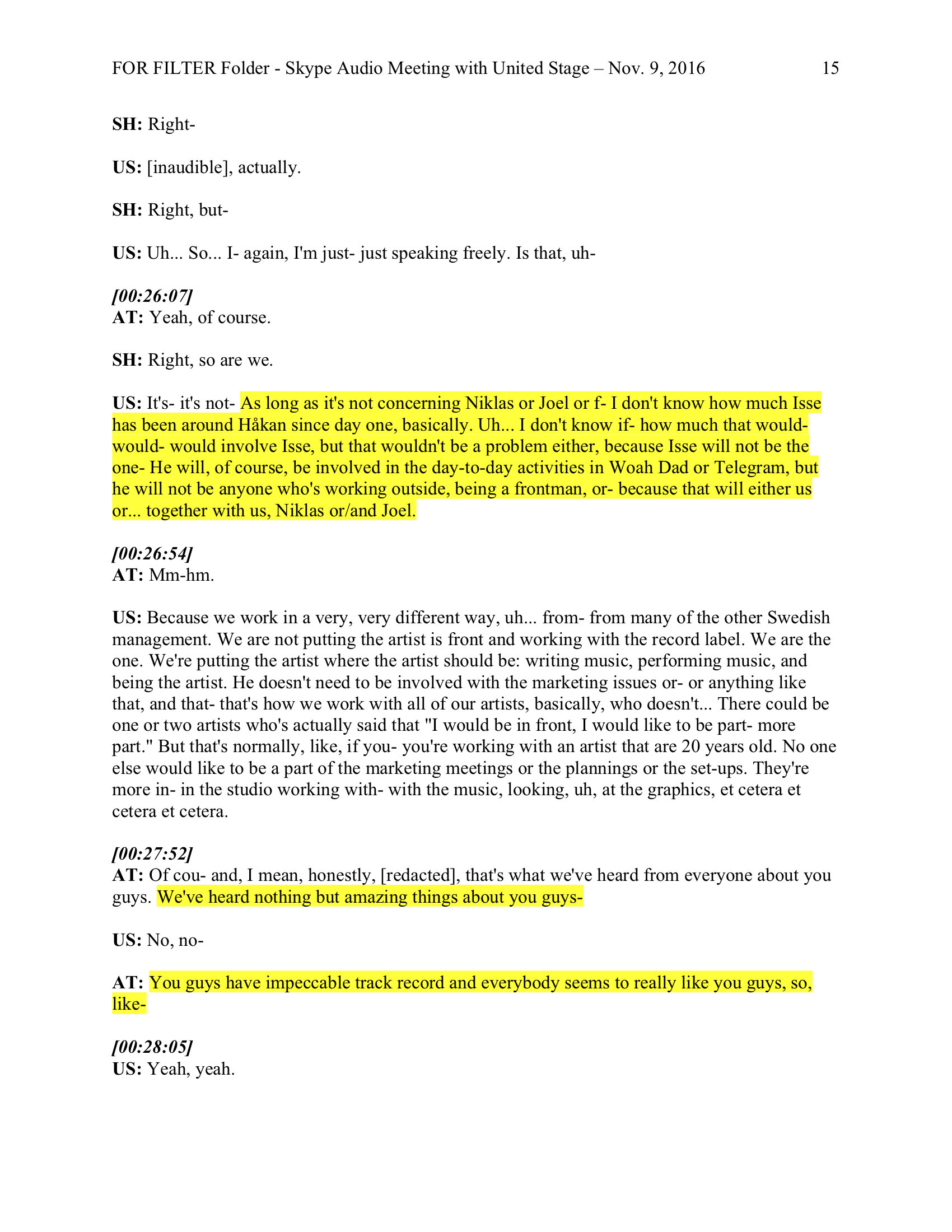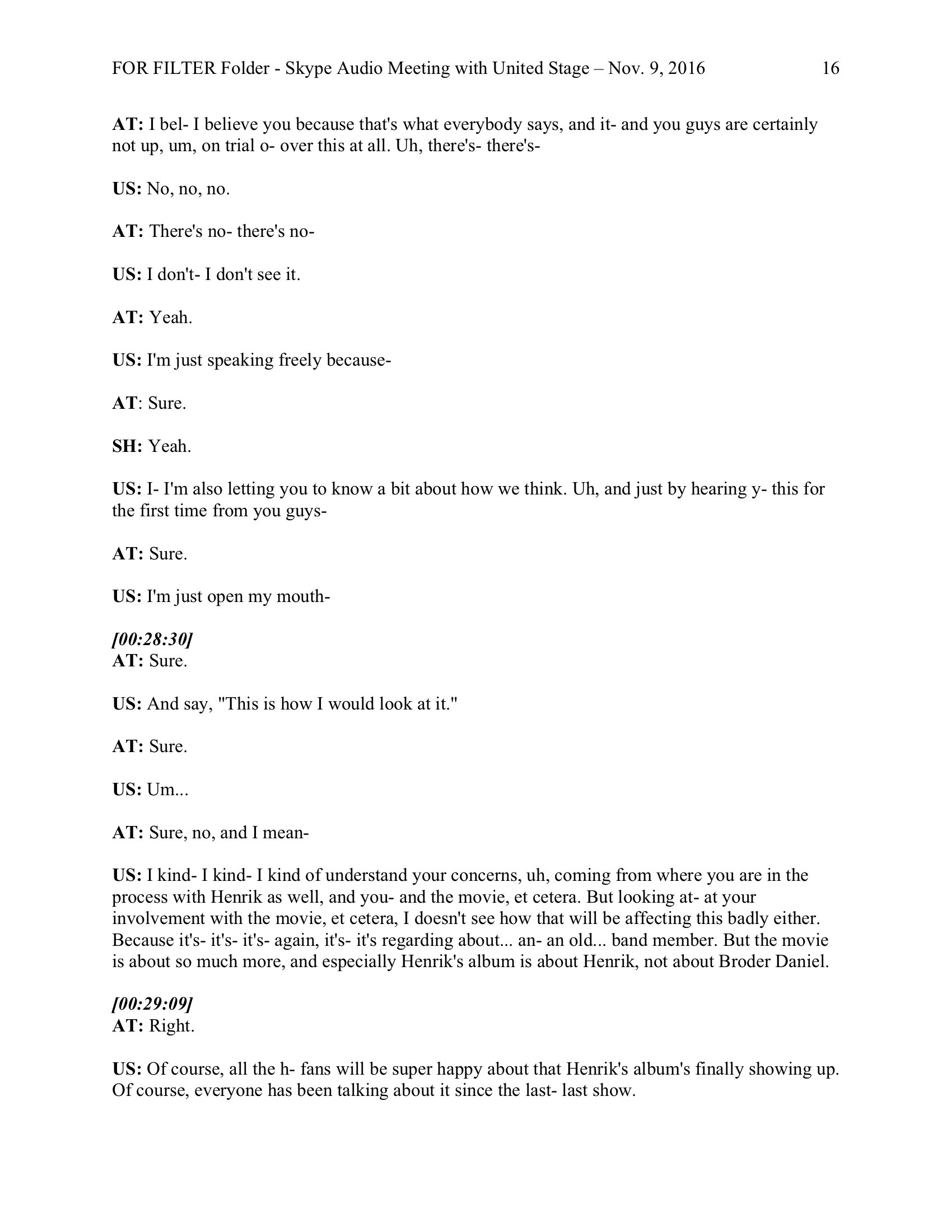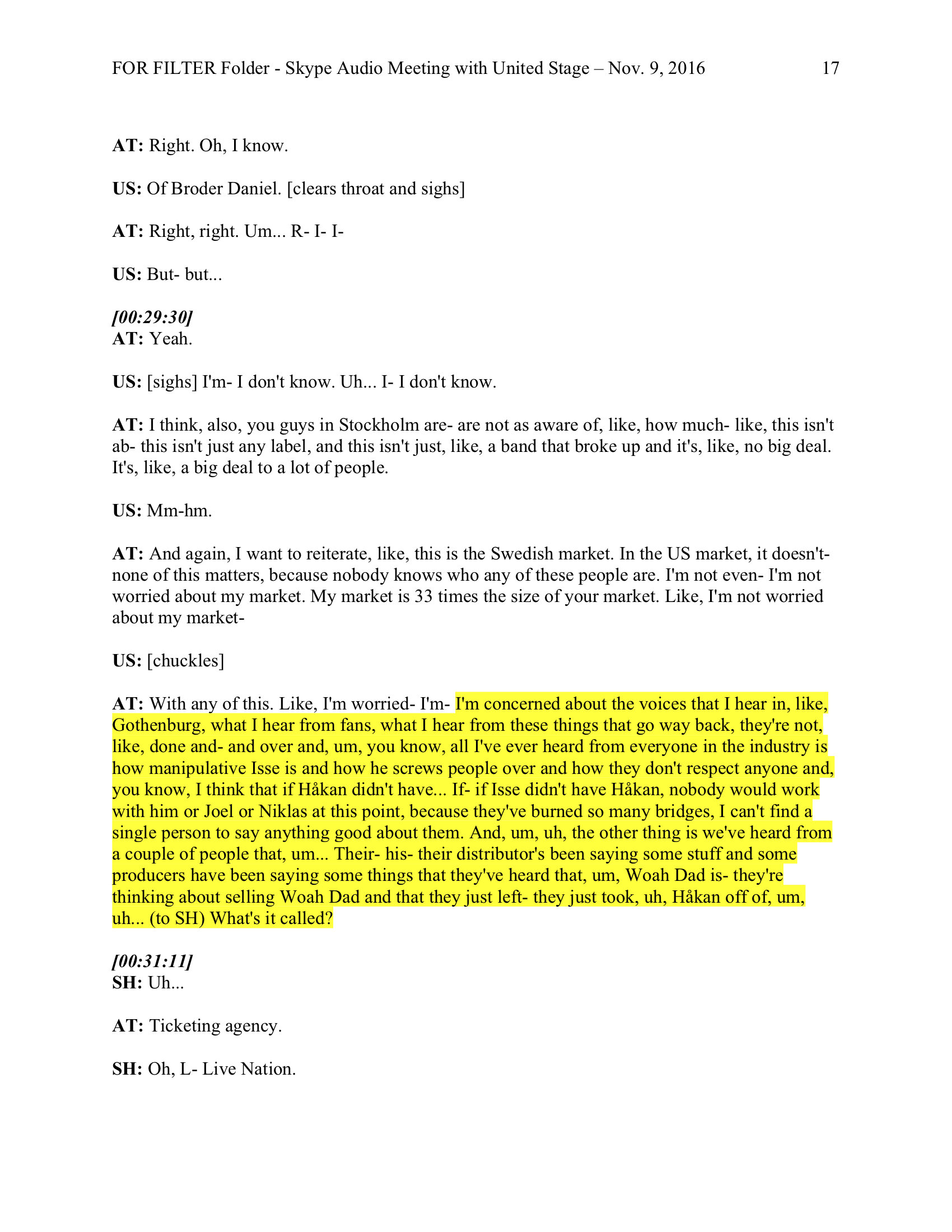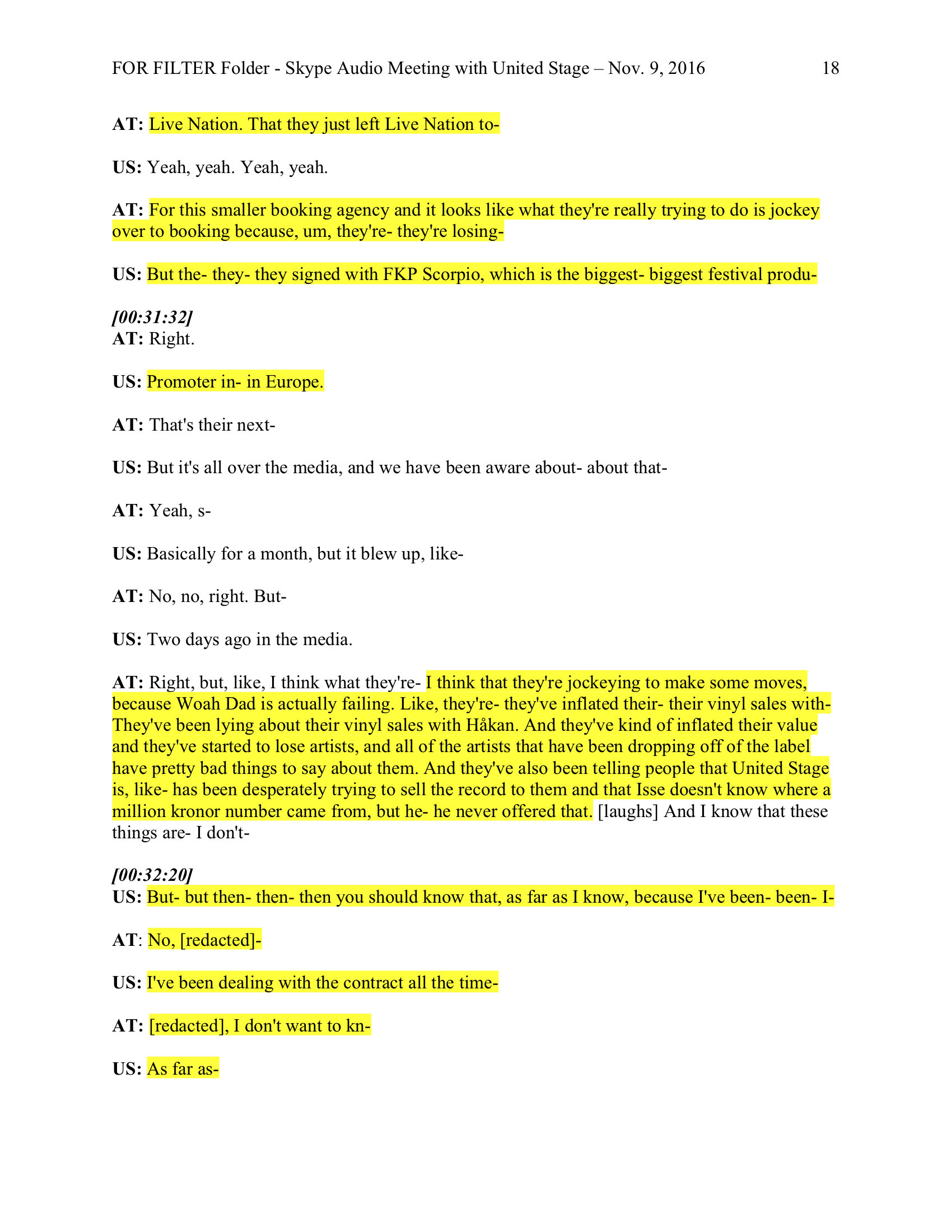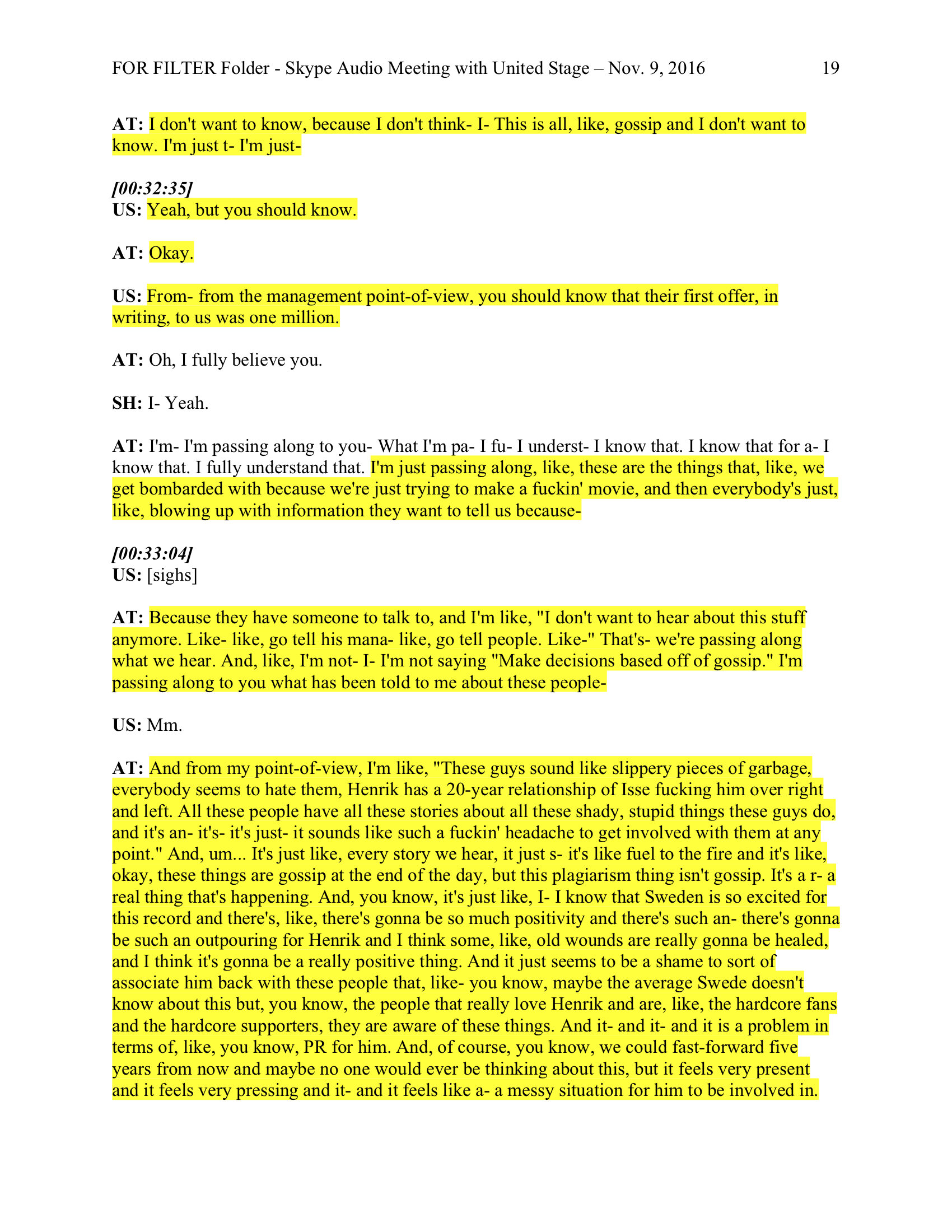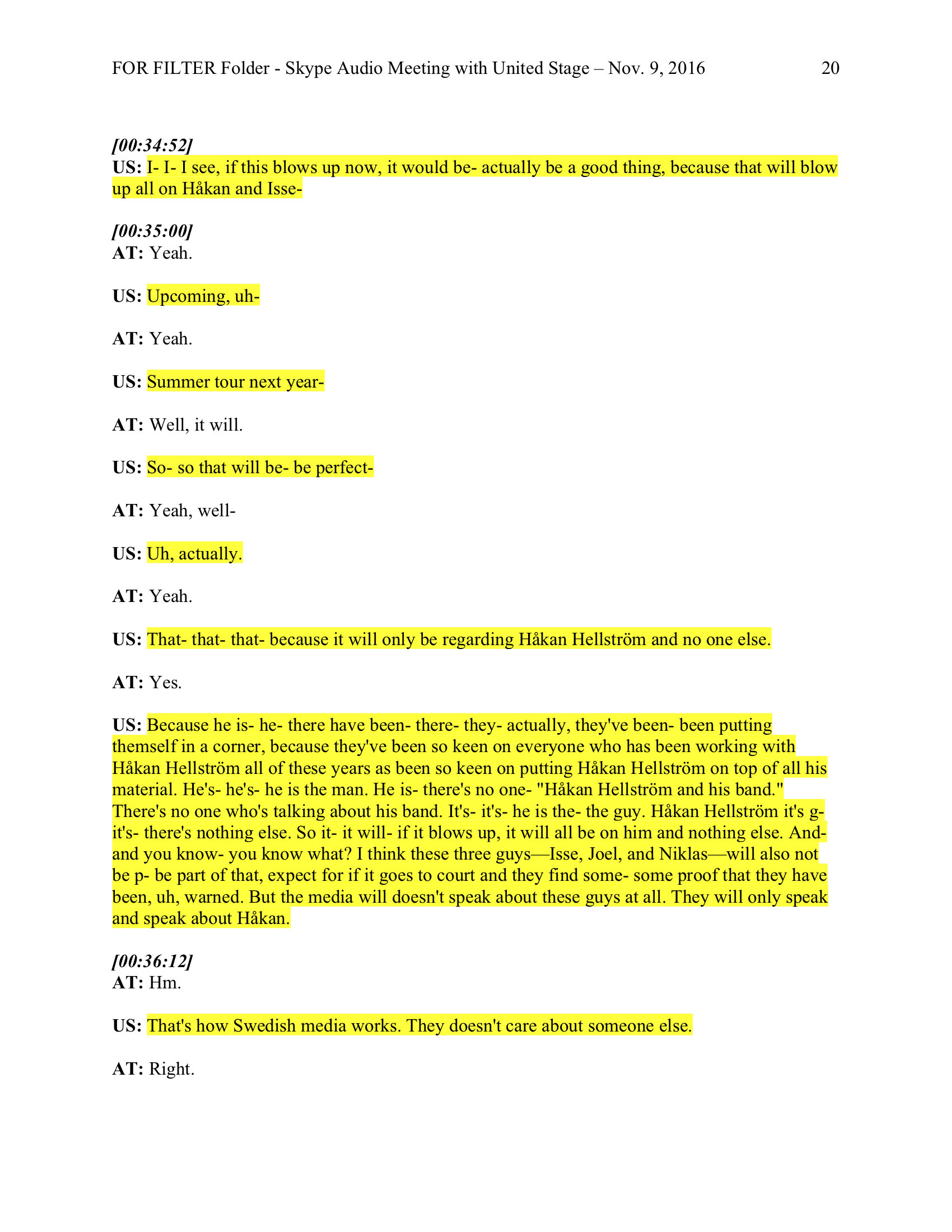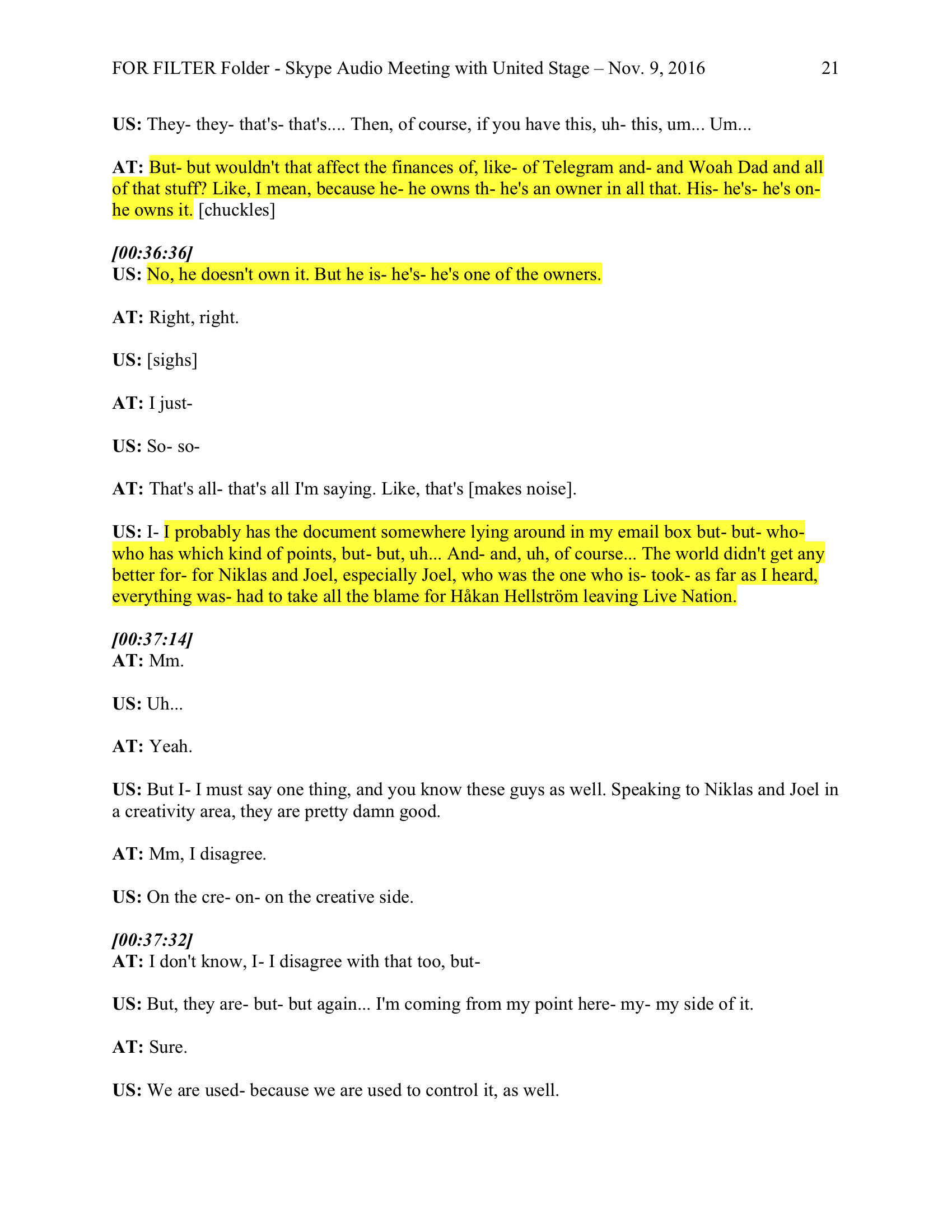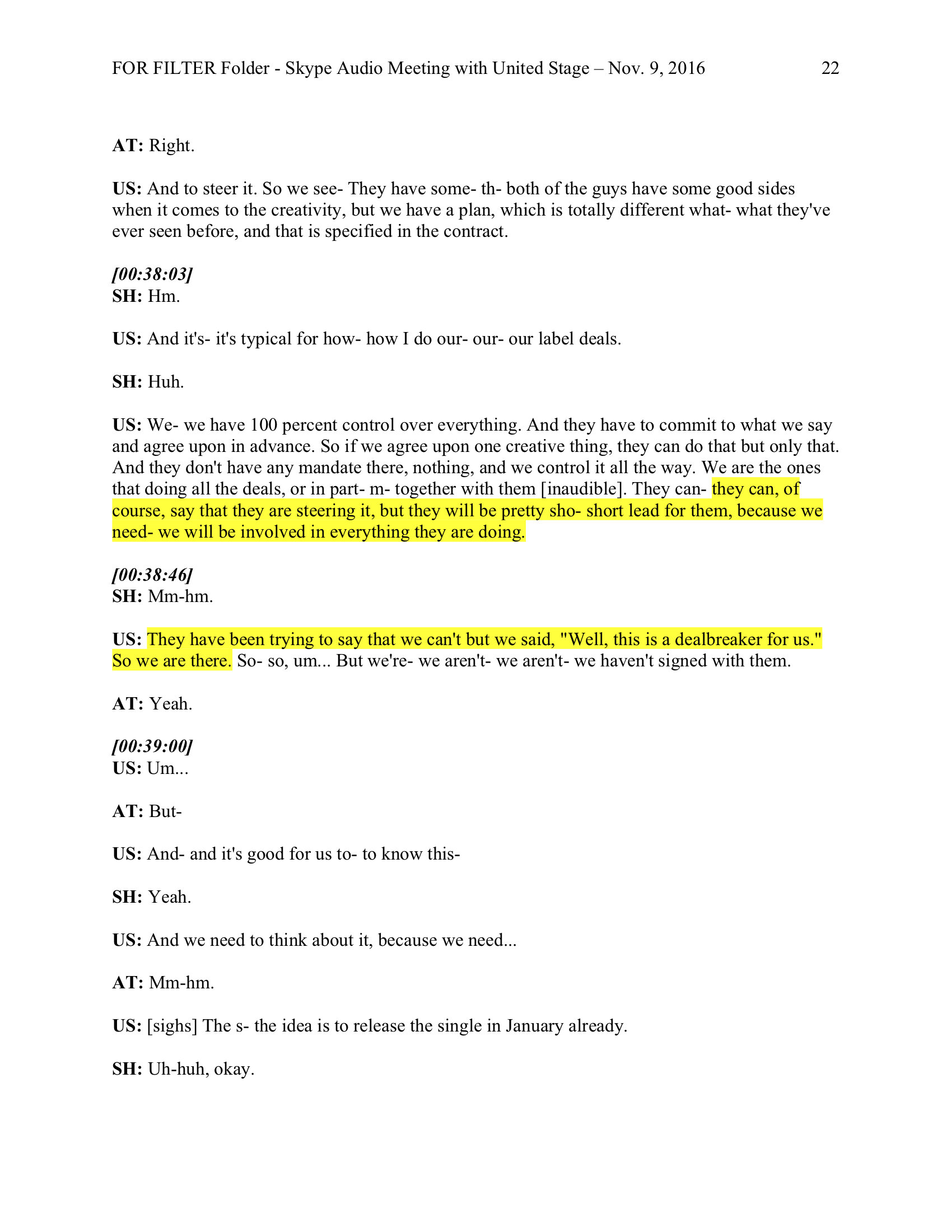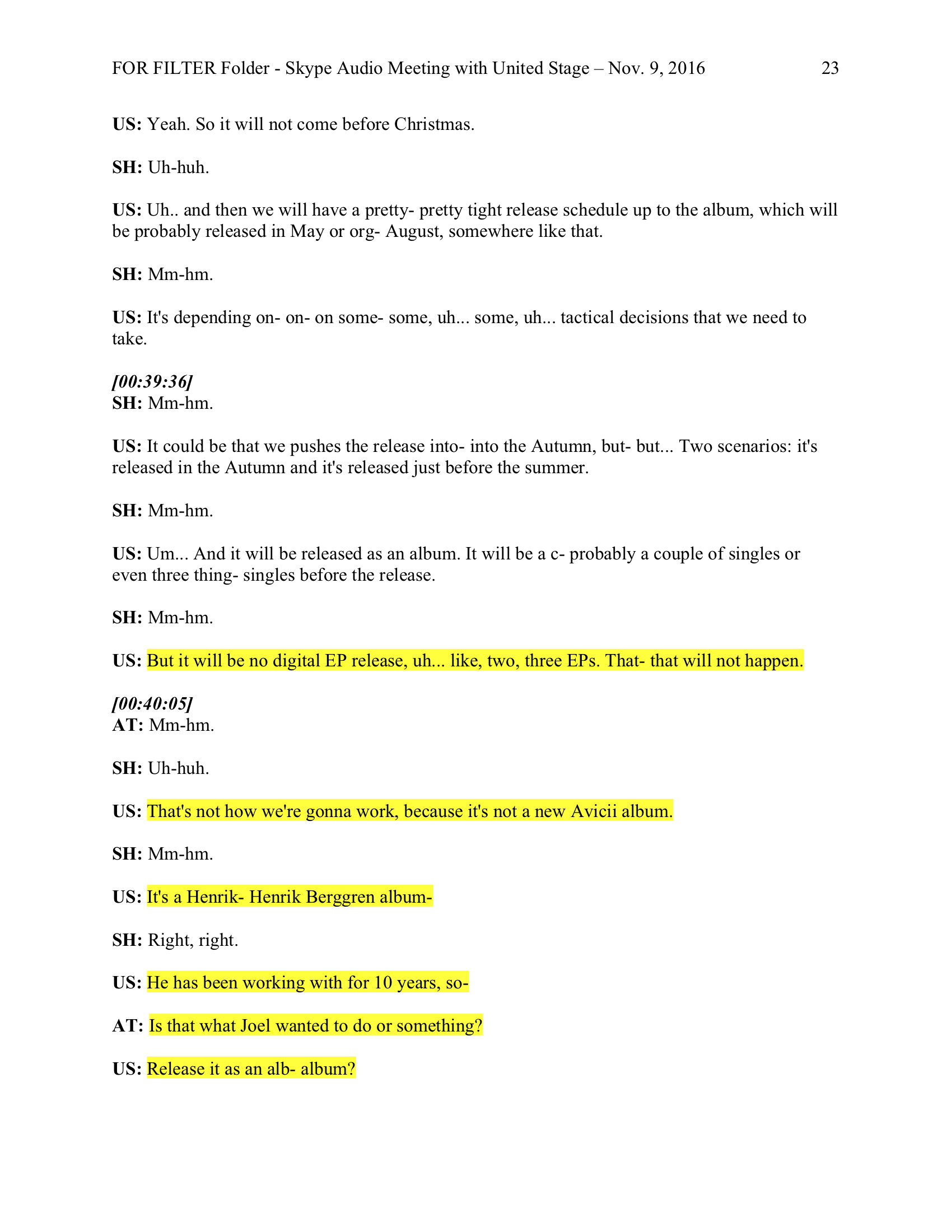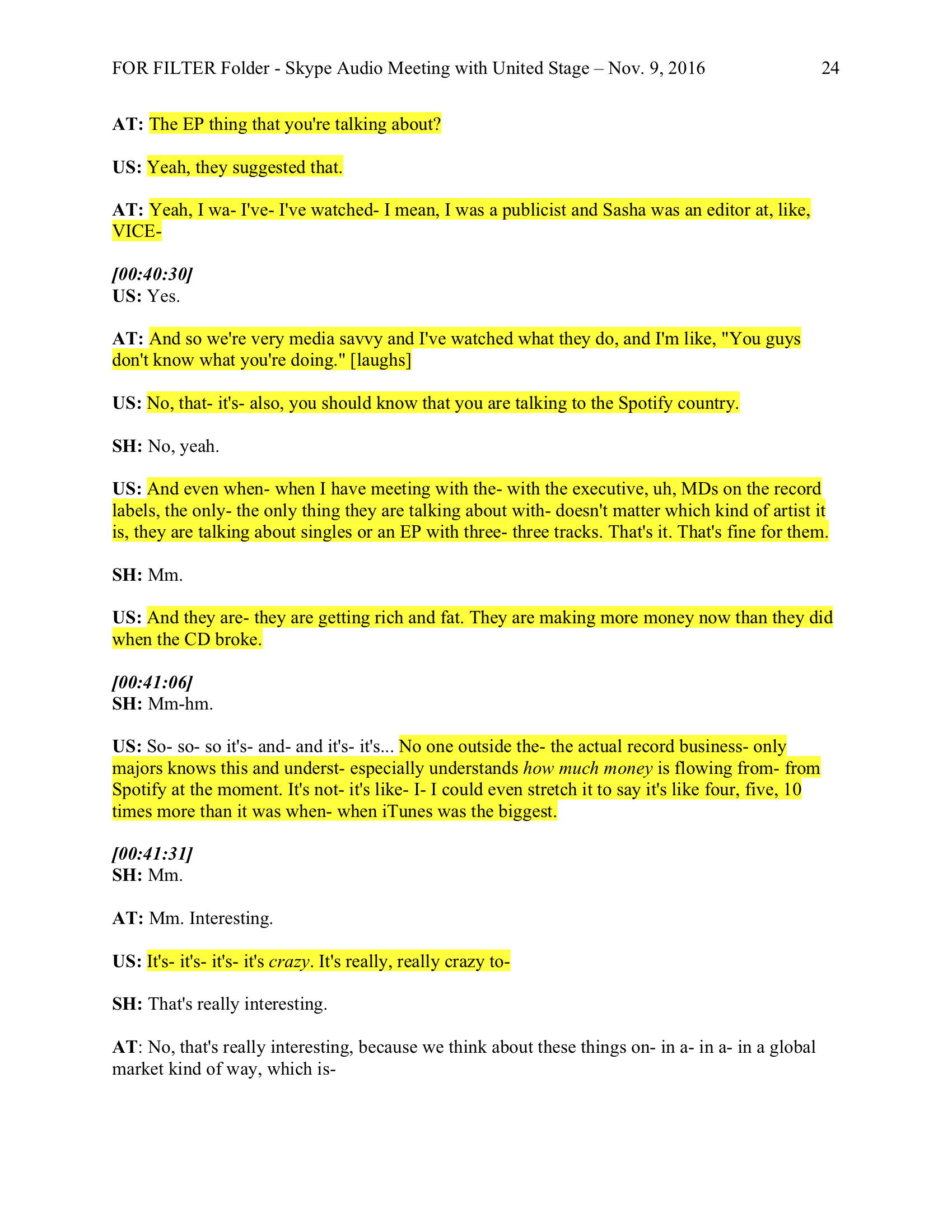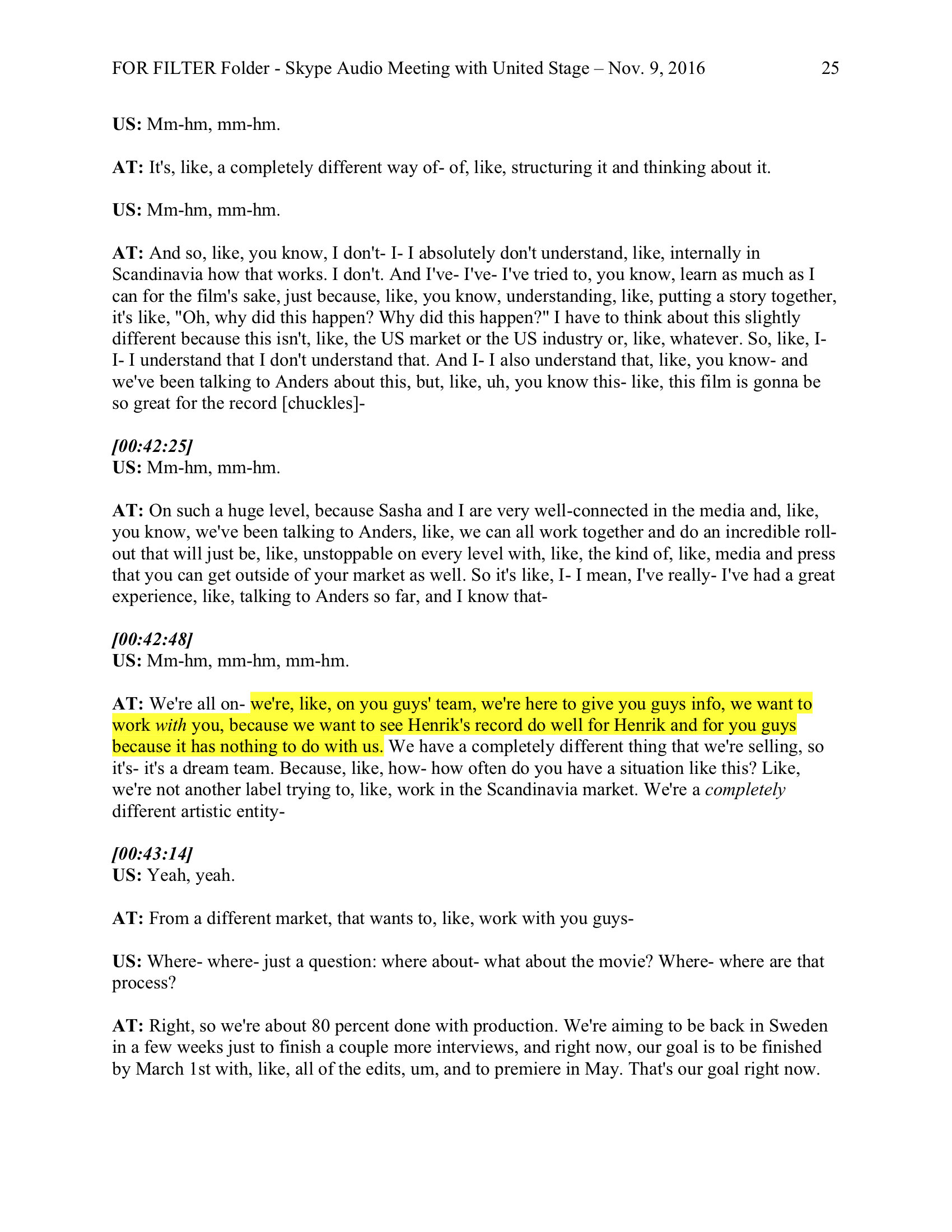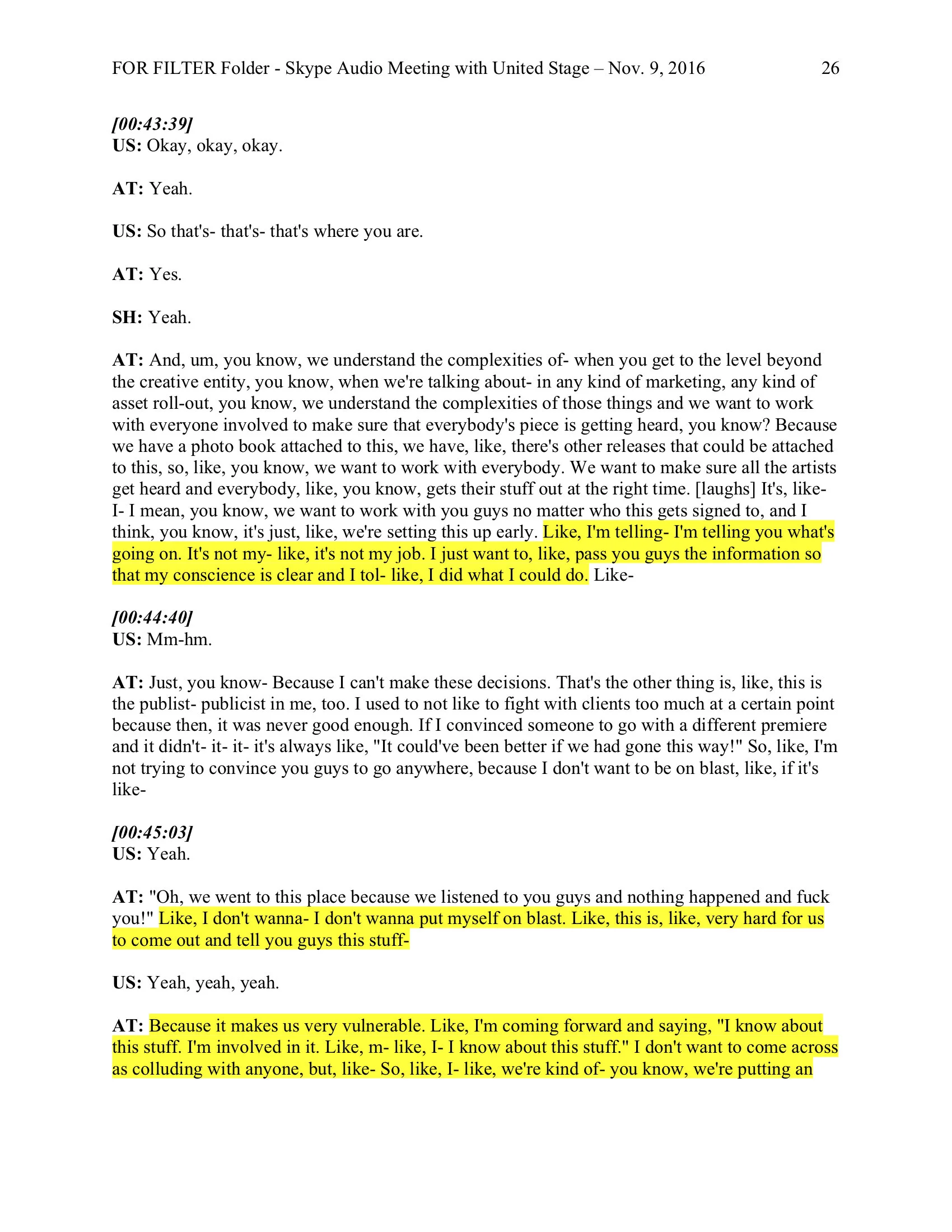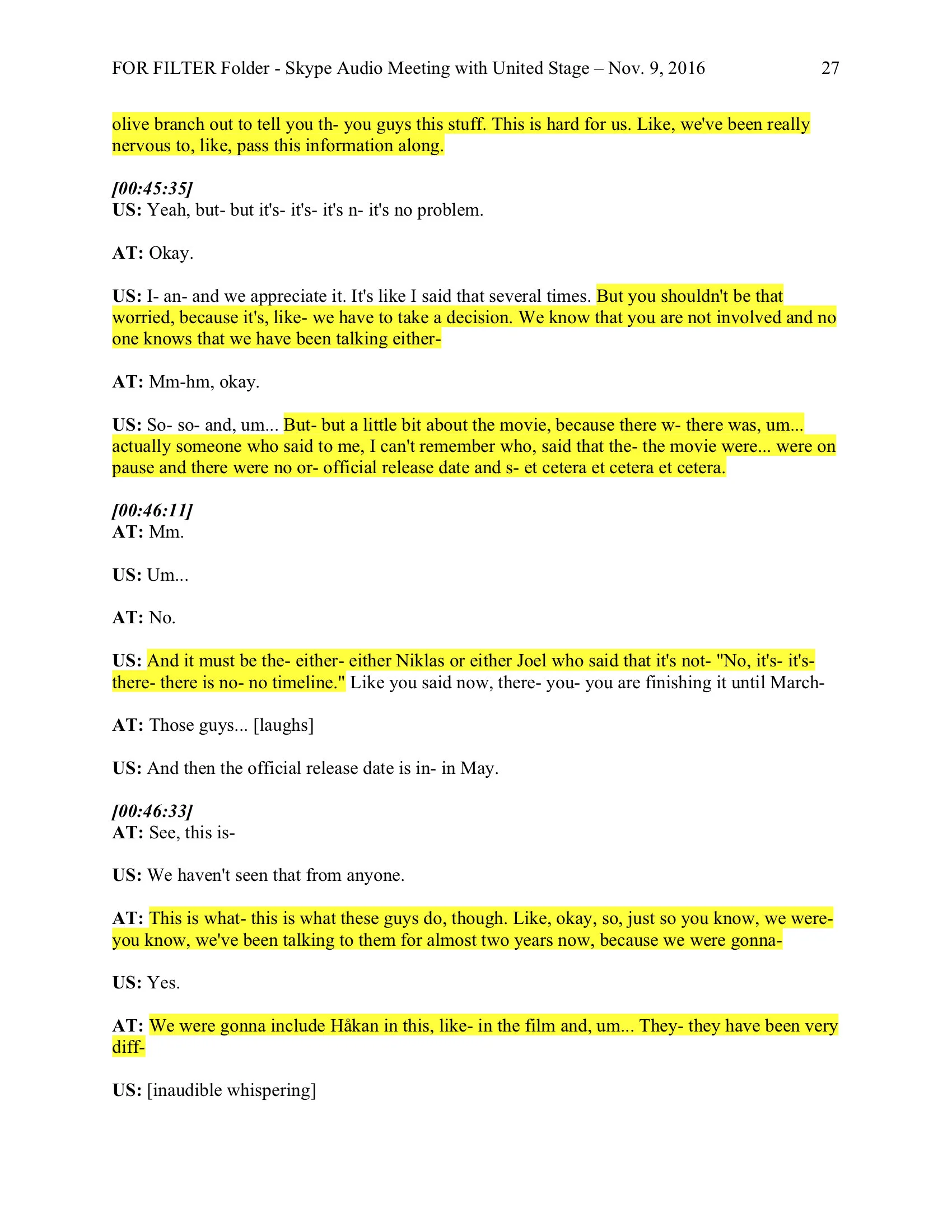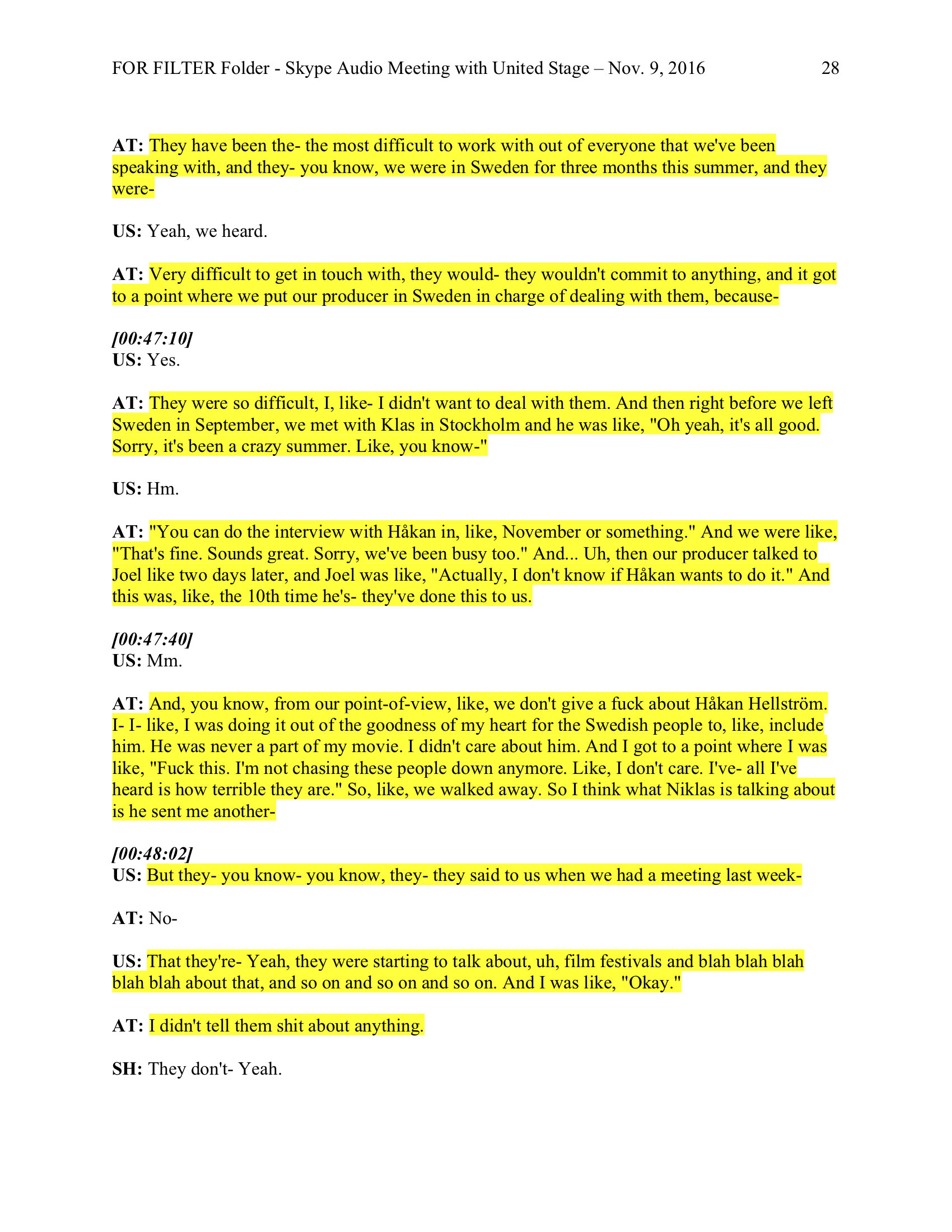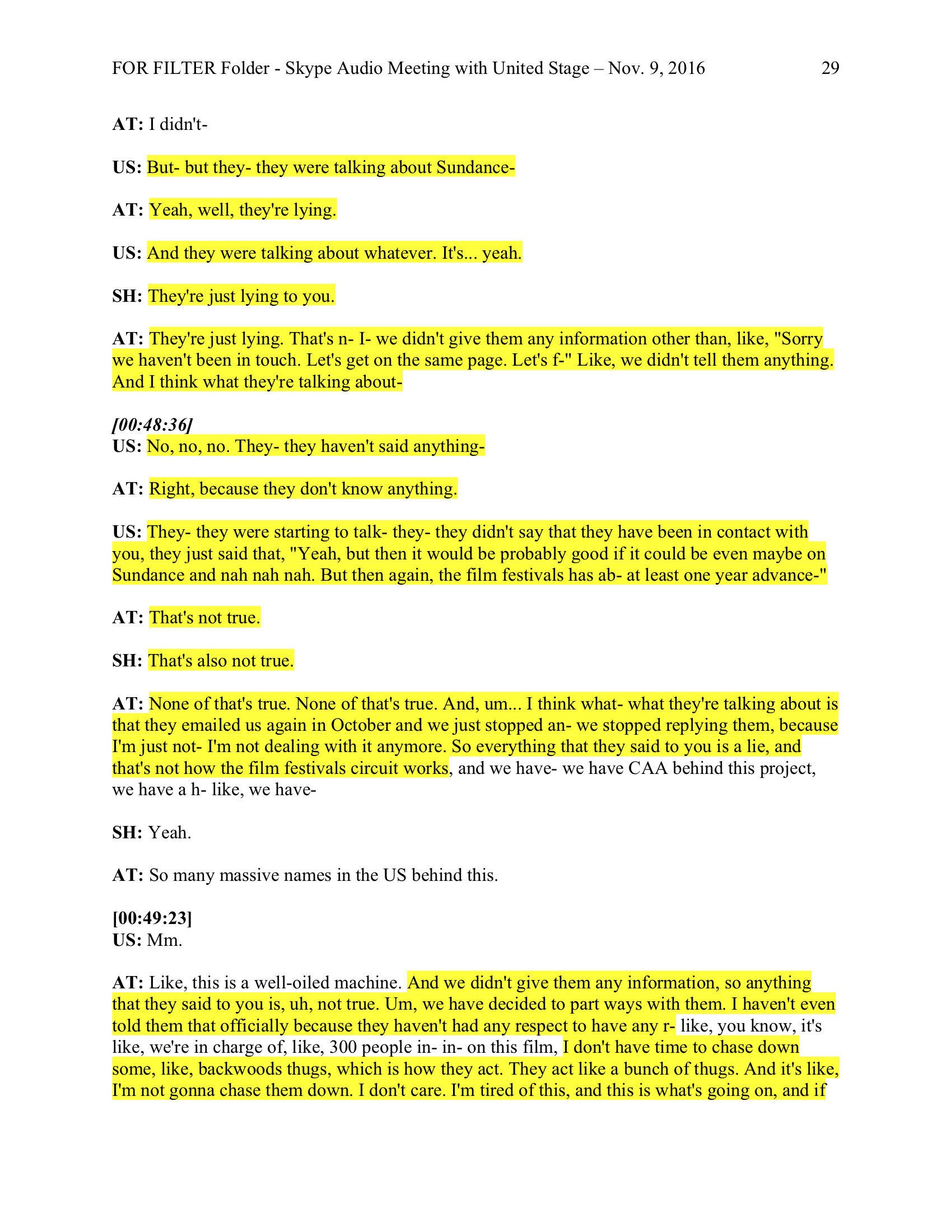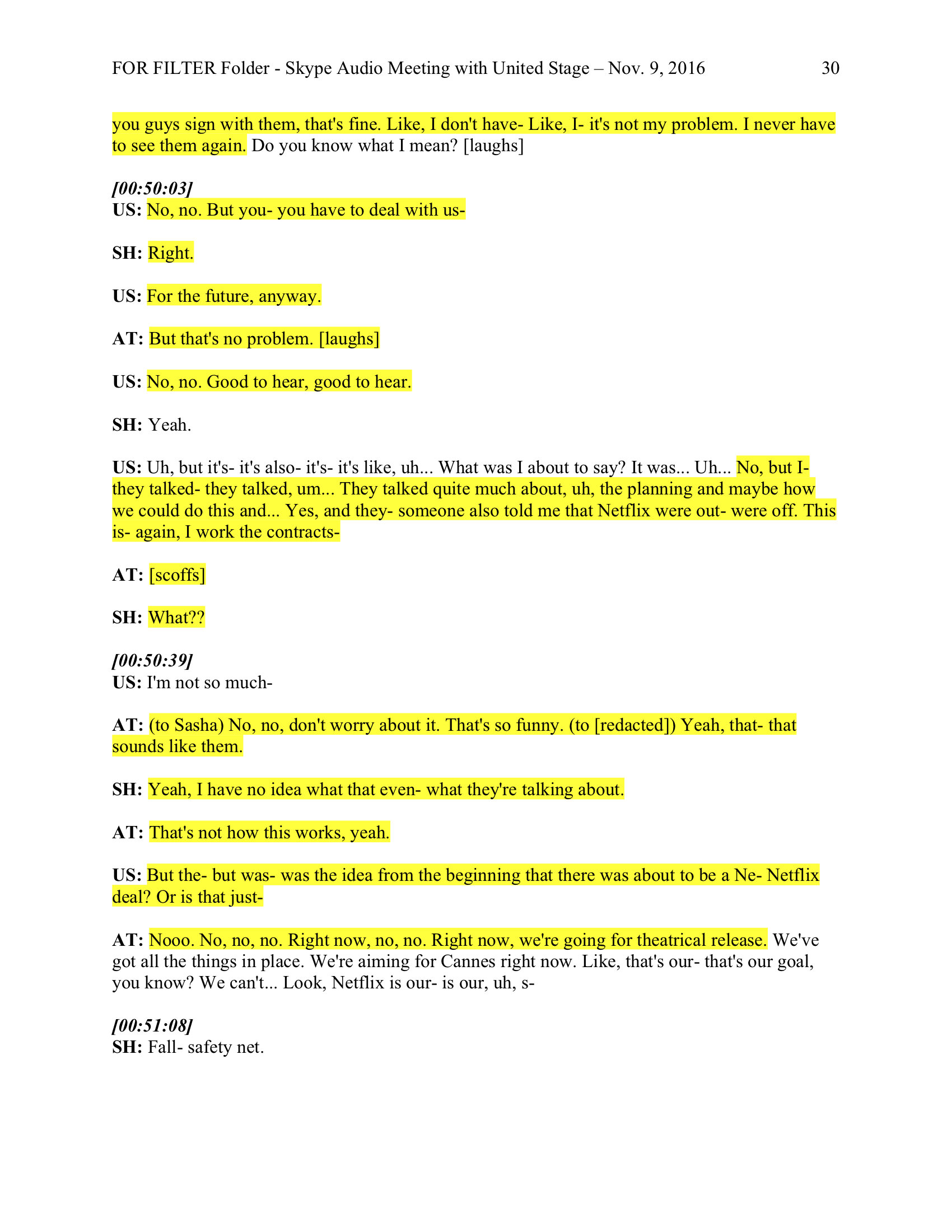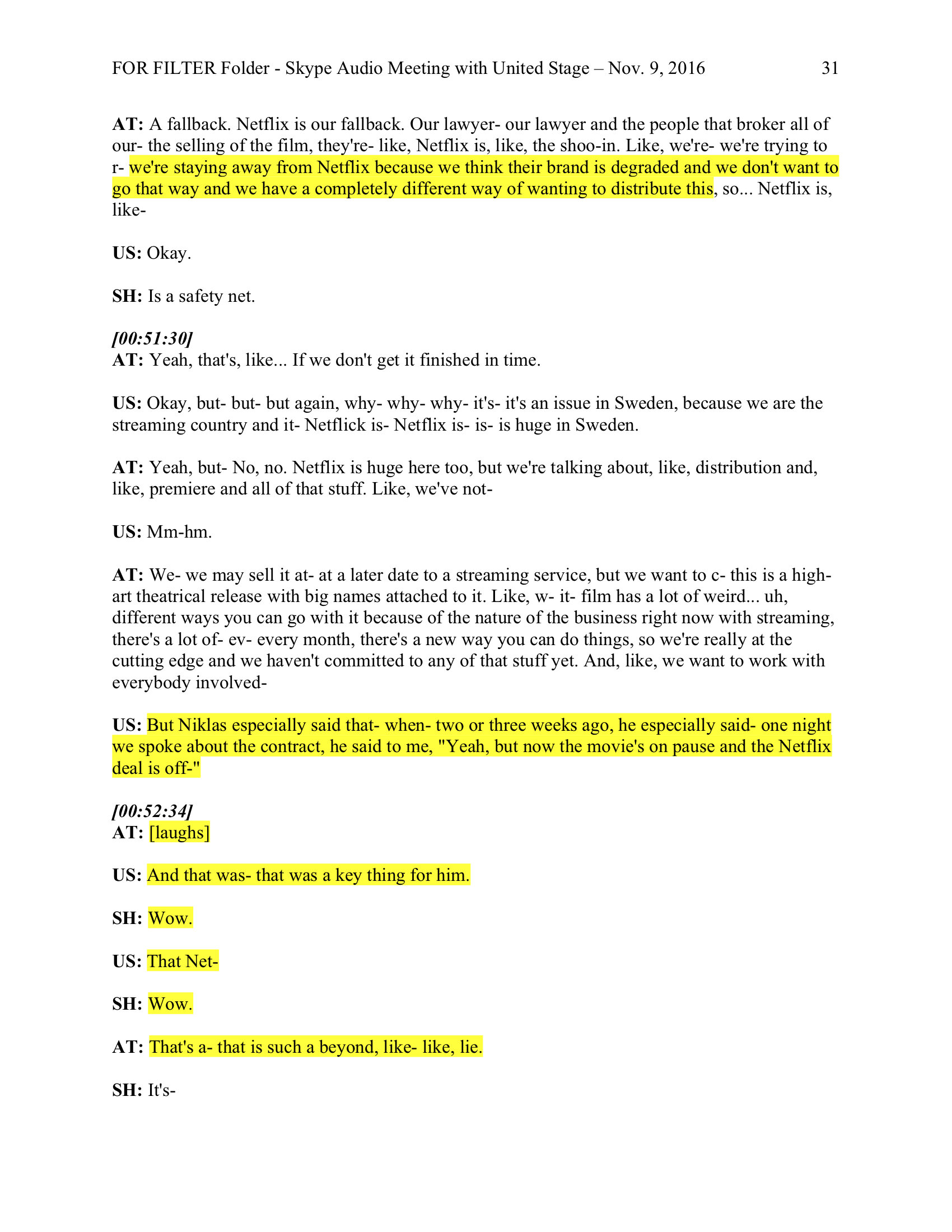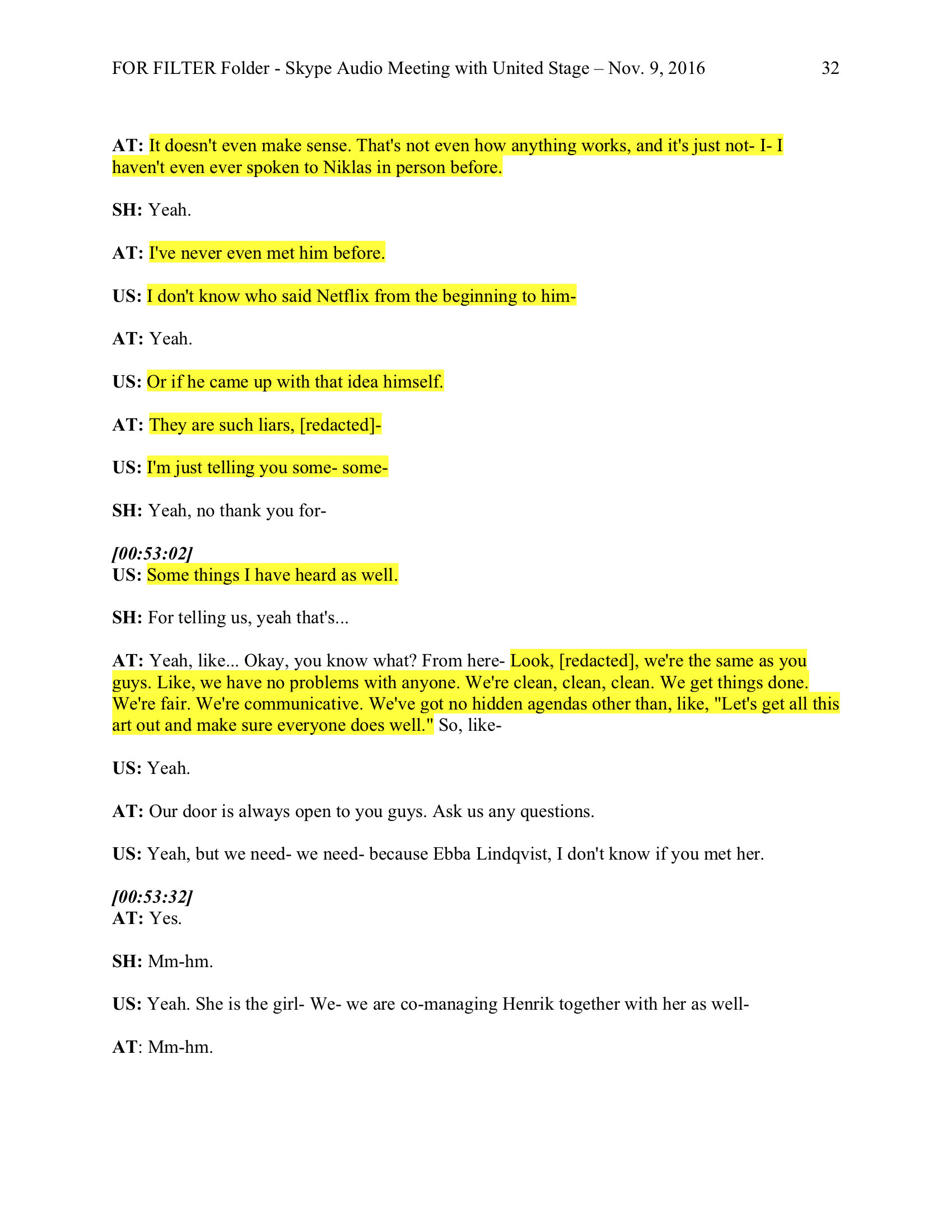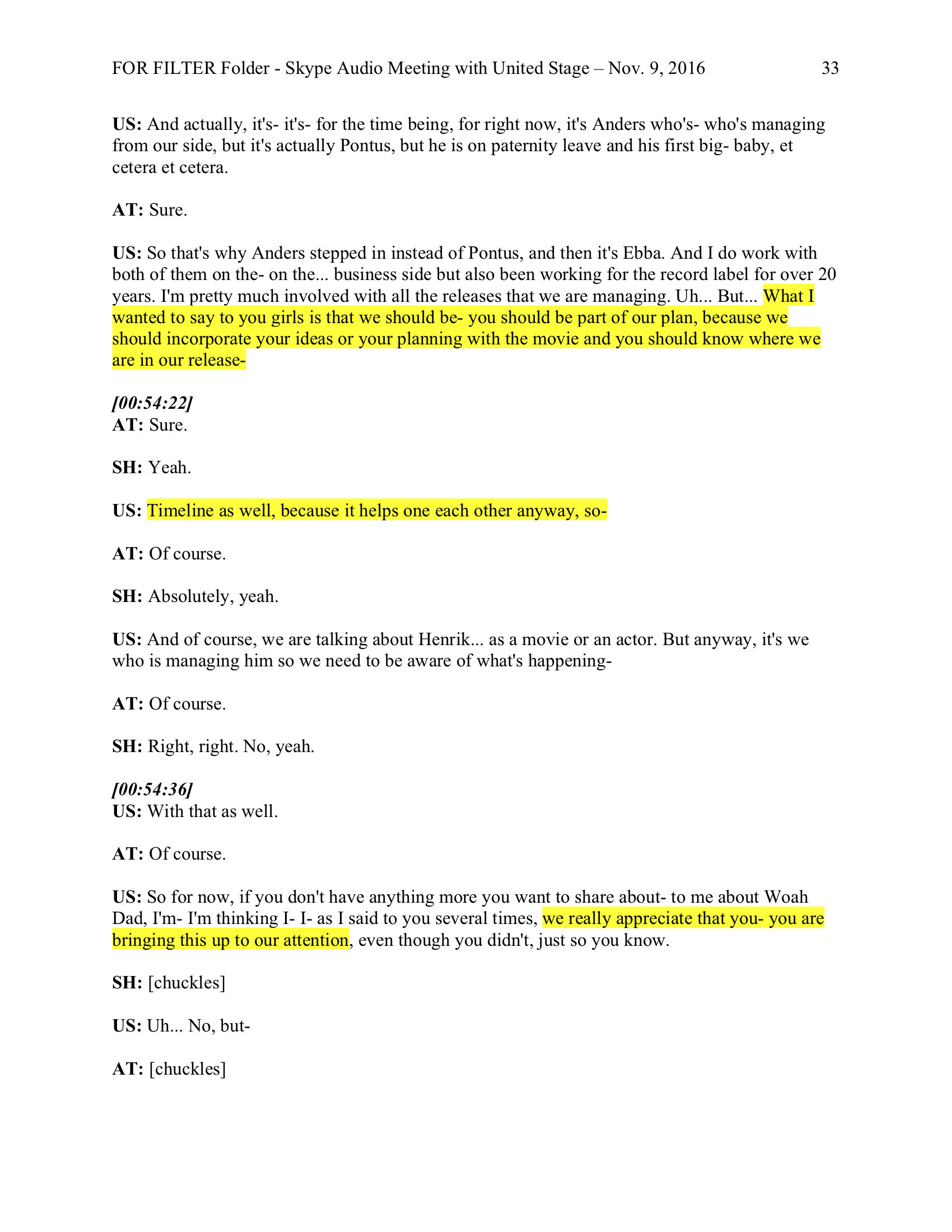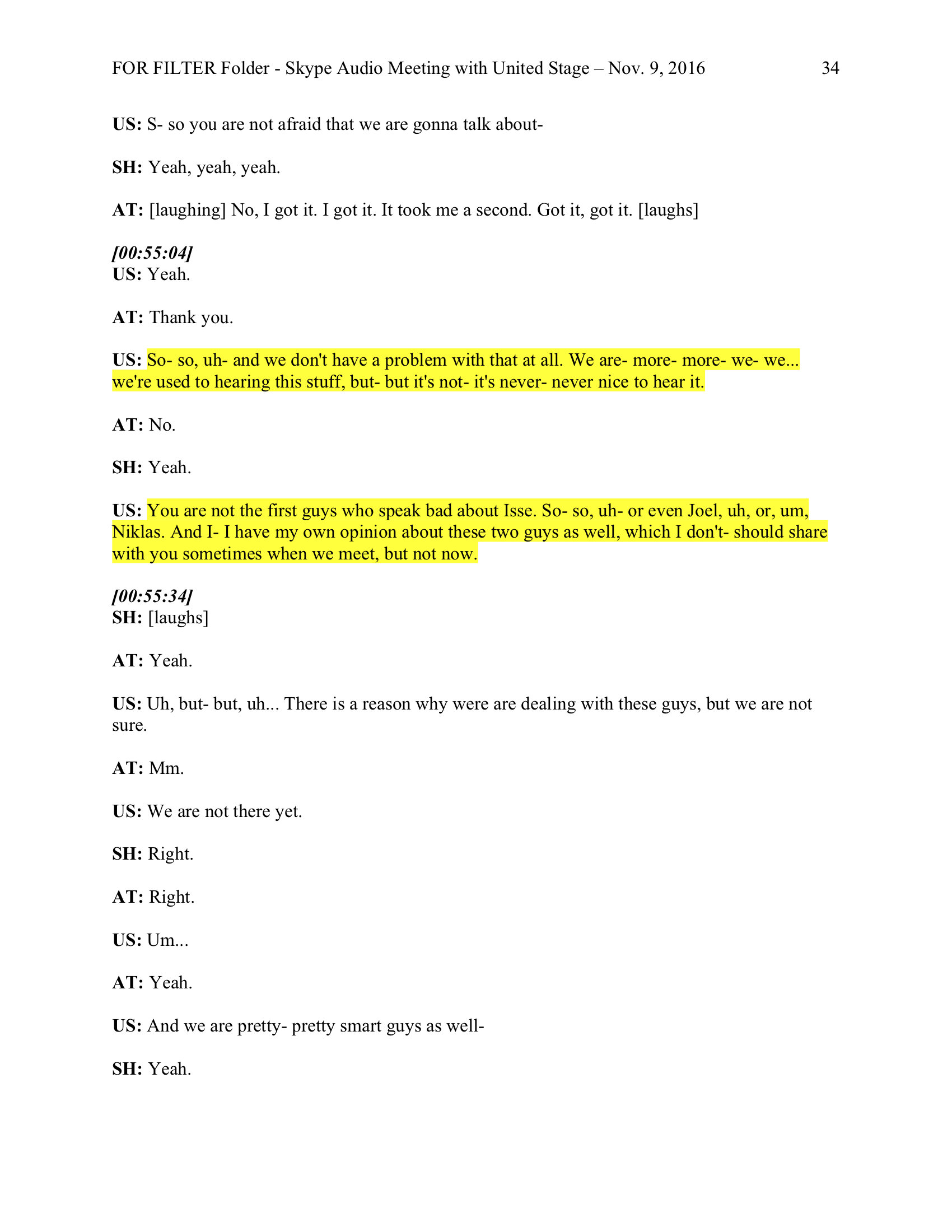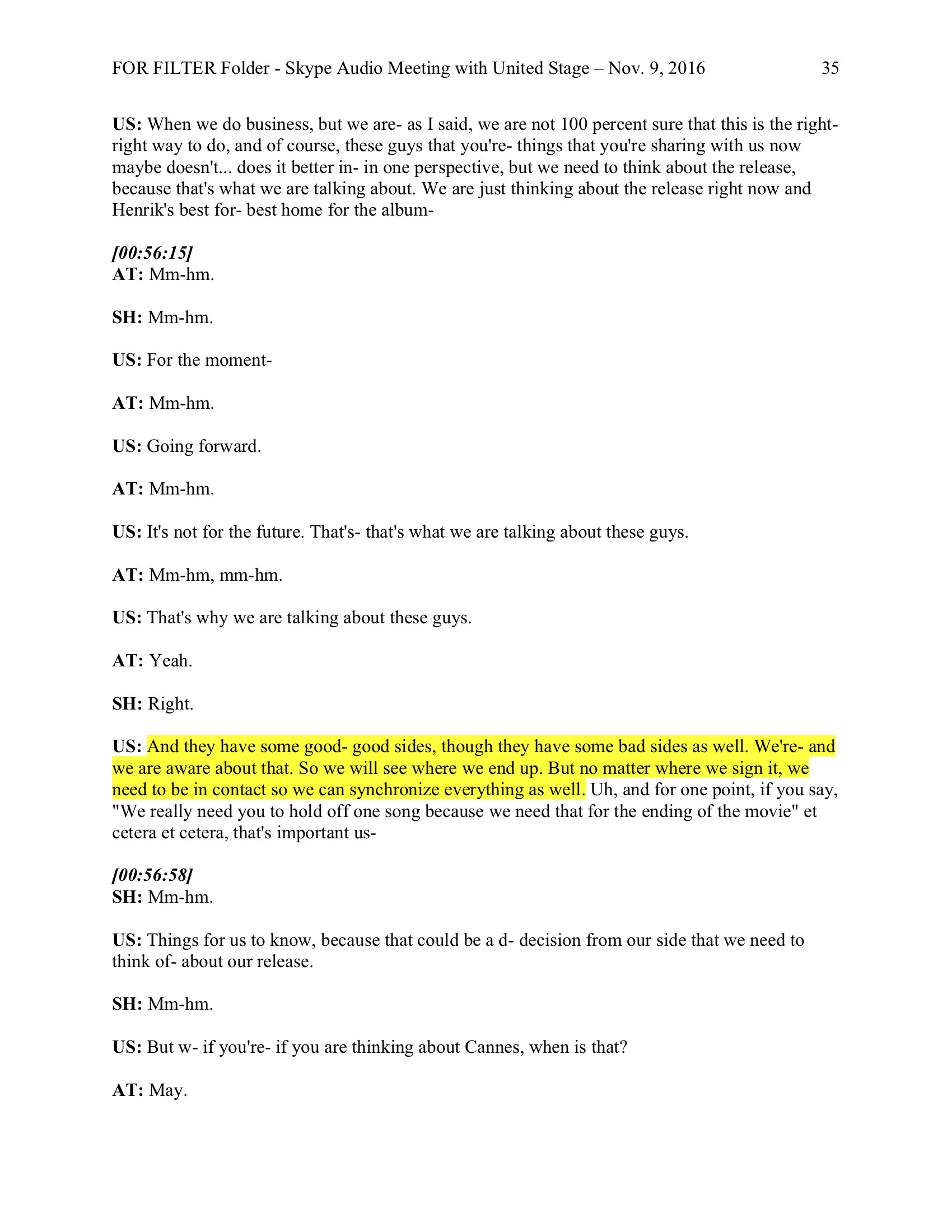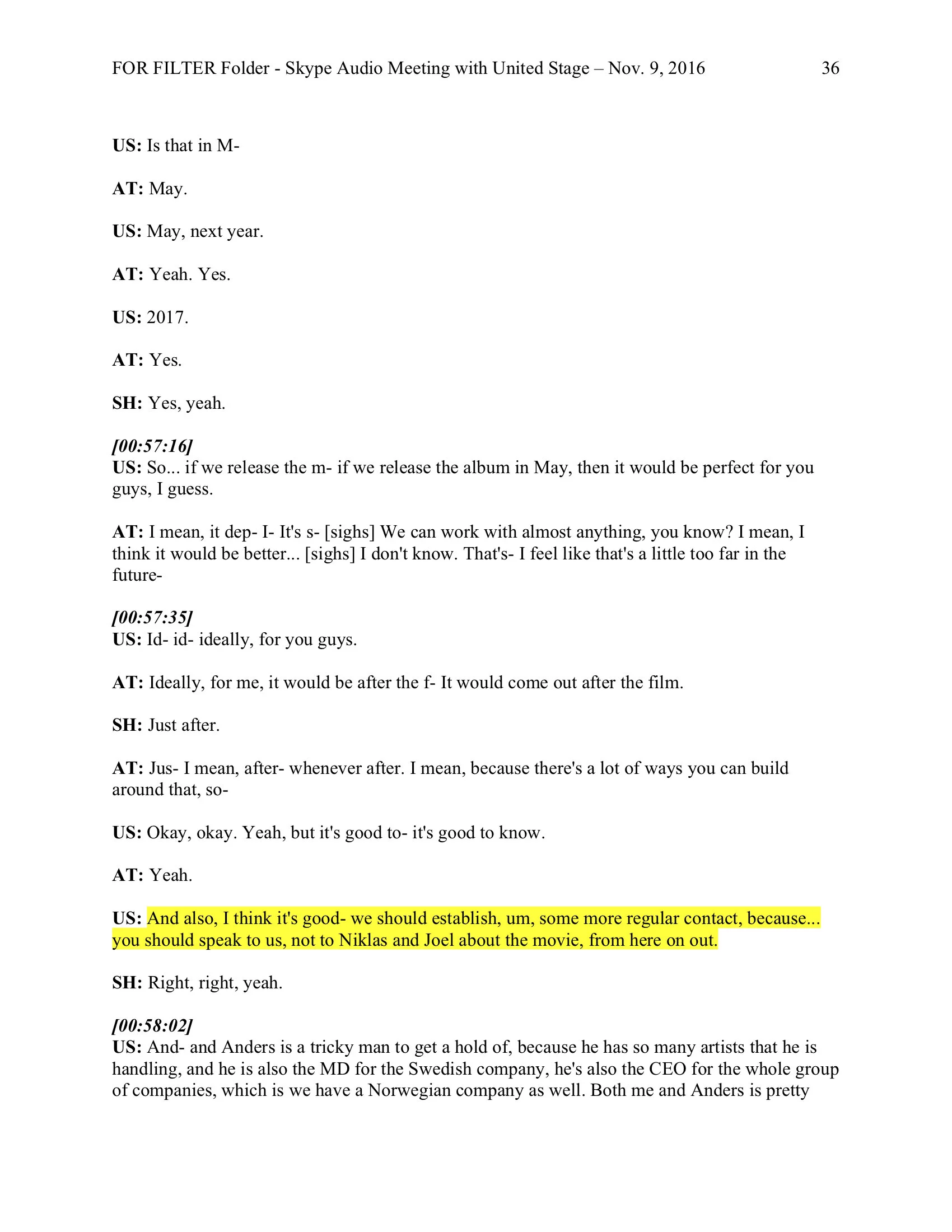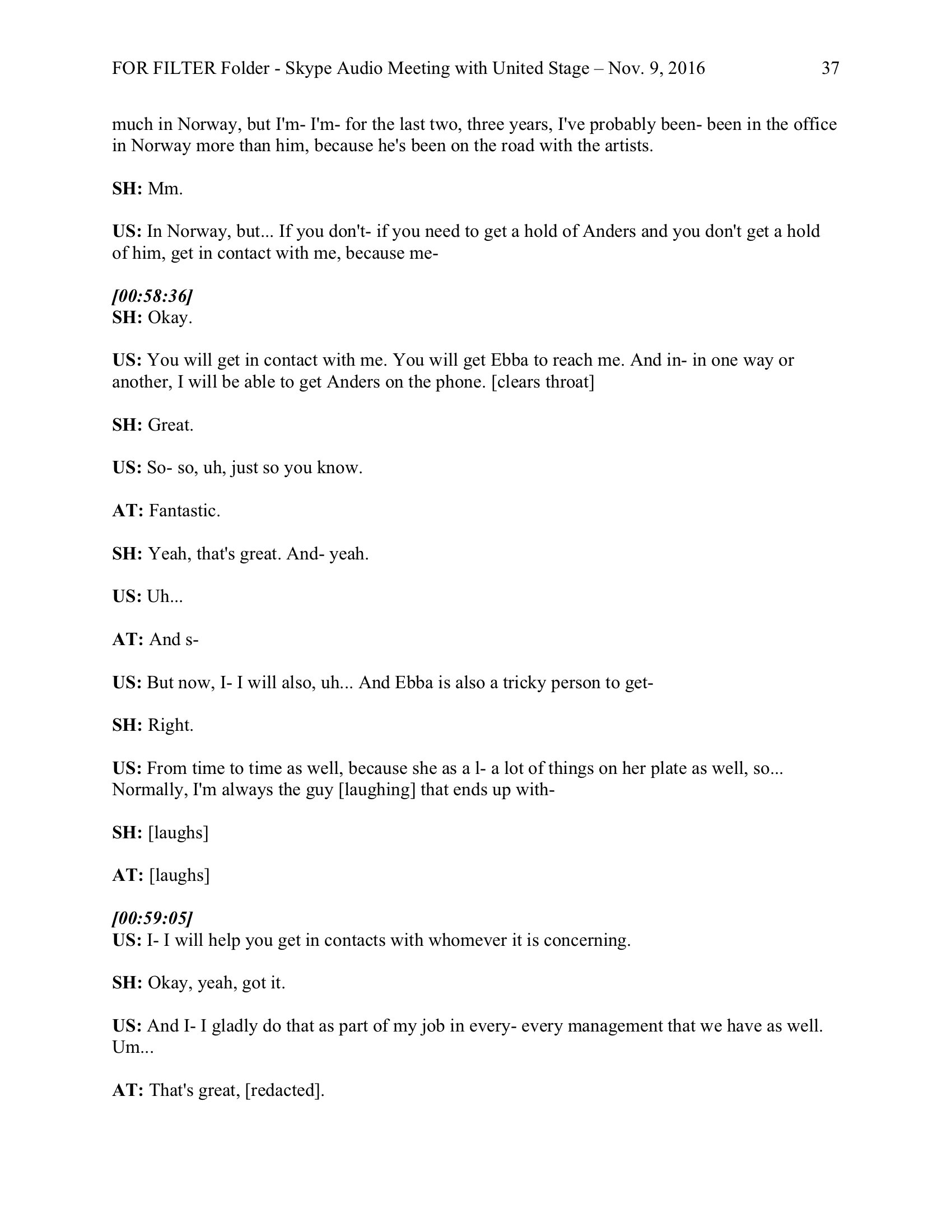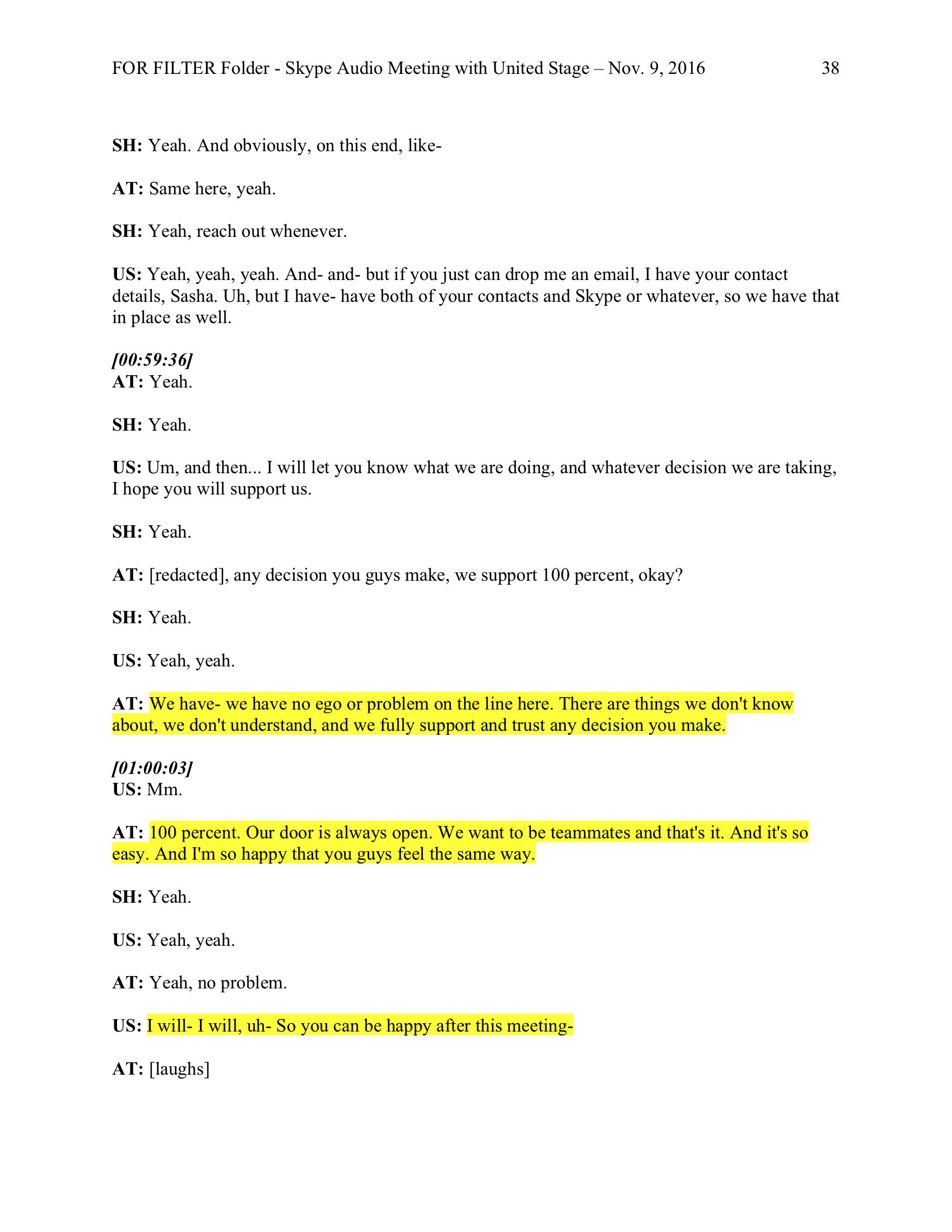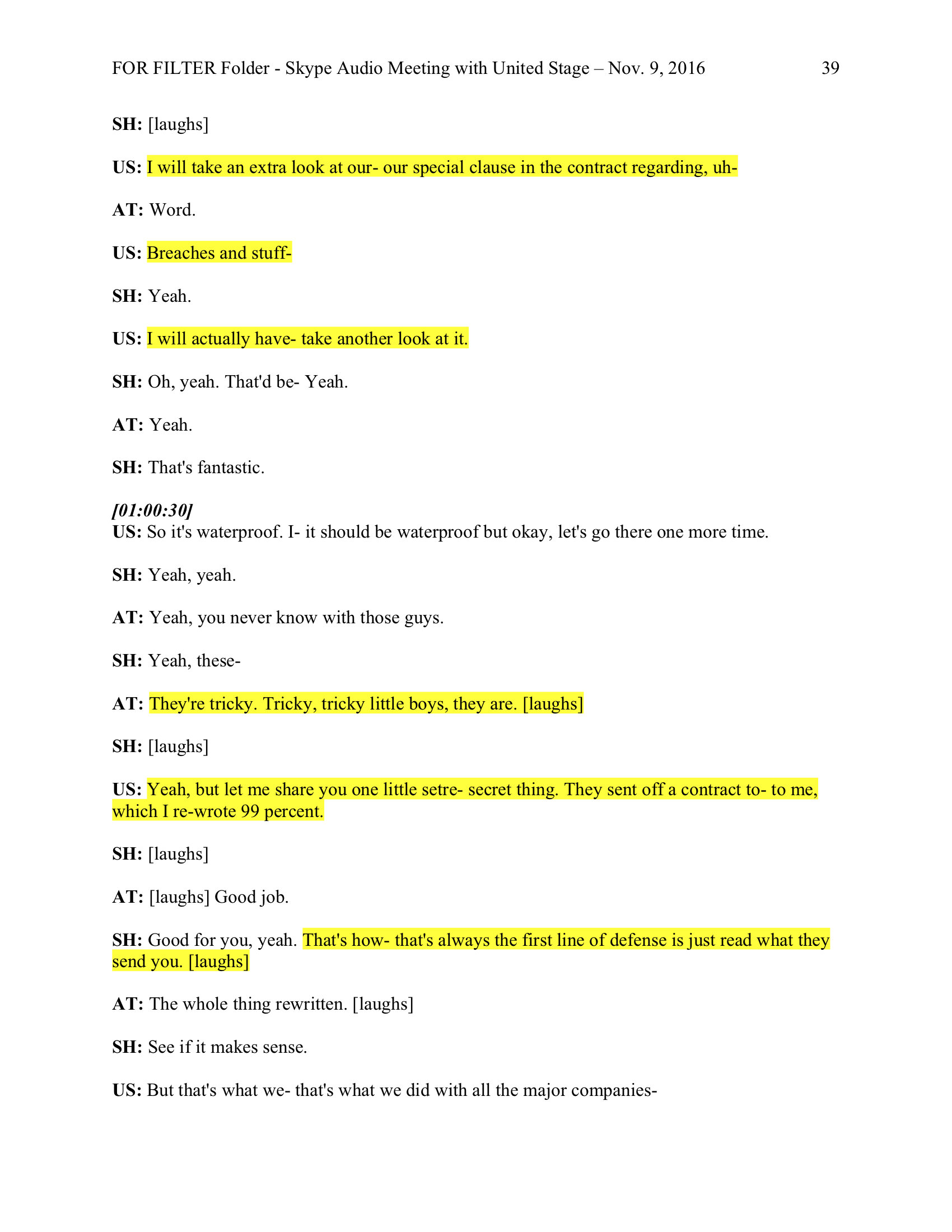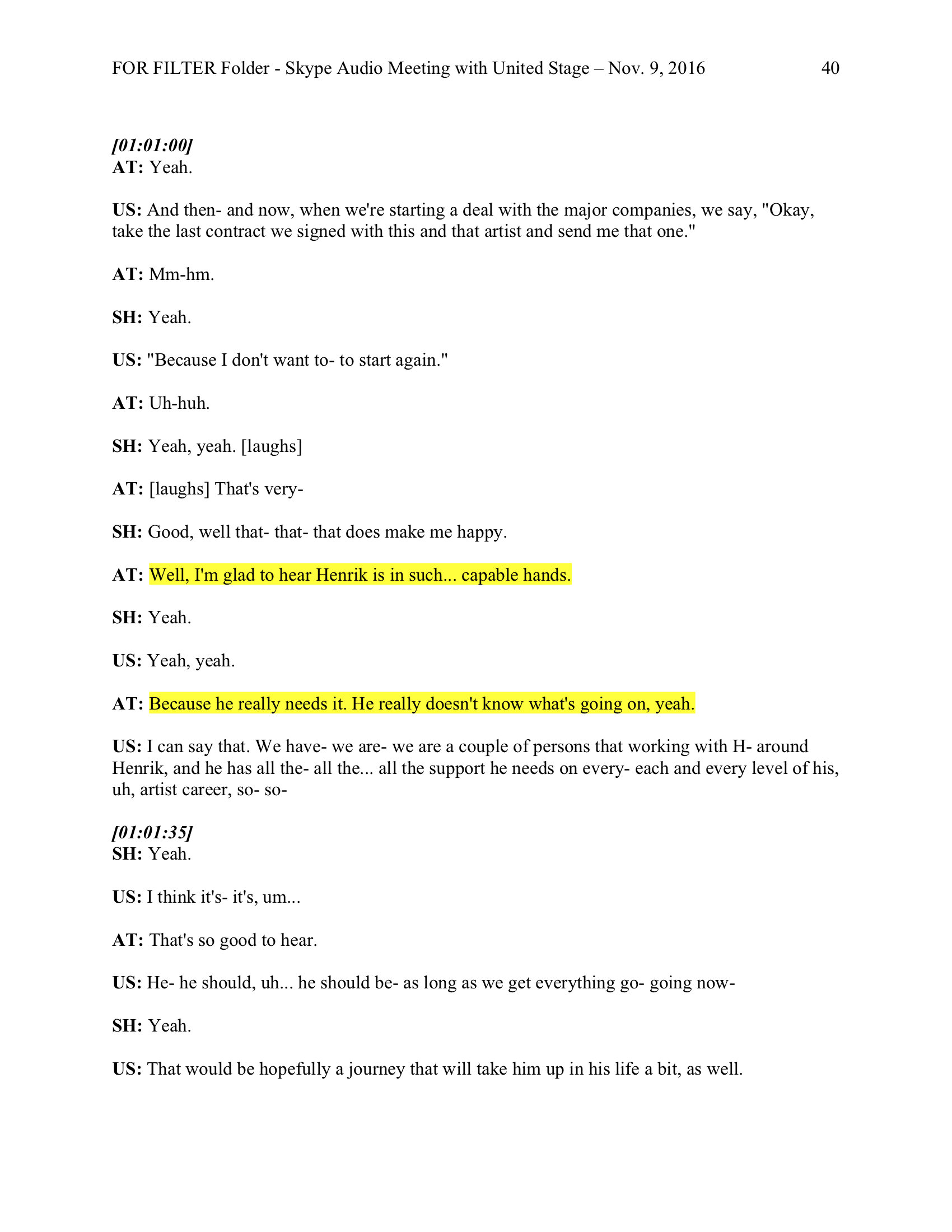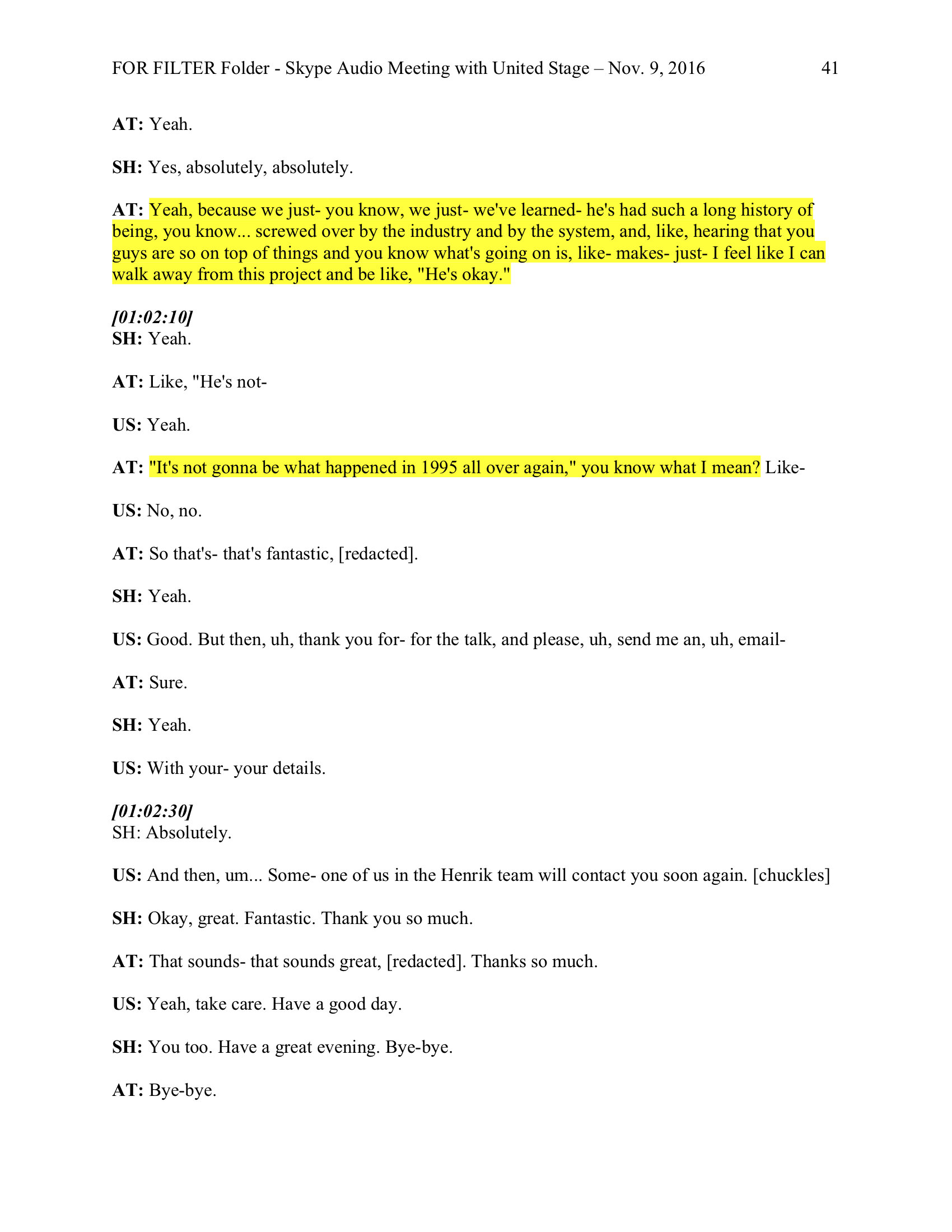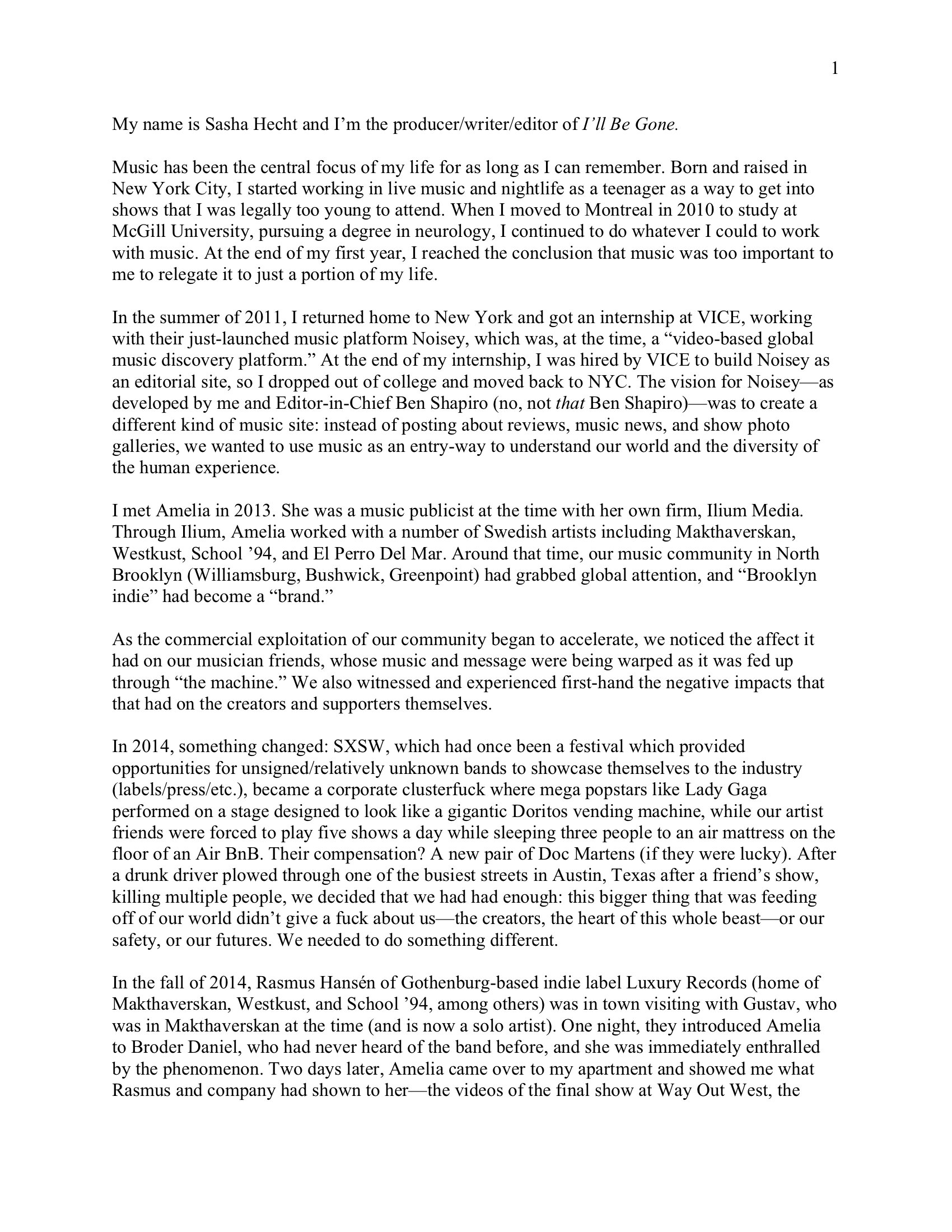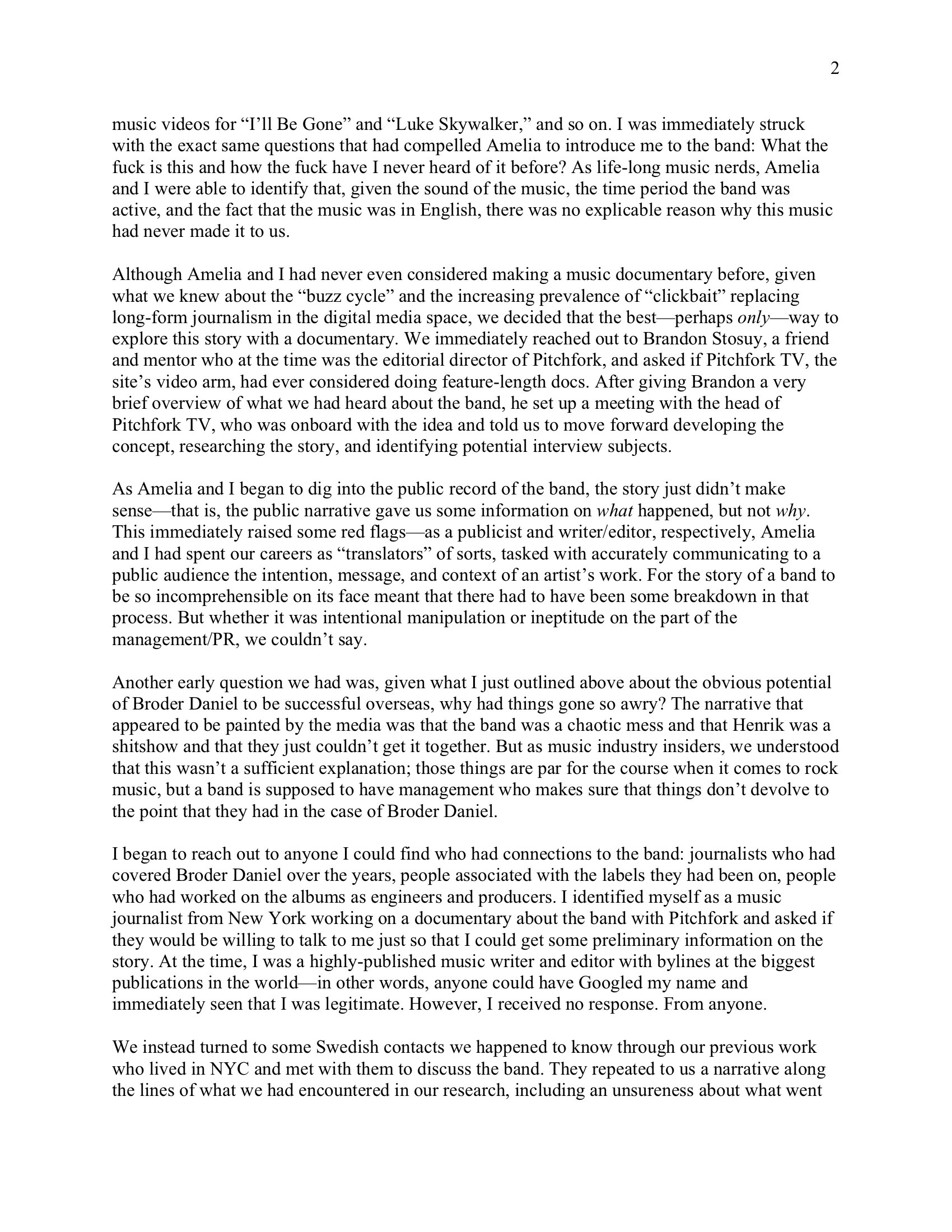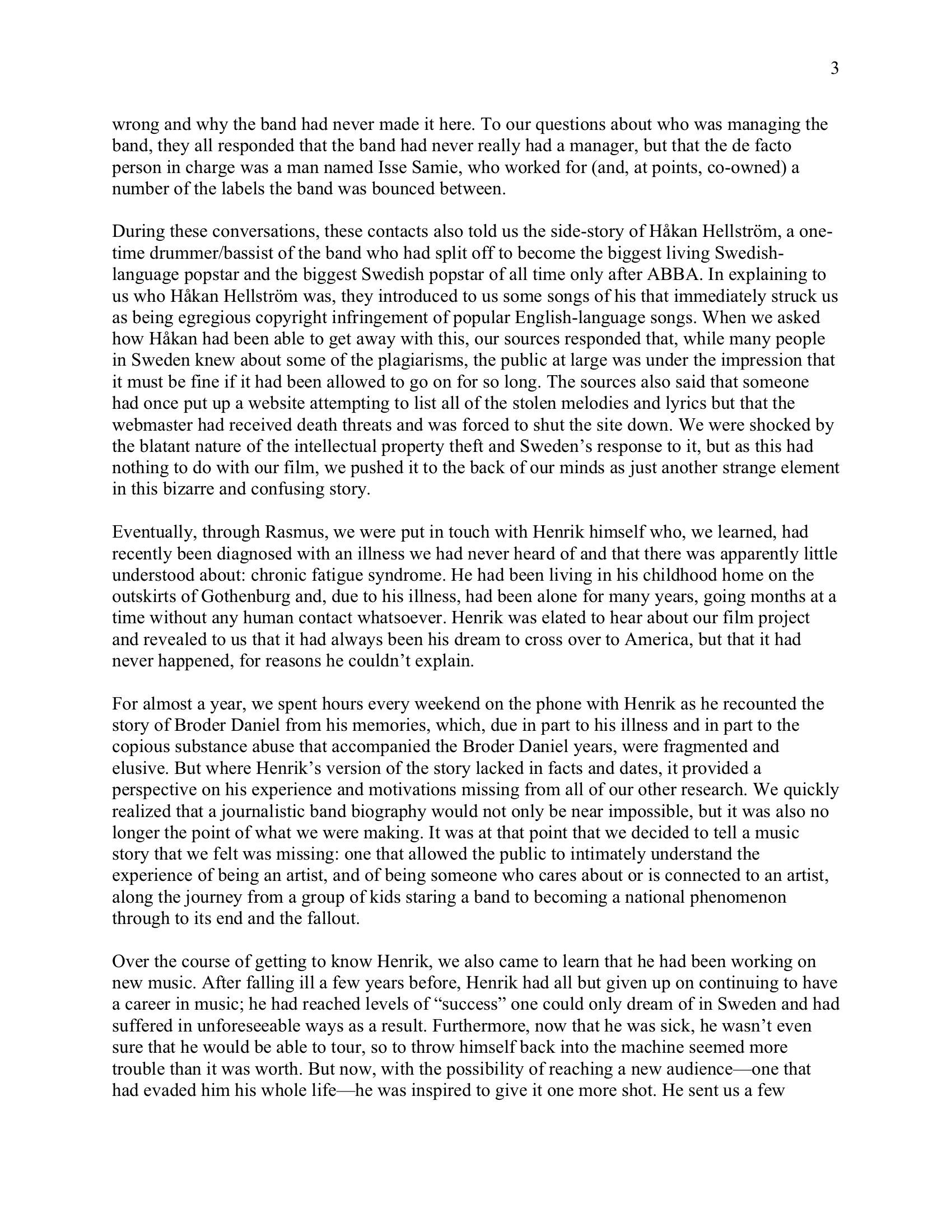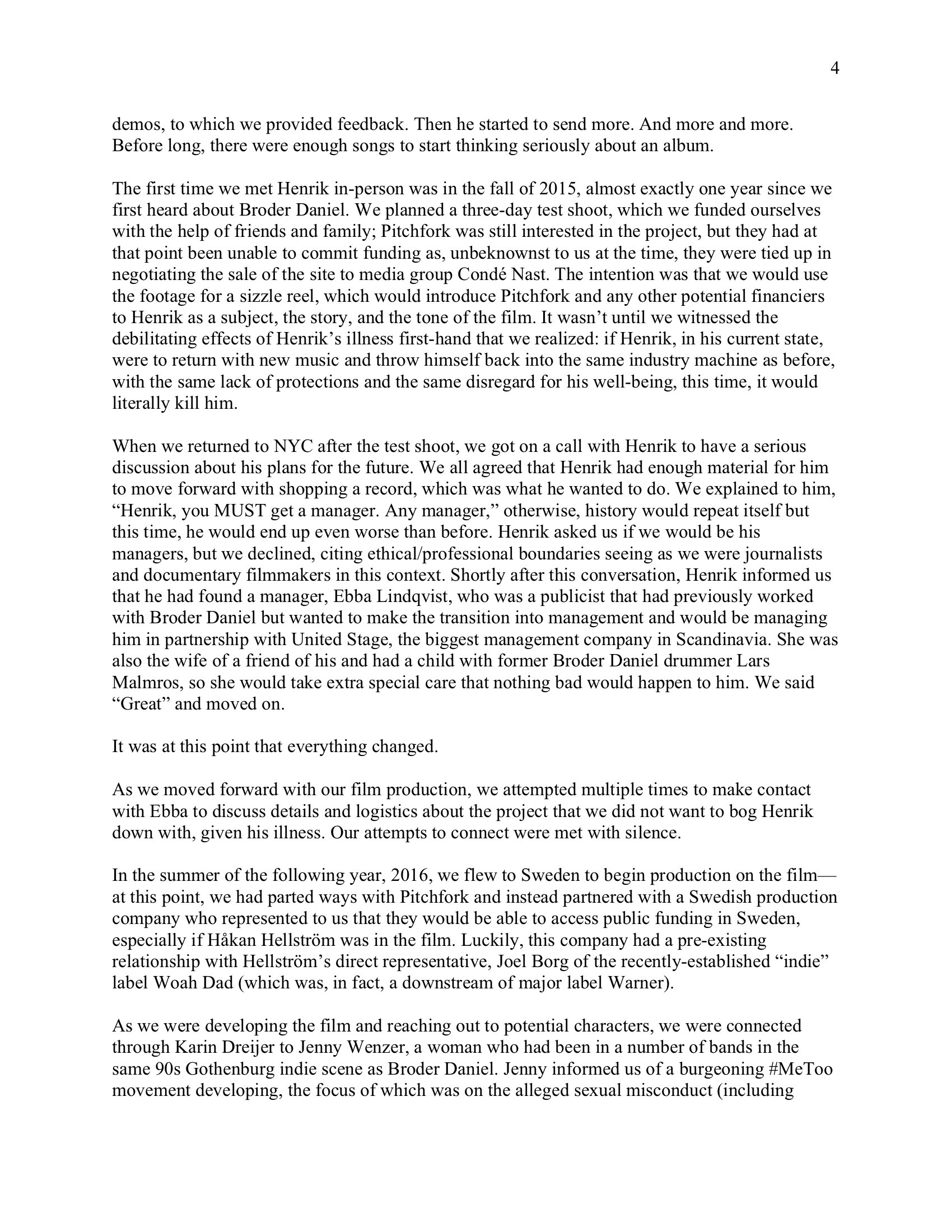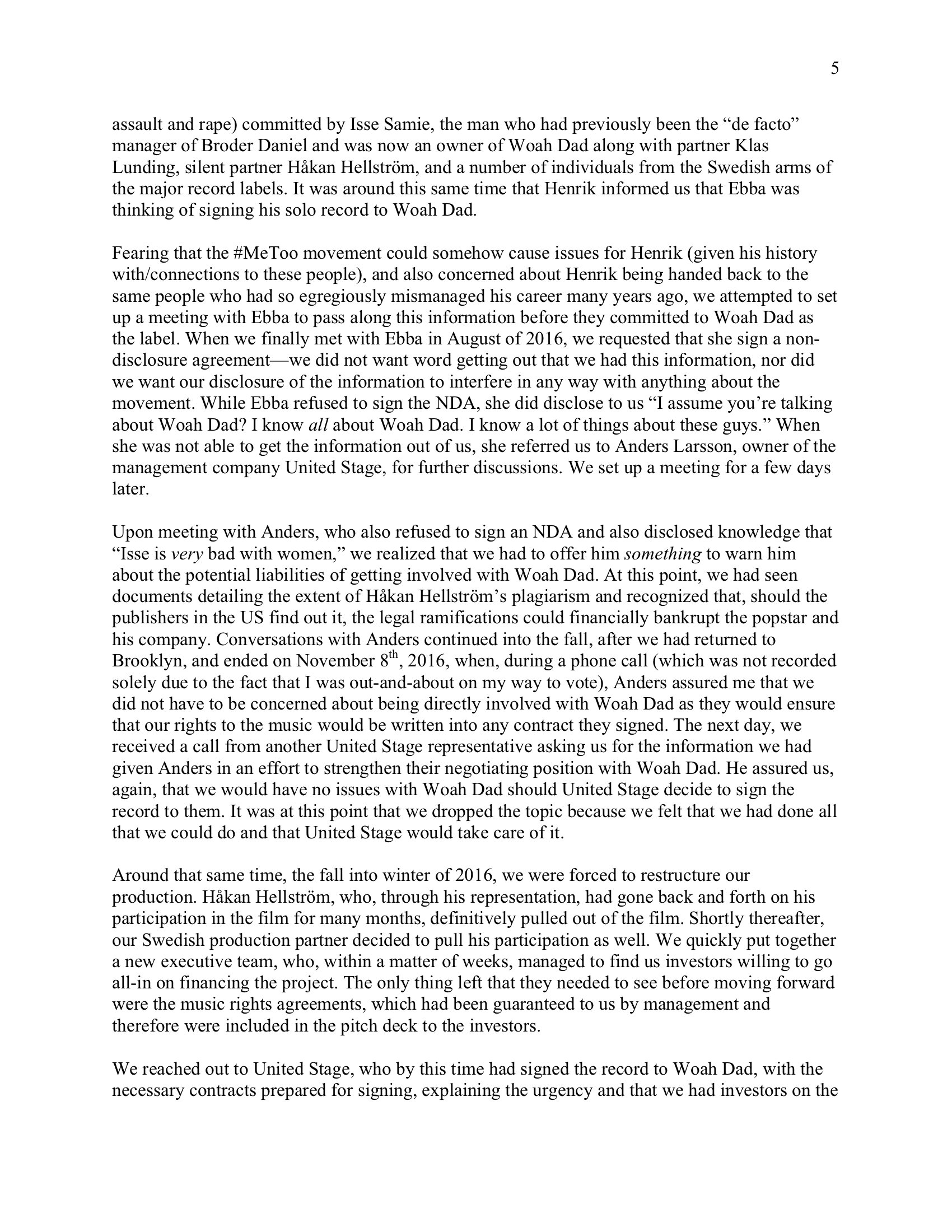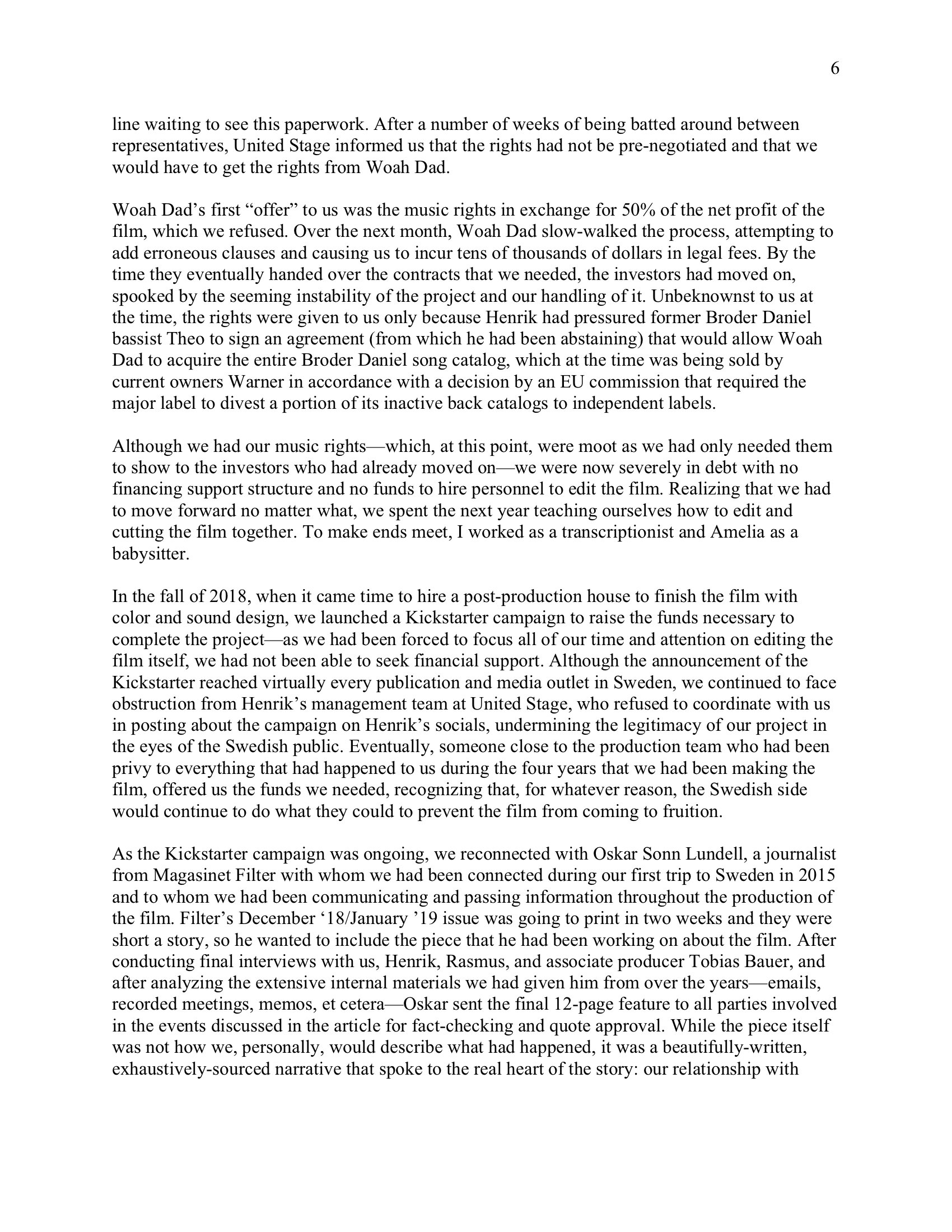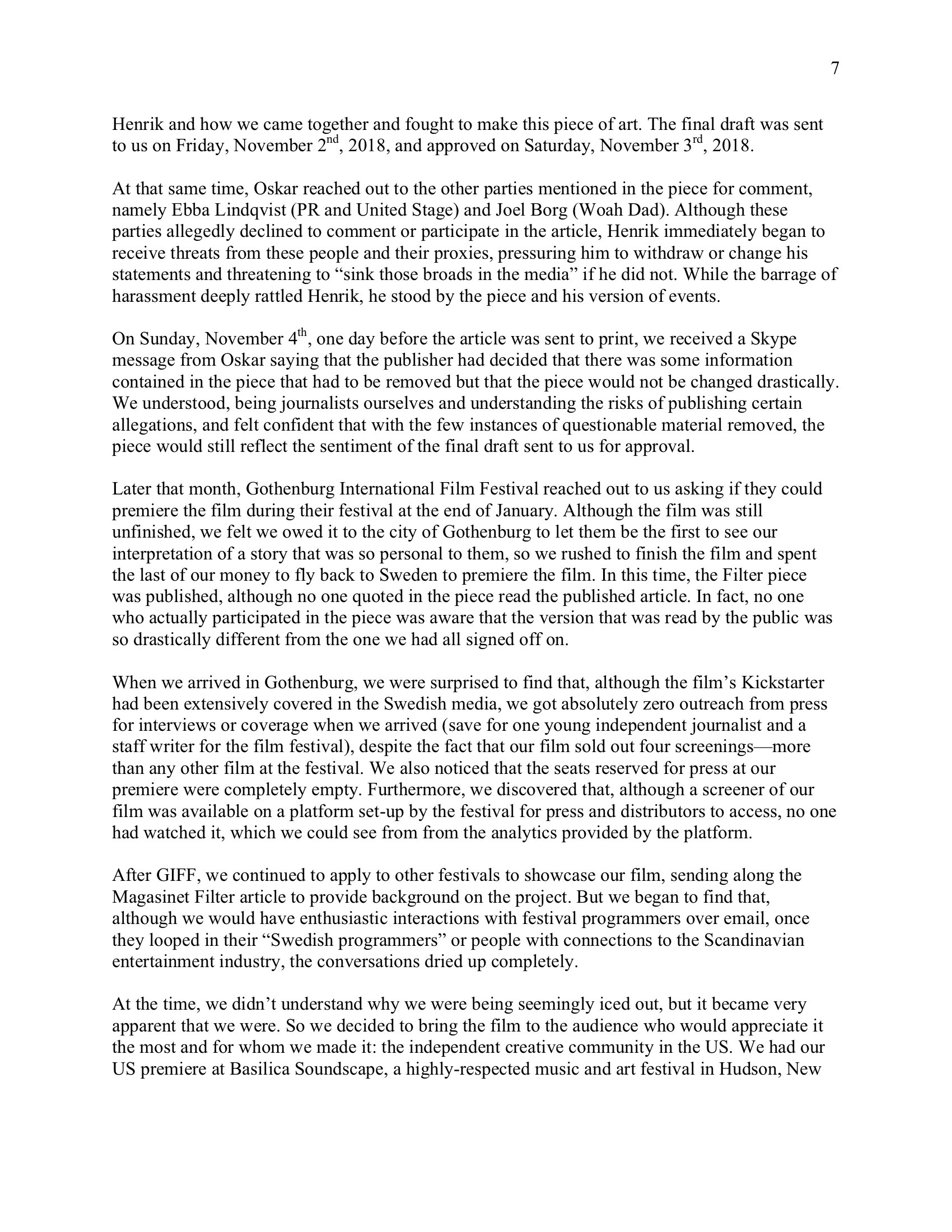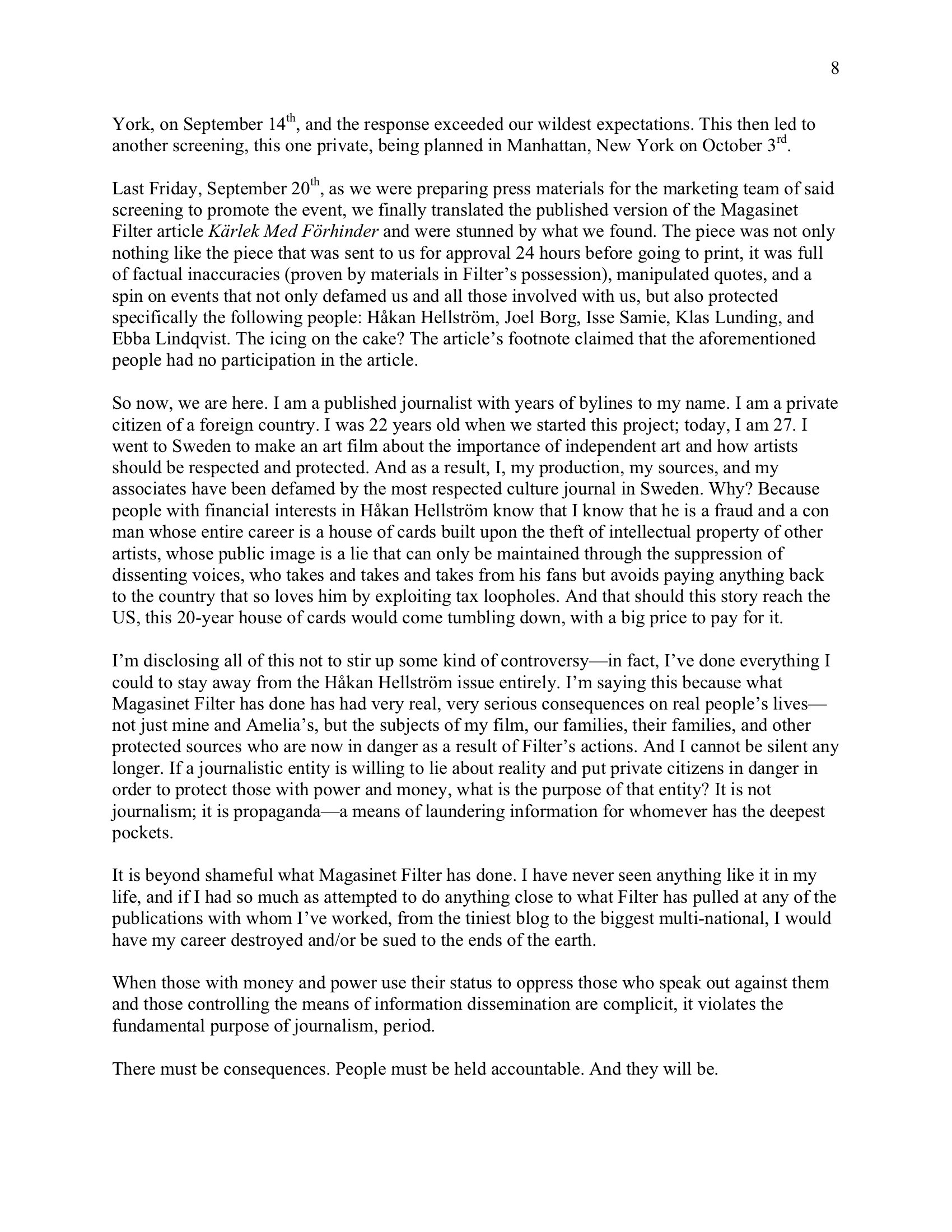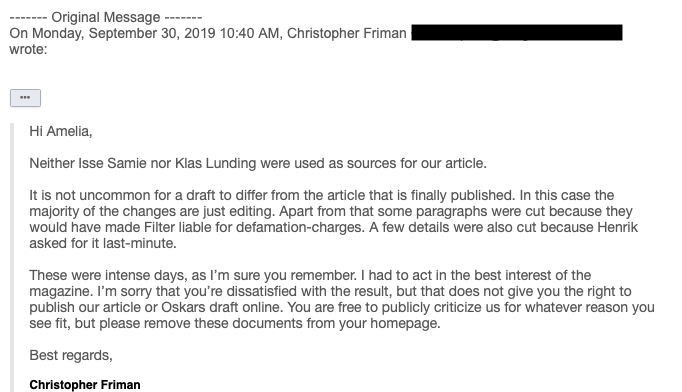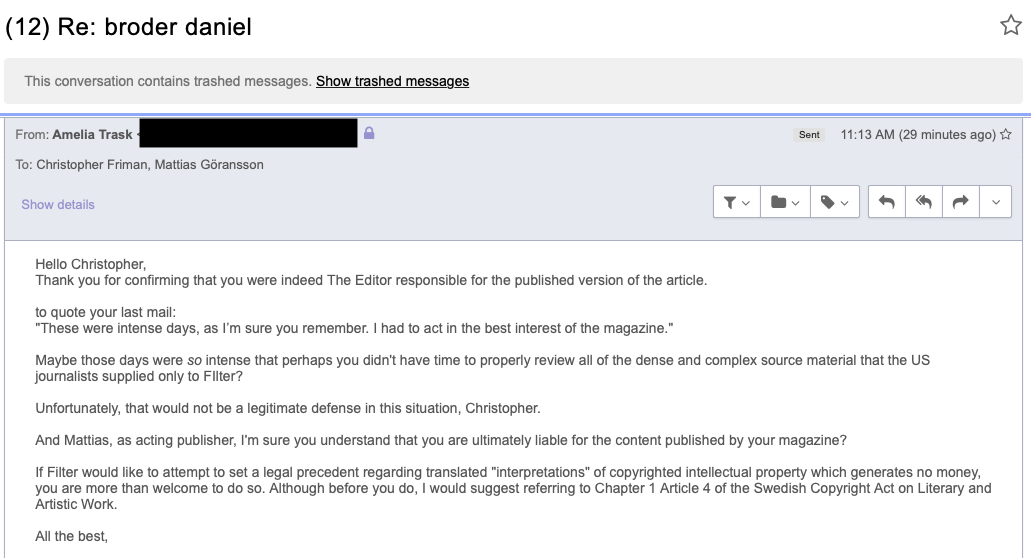Conflict Timeline
Friday sept 20, 2019
American filmmakers Amelia Trask and Sasha Hecht realize a different version of Kärlek Med Förhinder was printed on Monday Nov 5th, 2018 than was sent to them for fact-check on Friday, Nov 2nd, 2018.
Trask and Hecht contact Rasmus Hansen, a secondary subject of the article and Gothenburg-based label owner. Hansen informs Trask and Hecht that he was also not aware of the two articles existence.
Saturday sept 21, 2019
Trask and Hecht contact Henrik Berggren, the other primary subject of the article, and he informs them that he was also not aware of the two articles existence.
Sunday sept 22, 2019
Trask and Hecht post side-by-side comparisons of the two articles on their film’s Instagram account.
Trask and Hecht are contacted by Magasinet Filter staff writer and author of Kärlek Med Förhinder, Oskar Sonn Lindell.
Trask and Hecht prepare a public statement.
Monday sept 23, 2019
Trask and Hecht post a public statement to Magasinet Filter with side-by-side infographic comparing the content of both versions of the story:
On Friday, September 20th, 2019, it came to our attention that the article Kärlek Med Förhinder (published by Magasinet Filter digitally November 19th, 2018 and physically in the December ’18/January ’19 print issue in Sweden) is not the same article that was sent to us (Amelia Trask and Sasha Hecht) and domestically-renowned Swedish musician Henrik Berggren for fact-checking on Friday, November 2nd, 2018. Not only is the published version not structurally reflective of writer Oskar Sonn Lindell’s submitted work, it is factually inaccurate and defamatory in its historical inaccuracies.
The article’s author, Oskar Sonn Lindell, was granted access by us to follow our New York-based production through the making of I’ll Be Gone from our first test shoot in Sweden in fall 2015 until fall 2018, at which point Oskar Sonn Lindell wrote the article. On Friday, November 2nd, 2018, three days before the article went to go to print, a final draft was sent to everyone quoted in the article for fact-checking.
On Sunday, November 4th 2018, the day before the article went to print, Oskar Sonn Lindell informed us that “our publisher deemed some parts of the article unfit to publish, so we had to cut some of them and re-phrase some things.”
Considering Filter’s prestigious journalistic reputation in Sweden, we and the other main subjects had no reason to suspect that the article would be fundamentally altered, and so we did not read the final piece until September 20th, 2019.
Below you will find the printed version side by side with the original final version (translated to English and original Swedish) of Kärlek Med Förhinder as written and submitted by Oskar Sonn Lindell, approved by his editor, and factually substantiated by Filter’s unredacted access to four years worth of our production’s internal materials including emails, memos, contracts, interviews, and recordings of in-person and phone meetings with Ebba Lindqvist (PR), Joel Borg (Woah Dad Live), Pontus Sillrén (United Stage), Klas Lunding (Telegram/Woah Dad), and Anders Larsson (United Stage), among others.
Why would a nationally-acclaimed, award-winning publication like Magasinet Filter change an article from being demonstrably true to demonstrably false the day before it goes to print? Why would you publish statements that are easily disproven by evidence in your possession, thereby opening yourselves up to legal action?
